




Dedicated coverage of gaming in the Americas Mar/Apr 2024 EXCLUSIVE BETMGM INTERVIEW: We speak with VP of Gaming Angus Nisbet THE LANDMARK HOTEL: We look at a historic figure that is no more NEW YORK IGAMING: Senator Addabbo joins us to discuss the Big Apple TRIBAL OUTLOOK
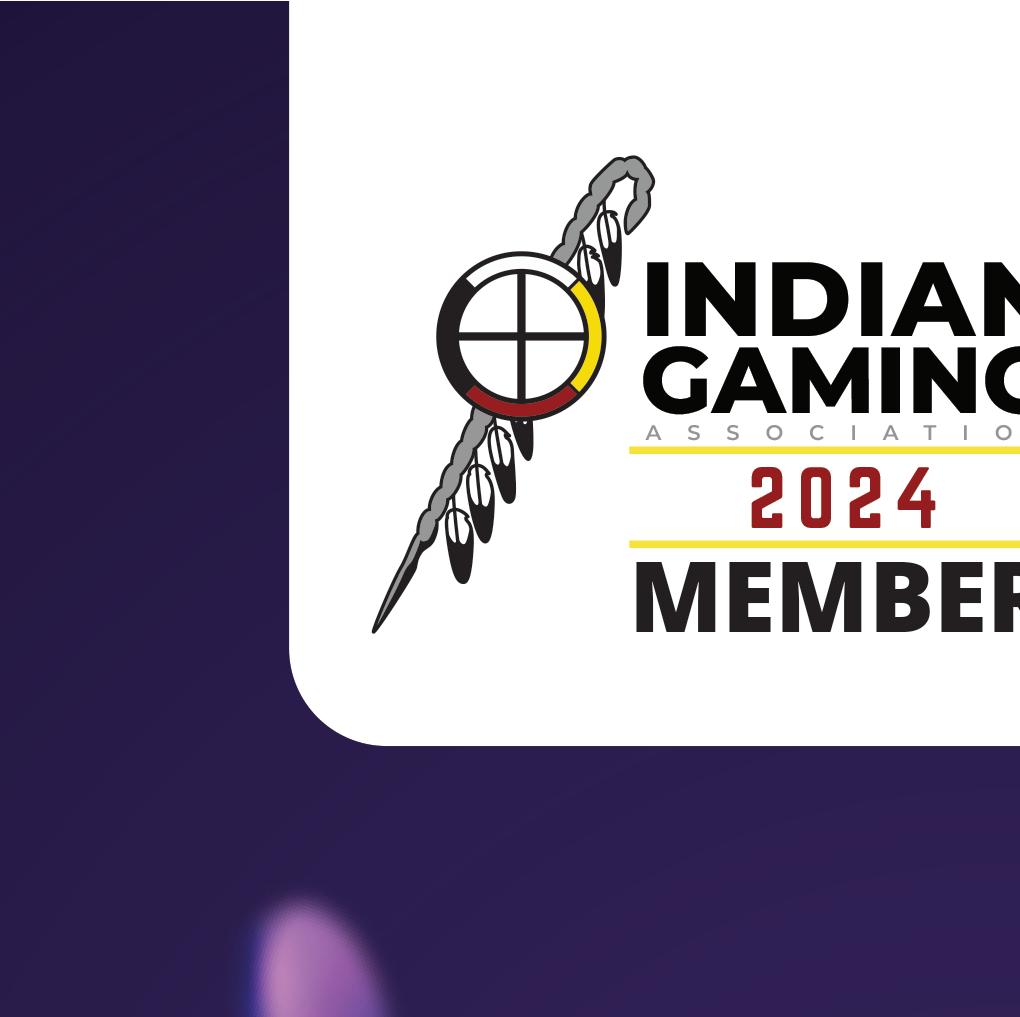


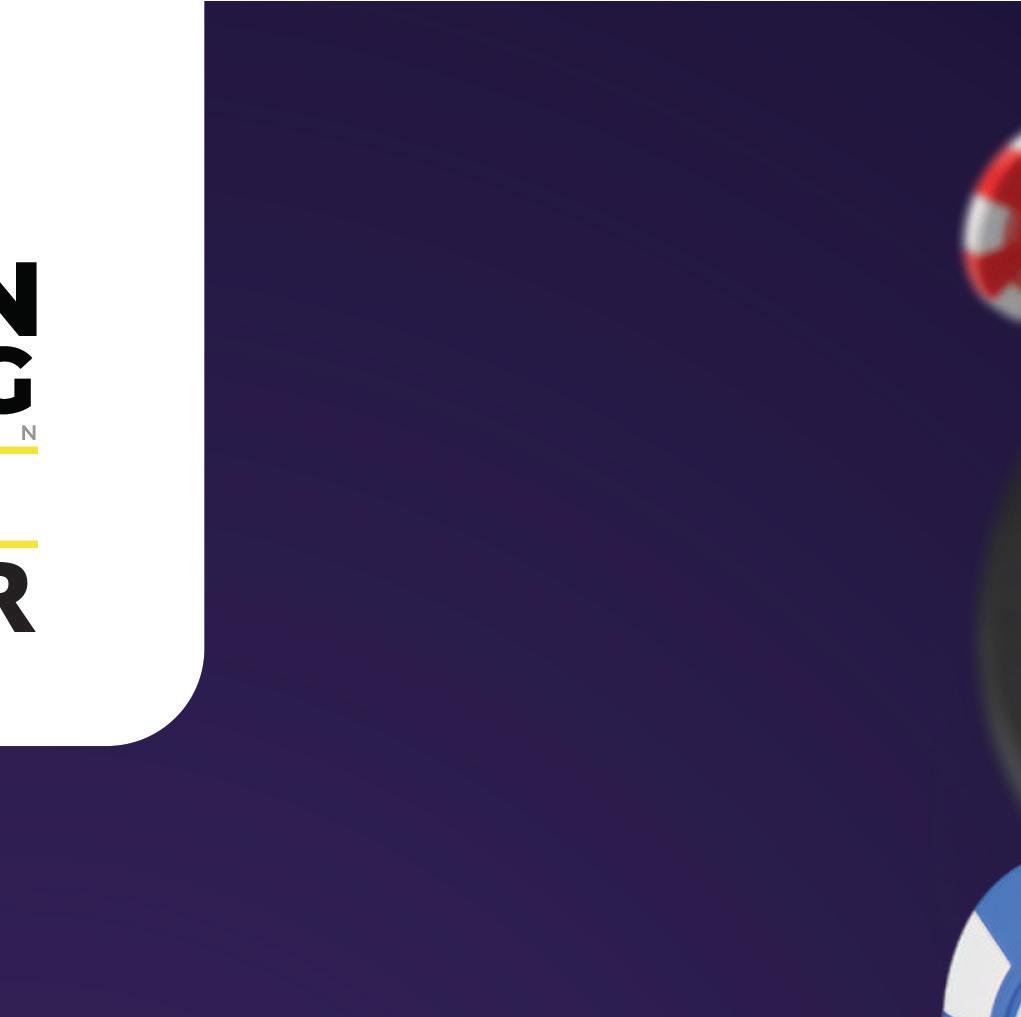
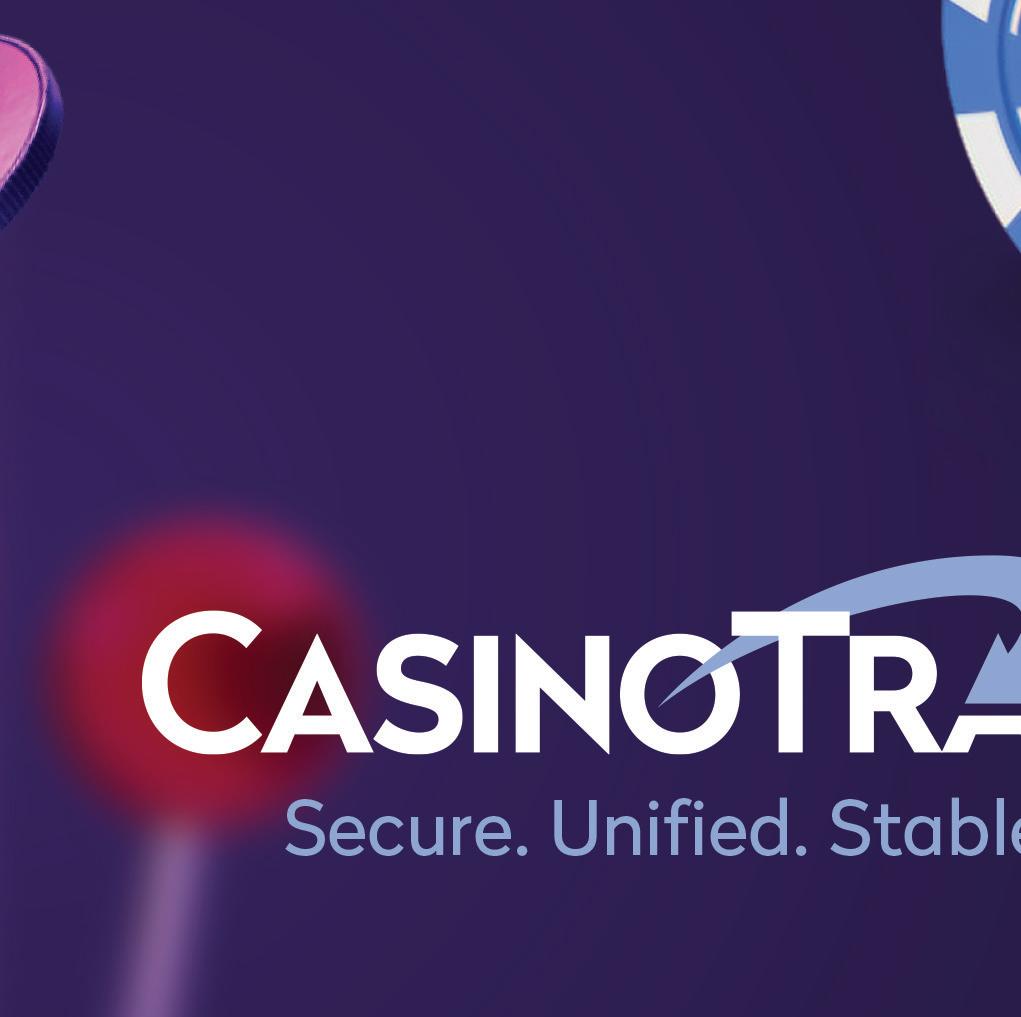
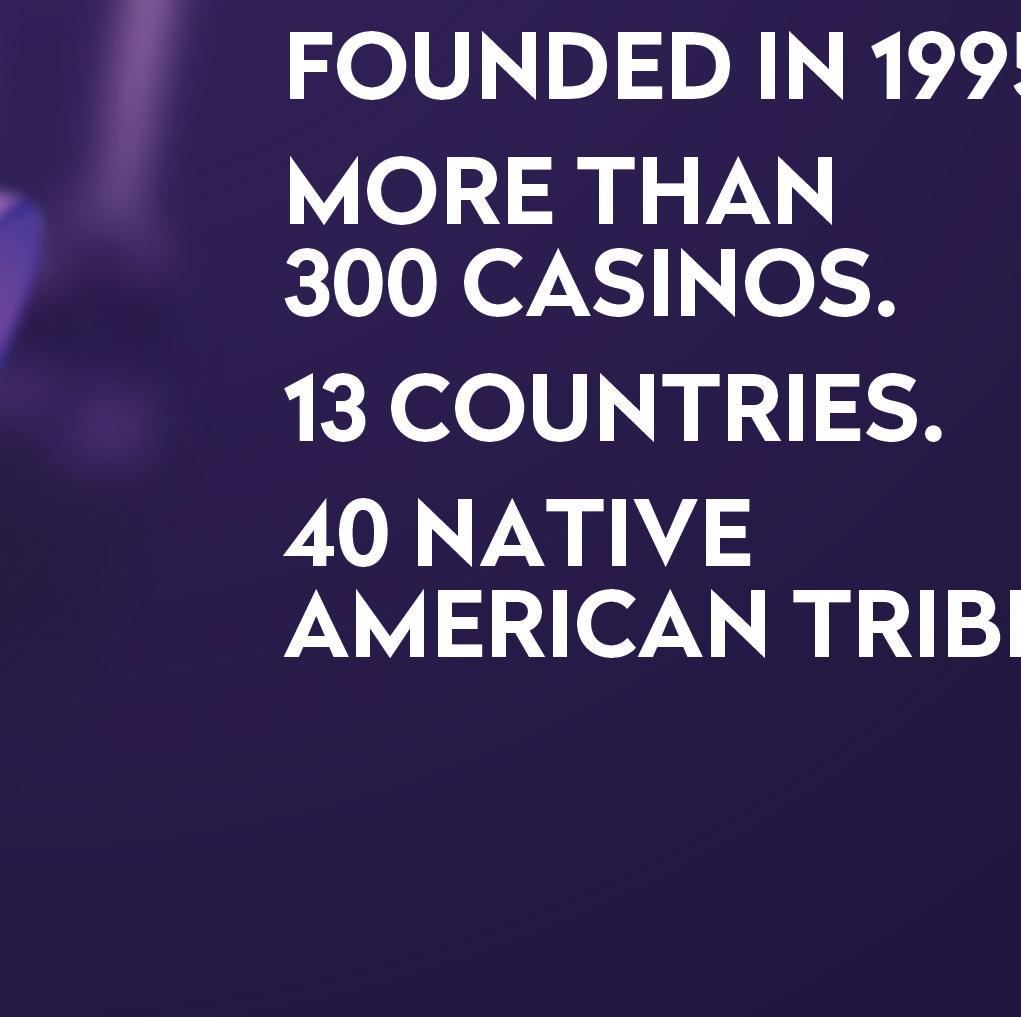












COO, EDITOR IN CHIEF
Julian Perry
CONTRIBUTING EDITOR
Tim Poole
STAFF WRITERS
Brian Joseph, Beth Turner, Ciaran McLoughlin, Laura Mack
LEAD DESIGNER
Olesya Adamska
DESIGNERS
Gabriela Baleva, Abbie Monk, Claudia Astorino, Callum Alexander Flett
ILLUSTRATOR
Maria Yanchovichina
MARKETING & EVENTS MANAGER
Mariya Savova
FINANCE AND ADMINISTRATION ASSISTANT
Dhruvika Patel
PRODUCTION CONTROLLER
Phoebe Petford
IT MANAGER
Tom Powling
COMMERCIAL DIRECTOR
Deepak Malkani Deepak@playerspublishing.com
Tel: +44 (0)207 729 6279
SENIOR U.S. BUSINESS DEVELOPMENT MANAGER
Aaron Harvey
Aaron.Harvey@playerspublishing.com
Tel: +1 702 425 7818
ADVERTISING SALES EXECUTIVE
Ariel Greenberg
Ariel.Greenberg@playerspublishing.com
Tel: +1 702 833 9581
SENIOR ACCOUNT MANAGER
Michael Juqula
Michael.Juqula@gamblinginsider.com
Tel: +44 (0)203 487 0498
ACCOUNT MANAGERS
William Aderele
William.Aderele@gamblinginsider.com
Tel: +44 (0)207 739 2062
Irina Litvinova
Irina.Litvinova@gamblinginsider.com
Tel: +44 (0)207 613 5863
Serena Kwong
Serena.Kwong@gamblinginsider.com
Tel: +44 (0)203 435 5628
BUSINESS DEVELOPMENT MANAGER
Michele Brooks
Michele.Brooks@globalgamingawards.com
Tel: +44 (0) 207 739 5768
CREDIT MANAGER
Rachel Voit
WITH THANKS TO:
With thanks to: Noah Bernstein, Jacob Fortinsky, Joseph P. Addabbo, Oliver Lovat, the Choctaw Nation, Paul Pellizzari, Justin Arnett, Guy Greene, Brooke Fiumara, Steven DeMar, Angus Nisbet, Ron Bailey, Kevin Kramer and Kelcey Allison.


Gaming America magazine ISSN 2632-766X
EDITOR’S LETTER
As the Tribal gaming sector congregates once more in the Golden State, is it too cliché of me to suggest we are heading for a golden era of Tribal gaming? With the industry set to meet at the Indian Gaming Association tradeshow in Anaheim – a show we’ve produced an in-depth preview of in this issue – it is perhaps even fairer to suggest Tribal’s golden era is already here.
Indian gaming revenue totaled $40.9bn for 2022 (the most recent year for which there are figures available) and that is only expected to grow. For 2023, meanwhile, the American Gaming Association recorded figures of $66.5bn for commercial gaming revenue, projecting $110bn in total for the year (including projected Tribal tallies). So we can clearly see that Tribal gaming accounts for a huge piece of the US gaming pie. But, crucially, that is without the sector necessarily having fully yet embraced sports betting. And certainly without having embraced online gaming.
Just imagine how much bigger that total number could be with the addition of both? Are we talking $60bn a year… are we talking $80bn?
It is a key time for Tribes as they welcome greater technological and digital aptitude, demonstrated most recently by the launch of Hard Rock Games and Anaxi’s partnership with the Chickasaw Nation – just two examples. And the same can be said of the Seminole Tribe/Hard Rock in Florida, where – barring legal opposition that has been described as simply “burning money” by one of our interviewees in a previous edition of Gaming America magazine – sports betting is a go for the Tribal operator.
As such, our cover theme for March/April is focusing on the ‘Tribal Outlook.’ We’re doing things a little differently, with not one main feature but several – starting with a look at the touching relationship between the Choctaw Nation and Ireland. Following that, we have an in-depth interview with Hard Rock VP of Global Social Responsibility Paul Pellizzari on a topic that cannot be underplayed. Indeed, we speak with the Hard Rock exec about human trafficking, the threats it poses – especially at big casino resorts – and how to potentially combat it.
Concluding our main section is a Tribal special of our regular Viewpoints feature, where the Mohegan Tribe, the Potawatomi Casino Hotel, OPTX and Oddsworks present their thoughts on the hot Tribal topics: mobile, sports betting, technology – and how all three might be shifting the Tribal-commercial balance within US gaming.
Plenty of food for thought, then.
JULIAN PERRY, COO, Editor-in-Chief

Produced and published by Players Publishing Ltd All material is strictly copyrighted and all rights reserved. Reproduction without permission is forbidden. Every care is taken in compiling the contents of Gaming America but we assume no responsibility for the e ects arising therefrom. The views expressed are not necessarily those of the publisher. CHECK OUT GAMINGAMERICA.COM FOR THE BEST IN BREAKING NEWS




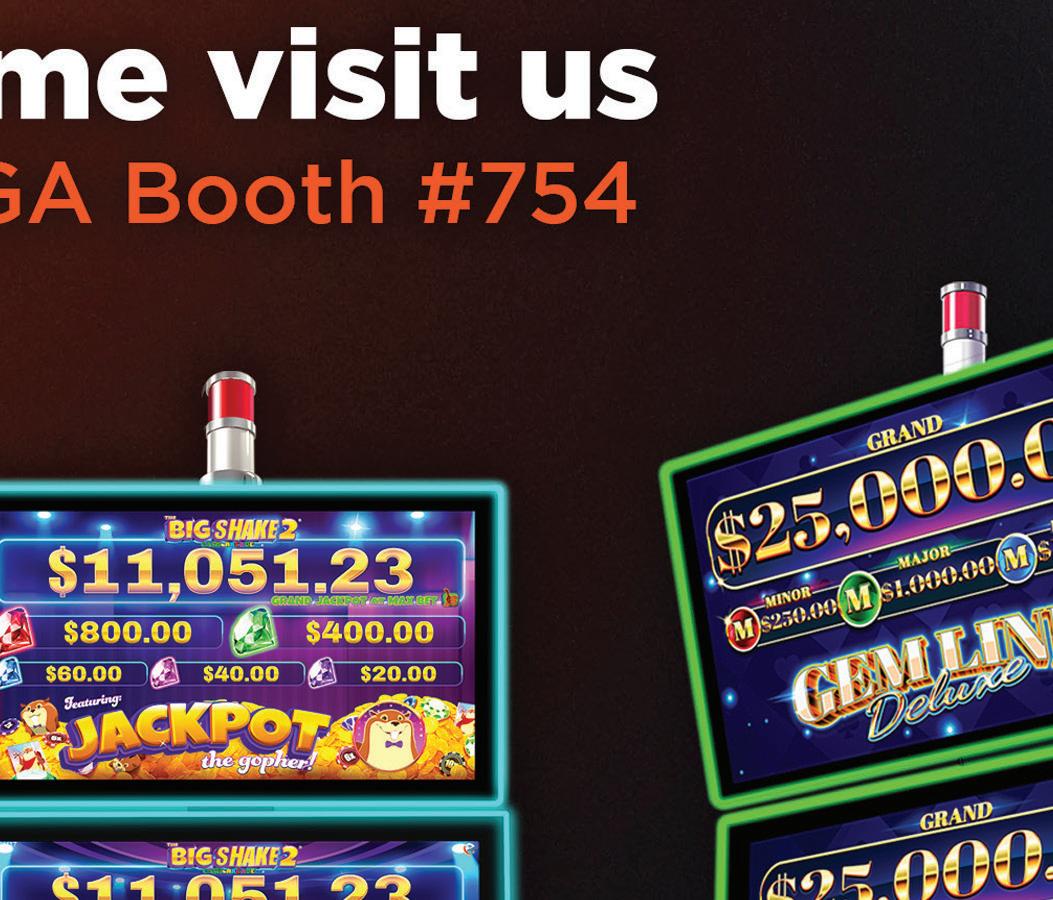

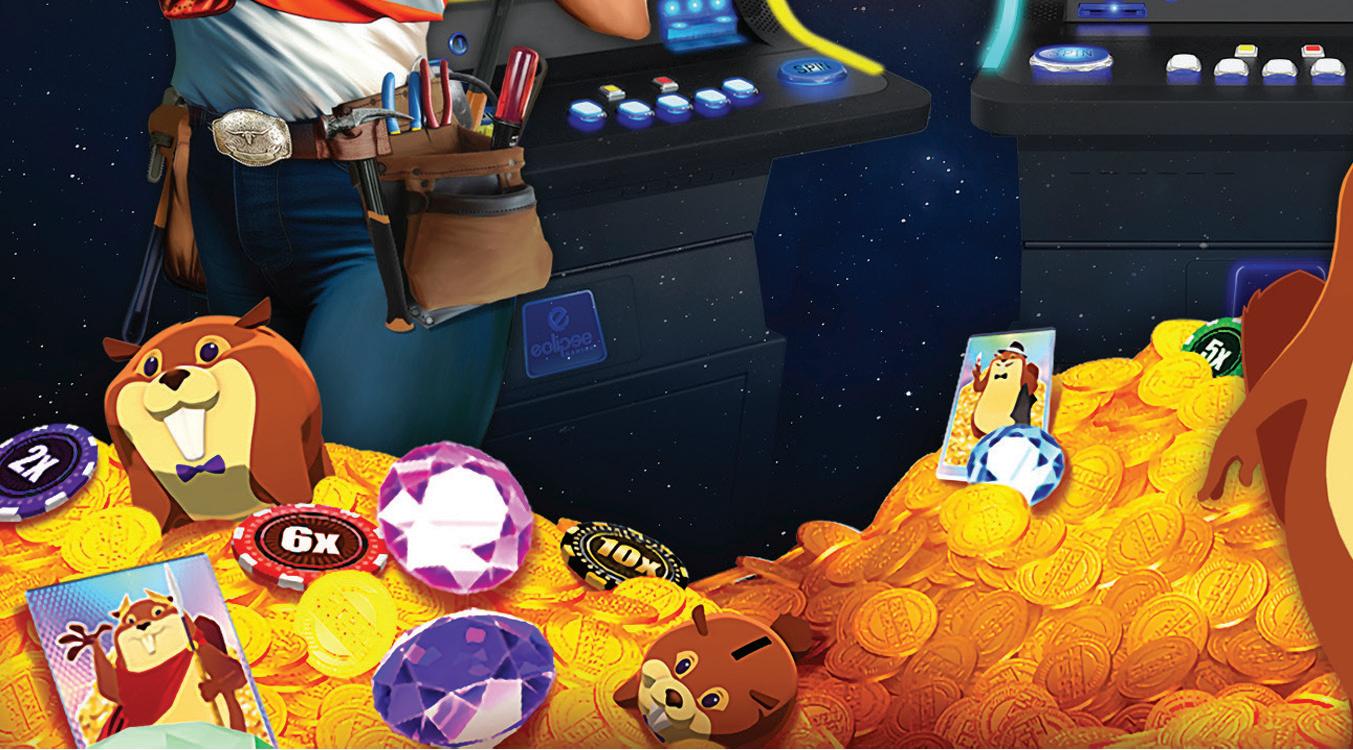
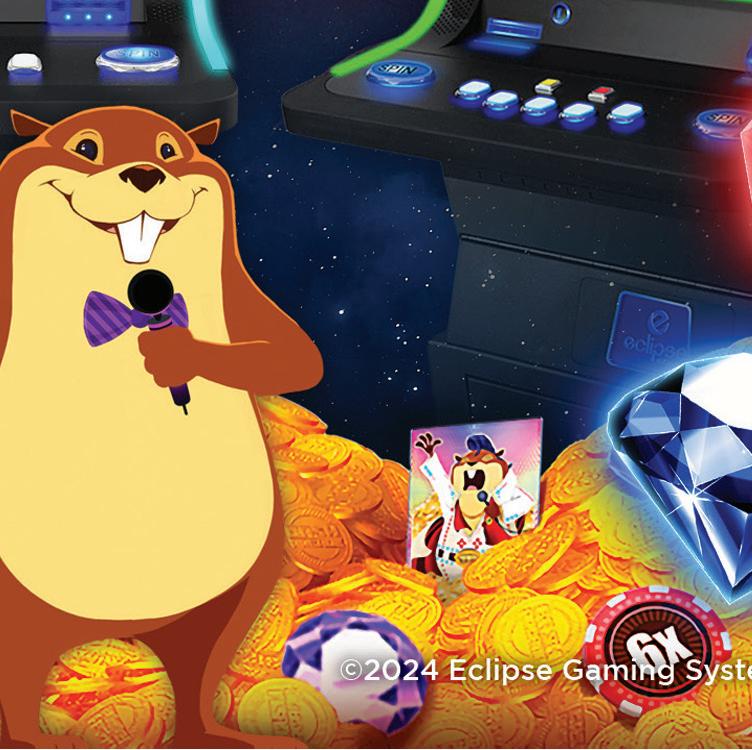





8
IS THIS JUST FANTASY?
Gaming America's regular map feature is back, this time focusing on daily fantasy sports.
10
FROM THE TOP
Two recent Huddle interviews revealed to Las Vegas correspondent Brian Joseph just how young sportsbetting entrepreneurs can be.
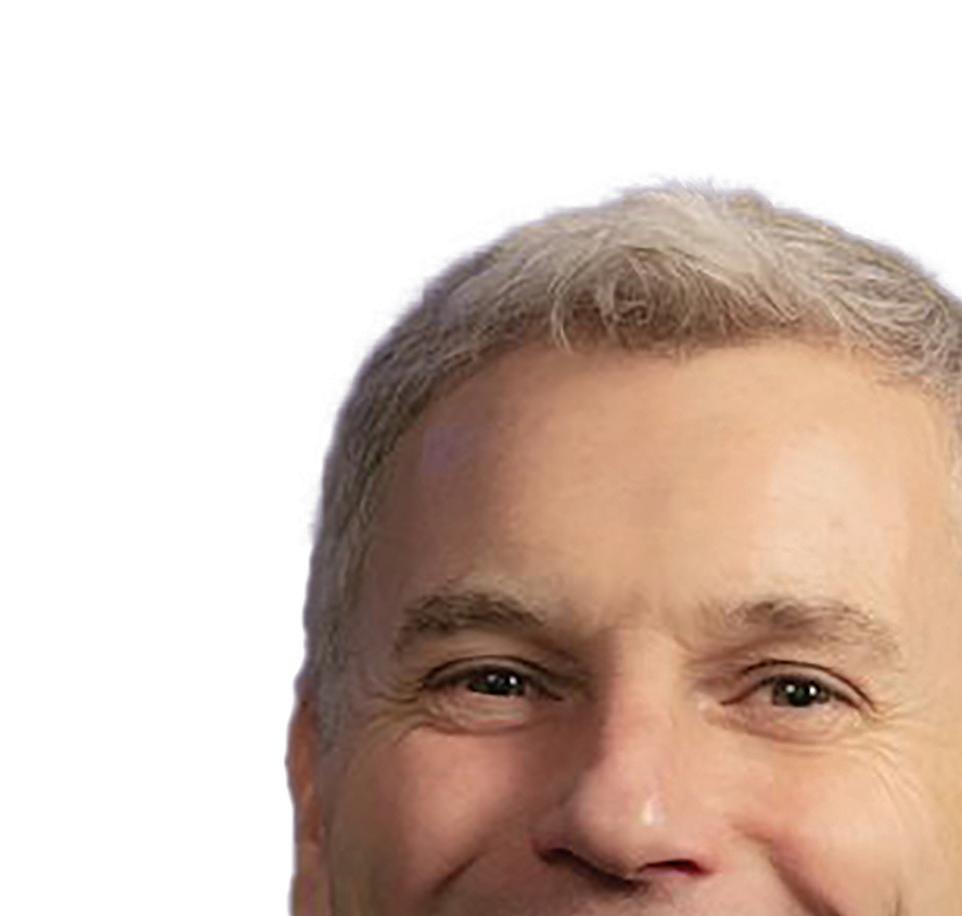
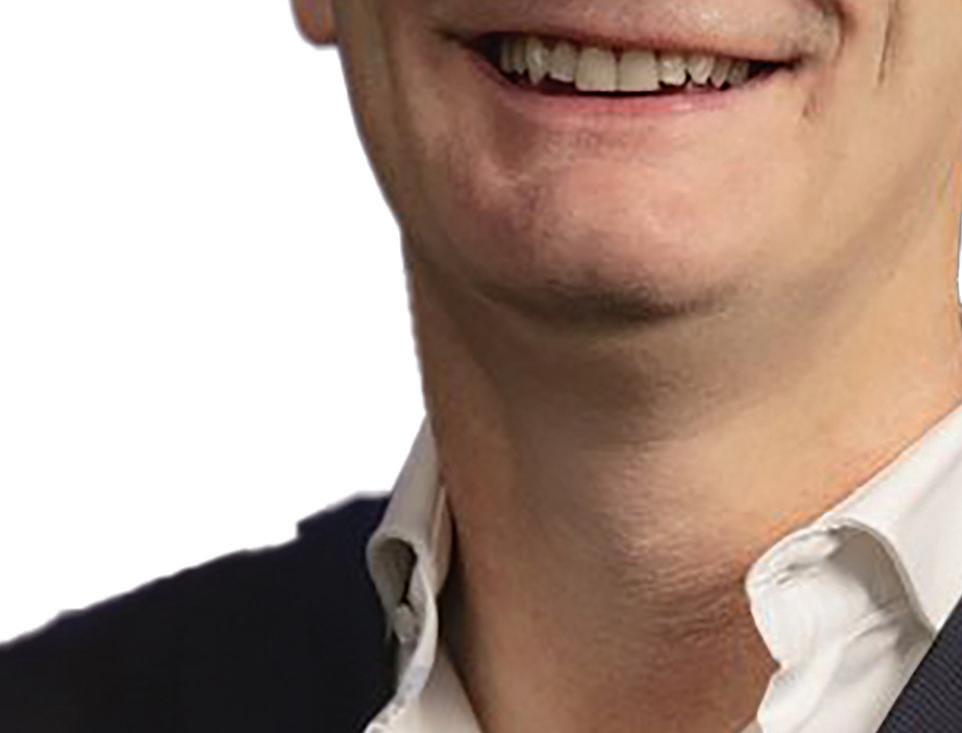
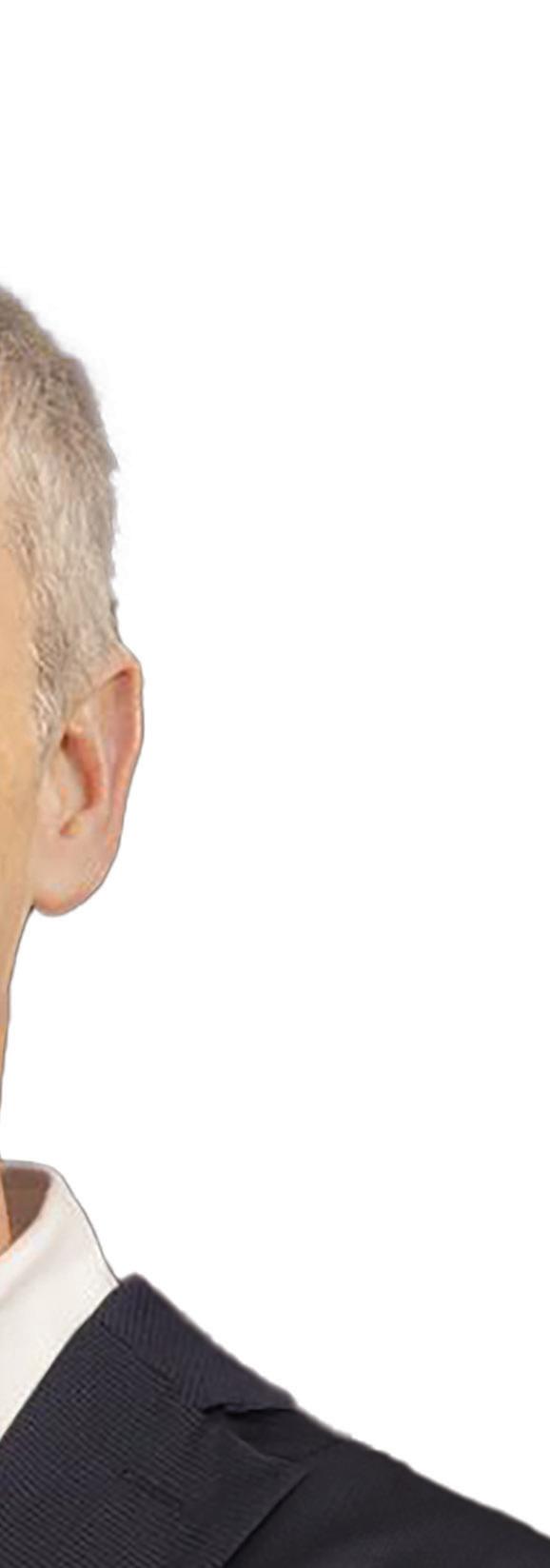
20 A CAUTIONARY TALE
Gaming America explores the risk of resting on your laurels and the challenge of remaining relevant in a rapidly expanding market.
24 EMPIRE STATE GOES FOR GAMING
New York State Senator Joseph P. Addabbo spoke with Gaming America about re-introducing legislation to authorize iGaming.
12
GLOBAL GAMING AWARDS
Gaming America looks ahead to the Global Gaming Awards Americas 2024 and reflects on 10 years of the most prestigious Awards in the industry.
28 WHAT’S NEW IN LAS VEGAS?
Gaming America has put together a list of what is coming to the Sphere during the spring and summer.
14
TIMELINE: MOHEGAN
In the 1990s, Mohegan entered the Tribal gaming market. Gaming America looks back at the Tribe’s gaming history and its many industry firsts...
16
IGA PREVIEW
Gaming America looks ahead to the 2024 Indian Gaming Tradeshow & Convention, and what attendees can expect when they arrive at the Anaheim Convention Center.
30
MARYLAND: TO BE OR NOT TO BE
As many US states move forward with bringing legal online and retail sports betting to their residents, the decision to expand gambling to include iGaming brings with it questions and concerns.
6 | GAMINGAMERICA GAMING AMERICA | CONTENTS
50 Angus Nisbet
40 Paul Pellizzari
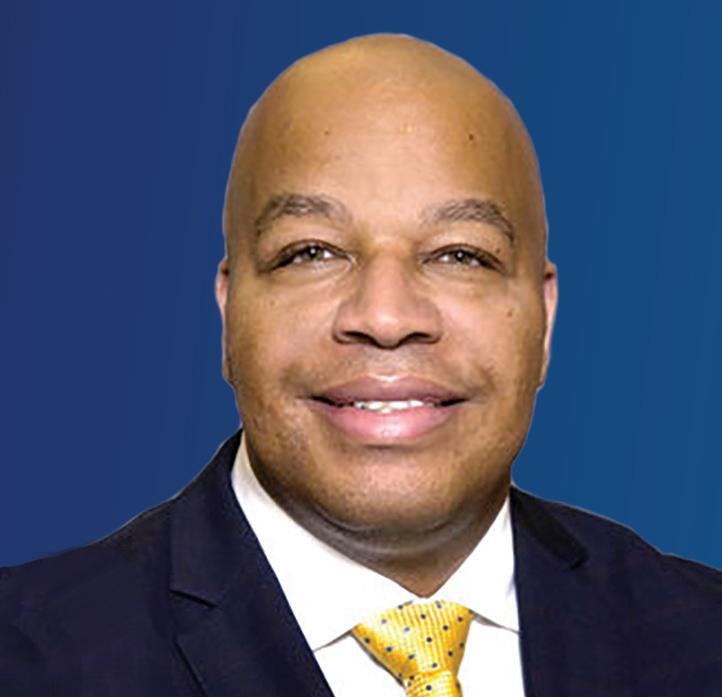


Brooke Fiumara
32
A FORGOTTEN LANDMARK
A concrete-paved, surface parking lot in the shadow of the sprawling Las Vegas Convention Center is all that is left of one of the most ambitious casinos ever built in Las Vegas, writes Oliver Lovat.
36
A RELATIONSHIP ONLY DIVIDED BY THE OCEAN
Gaming America speaks to the Choctaw Nation about its history and the close connection it has with Ireland.
40
TACKLING TRAFFICKING
Paul Pellizzari, VP, Global Social Responsibility at Hard Rock International and Seminole Gaming, spoke with Gaming America on the realities of human trafficking in the gaming industry.
44
WHAT’S NEXT FOR TRIBAL GAMING?
Industry experts answer Gaming America’s burning questions on all things related to Tribal gaming, including OPTX, the Potawatomi Casino Hotel, Oddsworks and Mohegan Digital.
50 KING OF CASINO
Gaming America spoke with BetMGM’s VP of Gaming Angus Nisbet on the operator's recent launches, the Super Bowl and what 2024 has in store...
54 EXPERIENCE AND ACCESSIBILITY
For Ron Bailey, the VP and General Manager of Valley Forge Casino Resort in King of Prussia, Pennsylvania, the key to the hospitality business is offering something different...
58
CREATING CONVENIENCE
Lottery Now CEO Kevin Kramer says it is “fantastic” to see DraftKings validate the lottery courier space by investing further resources into it.
62 PRODUCT REVIEWS
Gaming America looks at the latest product offerings on the market, including from Aruze Gaming Global, Eclipse Gaming and more.
GAMINGAMERICA | 7 CONTENTS | GAMING AMERICA
54 Ron Bailey
62
IS THIS JUST FANTASY?










NEVADA























Despite being the US' gambling hub, no DFS operators currently run in the state. The Nevada Gaming Control Board issued a notice in 2015 deeming DFS to be gambling and not a game of skill. This means it is not illegal – but a license is required to operate in the Silver State (which proved a turn off for operators).













GEORGIA



In March 2023, PrizePicks was named Atlanta United’s first fantasy sports partner.















GAMING AMERICA | FANTASY SPORTS 8 | GAMINGAMERICA
NM
MT WA OR ND SD MN IA NE
UT CO AZ OK KS MO AR WY ID
CA
NV
TX LA
Fantasy sports continues to grow in the US, both in terms of popularity and the number of operators who offer it. Despite the exponential growth of sports betting, daily fantasy sports (DFS) remains a hot topic. From its financial growth to legal issues, we assess some key fantasy states below.





WI




IL






MICHIGAN




















PA
























































In January 2024, the Michigan Gaming Control Board (MGCB) sent a cease-and-desist letter to Prediction Strike, a fantasy sports stock market. It was found to have “offered internet gaming and internet sports betting in Michigan without being licensed in the state as an internet gaming operator and a sports betting operator.”







MASSACHUSSETS



In November 2023’s revenue report, DFS operators brought in close to $23.8m in gross fantasy wagering receipts, with DraftKings, in what is its home state, topping the list with close to $9.5m.






CONNECTICUT





















In September 2023, the Florida Gaming Control Commission (FGCC) sent ceaseand-desist letters to Underdog Sports, PrizePicks and Betr for possibly “offering or accepting illegal bets or wagers.”








November 2023 revenue for fantasy sports was higher than that of online sports betting and online casinos.

MARYLAND
In FY 2023, $1.2m was contributed to the state of Maryland from daily fantasy sports, which supports state programs for schools, public health and more.
NORTH CAROLINA
In January 2024, DraftKings and NASCAR agreed terms on a written designation agreement allowing DraftKings to operate in the state. On top of this, DraftKings was also named the exclusive daily fantasy sports partner of NASCAR in the US and Canada.
GAMING
GAMINGAMERICA | 9
FANTASY SPORTS |
AMERICA
IN
OH
VA
NC
SC
GA
TN
KY
MI WV
MD
AL MS
FL


FROM THE TOP: WILL YOUTH BE SERVED BY SPORTS BETTING?

Two recent interviews in our Huddle podcast revealed to Las Vegas correspondent Brian Joseph just how young sports betting entrepreneurs are becoming.
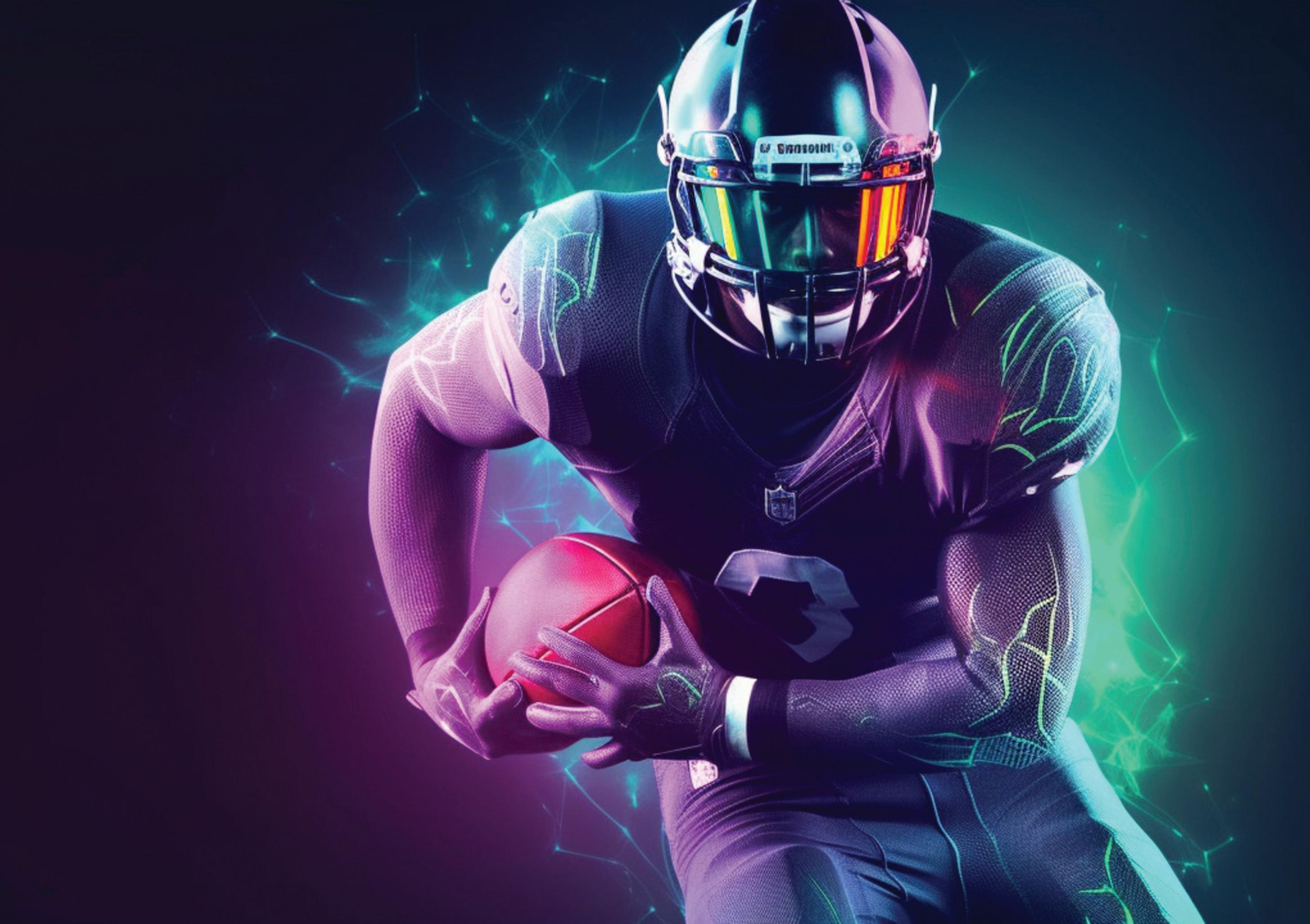
Noah Bernstein and Jacob Fortinsky have a lot in common.
Both are Co-Founders and CEOs of innovative, new sports betting enterprises –Berstein of Locker, an app that allows users to bet, in real-time, on what will happen during the next series of a National Football League (NFL) game. And Fortinsky of Novig, a commission-free sports-betting exchange that allows bettors to wager against the market or their peers.
Both are casual, good-natured, highly intelligent (and highly educated) guys

who can throw around techno-business phrases like “treated it like an incubator” and “programmatic trading” with ease and panache. But when I recently interviewed both on camera for Gaming America and Gambling Insider’s online interview series The Huddle, their youth perhaps stood out more than anything.
Both Bernstein and Fortinsky are recent college graduates (from the University of California-Berkeley and Harvard University, respectively) working on what effectively are their first professional ventures as
“THE PEOPLE I HAVE THE MOST RESPECT FOR ARE PEOPLE THAT ARE WILLING TO TAKE BIG RISKS TO TRY TO CHANGE THE STATUS QUO.”

post-undergrad adults.
“I’m fairly young, so I don’t have the most extensive professional experience,” Fortinsky told me when I asked how his professional journey led him to found Novig. Likewise, Bernstein said Locker is his “first one after college” – his first enterprise after graduation.
These are not your stereotypical sportsgaming proprietors (at least in the US). Indeed, Bernstein and Fortinsky represent a new breed of sports betting entrepreneur, tech bros steeped in Silicon Valley and venture capital culture. They just happen to be applying their knowledge of UI/UXs, algorithms and seed funding to something they gravitated to as young men: sports and gambling.
“I was in a frat in college and so NFL Sundays were like a religious holiday for us,” Bernstein told me. “All the guys getting together, watching the games. My favorite part of watching those NFL games was when my buddy, who’s a Rams fan, would watch Cooper Kupp drop a pass, and me and
10 | GAMINGAMERICA GAMING AMERICA | FROM THE TOP
my friends being able to give him stick for it. I wanted to focus on digitizing that experience of watching an NFL game with your friends.”
Said Fortinsky: “My senior year of college, I decided to start Novig. On the side, I was very serious playing poker, I’m trading on prediction markets and I got into sports betting, saw some serious problems with the industry and set out to build what I viewed to be a better solution. I aimed to build a better model and started the company with a close friend of mine.”
You can get a hint of the confidence both men possess by Fortinsky’s last comment about setting out to build a better solution. Neither was shy at all about expressing their ambitions to create market-leading apps that break the mold and set new standards –despite, of course, their relative youth and lack of experience.
“The people I have the most respect for are people that are willing to take big risks to try to change the status quo," Fortinsky said. In that way, the “tech bro” moniker really fits. These guys are confident, tech-savvy and deeply enthusiastic about the most quintessential of 'guy' stuff: sports. (I didn’t see anything to suggest that the negative connotation of “tech bro” – a lack of good social skills – applied to either Bernstein or Fortinsky. Rather, they seemed like friendly dudes who’d be fun to drink a beer with and watch a game.) More like Russ Hanneman than Richard Hendricks off the TV show Silicon Valley...
But, speaking of, it’s fair wonder if this Silicon Valley-esqe approach, with its emphasis on innovation, technology, youth and verve, will work in the long term in the ever-growing (and rapidly growing) world of sports betting; especially with the deep-pocketed, wellknown and/or firmly established players in the sector, like DraftKings, FanDuel, BetMGM, ESPN Bet and Fanatics. Fortinsky, for example, said, “We have taken a somewhat outsider approach. We chose to raise money from more typical Silicon Valley investors rather than from people within the industry, for a number of reasons. We have deep
respect for lots of people in the sector, in various corners of the industry. But I do strongly believe that the industry has to evolve in a number of key ways and the best way to do that was to raise from people whose visions of the industry were aligned with our own, and were more comfortable taking a contrarian perspective.”
That’s a bold statement to make when a 50-year-old company like Penn Entertainment has agreed to spend $1.5 billion to acquire the naming rights of another established, decades-old brand in ESPN, the self-proclaimed “Worldwide Leader in Sports.” It's then spent another $25m just to acquire a New York licence.
As everyone in gaming knows, the sports betting industry is packed with experienced, veteran businesspeople with (and this is a specific, technical term) gobs of money at their disposal. For a couple of fresh-faced fellas fresh outta college to expect they can take on a monied establishment like that, is, well, audacious.
Then again, there was a time not so long ago that taxi-cab companies and taxi unions were among the most powerful political players in America’s largest cities. Now, with the advent of Uber and Lyft, their influence has waned. Considerably. Those rideshare companies, now ubiquitous in every major and minor city in the US, were started by guys in their late 20s and early 30s less than two decades ago. Who’s to say sports betting can’t experience similar disruptive innovation? A better question might be: would you bet against it?
“I think a lot of companies in this space are focused on taking that analog
process of placing a bet at a casino and digitizing that,” said Bernstein, “And I think the major players in the industry, both daily fantasy sports and sports gambling, have done a phenomenal job of growing that online market and bringing it to where it is.
“For us, we’re really focused on the engagement of watching a game more so than the experience of placing a bet. For us, being a second-screen, social platform that’s driving viewership of the games from the younger demographic, I think that’s the real differentiating factor: we’re targeting engagement of the games and trying to make a better experience when enjoying the football games that we all love. We see an opportunity to really build on the momentum that the major players in the industry have already set up; and create something that’s truly innovative and something that we really believe has a mass-market appeal.
“I think one of the major issues in the industry that we saw in a lot of these products was a really steep barrier to entry. A lot of them have a ton of options, a ton of features to use. And I think sometimes it’s overwhelming for the casual fan, casual consumer, to hop on one of these platforms. You feel like you’re kind of looking at the stock market. For us, we wanted to make a really curated, tailored experience, really easy calls to action, again just really homing in on the engagement of the audience for watching these games.”
Of course, nobody knows what the future holds. But that sure sounds like the speech of a disruptive innovator, doesn’t it?
“BERNSTEIN AND FORTINSKY REPRESENT A NEW BREED OF SPORTSBETTING ENTREPRENEUR, TECH BROS STEEPED IN SILICON VALLEY AND VENTURE CAPITAL CULTURE.”
GAMINGAMERICA | 11 FROM THE TOP | GAMING AMERICA


REWARDING EXCELLENCE
The 10th edition of the Global Gaming Awards took place in Las Vegas last year. Gaming America looks back... and ahead to this year's.





In October 2023, the stage was set. The Bellini Ballroom at the Venetian was filled with the most reputable executives in the industry, as the sector’s biggest companies sat in anticipation, hopeful of claiming one of the most prestigious Awards in gaming. Host Mariya Savova, Global Gaming Awards Event Manager, took to the podium, accompanied by Micky Swindale of KPMG in the Crown Dependencies, speakers from the Awards’ sponsors and, of course, Lead Partner BetConstruct. As the ceremony unfolded, Aristocrat, Wynn Resorts, FanDuel, MGM Resorts, Circa and more would all return home triumphant, marking a special occasion within the Awards’ history.


the industry, is unwavering. Our Shortlist procedure, taking into account company success and distinct achievements from the past 12 months, means only those who truly deserved it are nominated. And the occasion, only emphasized during our 10th edition, always offered a grand sense of celebration – rewarding an industry that truly deserves to shout about its success.

“Every year we reiterate how strict we are with the shortlisting and voting processes, which is why the Global Gaming Awards remain the most prestigious in the industry” reflects Savova. “Only 10 companies are shortlisted in a category and 25 individuals in Executive of the Year. We all know how many companies and executives work in the gaming industry across the Americas, so as you can imagine, narrowing the Shortlist down and ensuring the best of the best are recognized is no easy task.
across all categories. Once again, voting will be adjudicated by KPMG in the Crown Dependencies, with Judges excluded from voting in categories where they have a conflict of interest.

LOOKING BACK
Flash back 10 years and the Global Gaming Awards in Las Vegas were facing a very similar scenario, with a room full of guests and, again, some of the industry’s biggest contenders going toe to toe. Quickly, the fledgling event established itself as gaming’s most prestigious Awards ceremony. Now, we head into the Awards’ 11th edition, following a decade of growth for gaming, a decade of change and, most of all, a decade of excellence. How time flies.
Whoever claimed a Global Gaming Award, however, there were always several constants. Our Judging process, independently verified by KPMG in the Crown Dependencies and boasting a panel of 100+ C-level executives from across

“Similarly, we put a lot of effort in ensuring we have the best Judging Panel. We only invite senior industry leaders with years of experience in the relevant market and we ensure we only have one executive per company on the Panel. The industry has seen that we do everything we can to create an Awards event that is credible and fair, and it fills me with pride to see the growing interest and respect for our event year after year.”
LOOKING AHEAD
As the 11th annual ceremony approaches in 2024, the Global gaming Awards Americas are already looking ahead. Self-nominations are now open and will close on April 26 – so be sure to heed that deadline if you are interested in submitting your organization. On August 1, our Shortlist will be finalized, with a full reveal of the Shortlist scheduled for September 6. Voting will commence September 9, when the Judging Panel casts its votes online for a winner and runner-up
WHY SELF-NOMINATE?
If your company has enjoyed a stellar year, the chances are the Global Gaming Awards Americas will already be very aware when compiling our Shortlist. But why leave anything to chance? Organizations are encouraged to self-nominate to provide any internal data and information that can help the Judging Panel make as informed a decision as possible. You can nominate your company for as many categories as you consider relevant – but it’s worth considering where you truly think your best chances lie.
Another important note to consider is our internal deadlines. Given the rigorous nature of the Shortlist process, it is vital all self-nominations are submitted in time for our deadline. So put it to the top of your priority list and get those nominations to us – it might make all the difference for your company.

“No one knows more about a particular company’s achievements than said company itself, which is exactly why self-nominations are so important.” concluded Savova. “I would advise to include stats and facts about your company/products that aren’t necessarily known to those outside your organization. We keep up with everyone’s press releases throughout the year, so we’d like to find out the details about your new product launches or property renovations that were omitted from the media release. We don’t expect you to reveal any trade secrets of course but, for example, if you’re a land-based manufacturer, perhaps you can share how many properties your mostpopular product from 2023 was installed in and how it resonated with players.”
GAMING AMERICA | A DECADE OF...
12 | GAMINGAMERICA



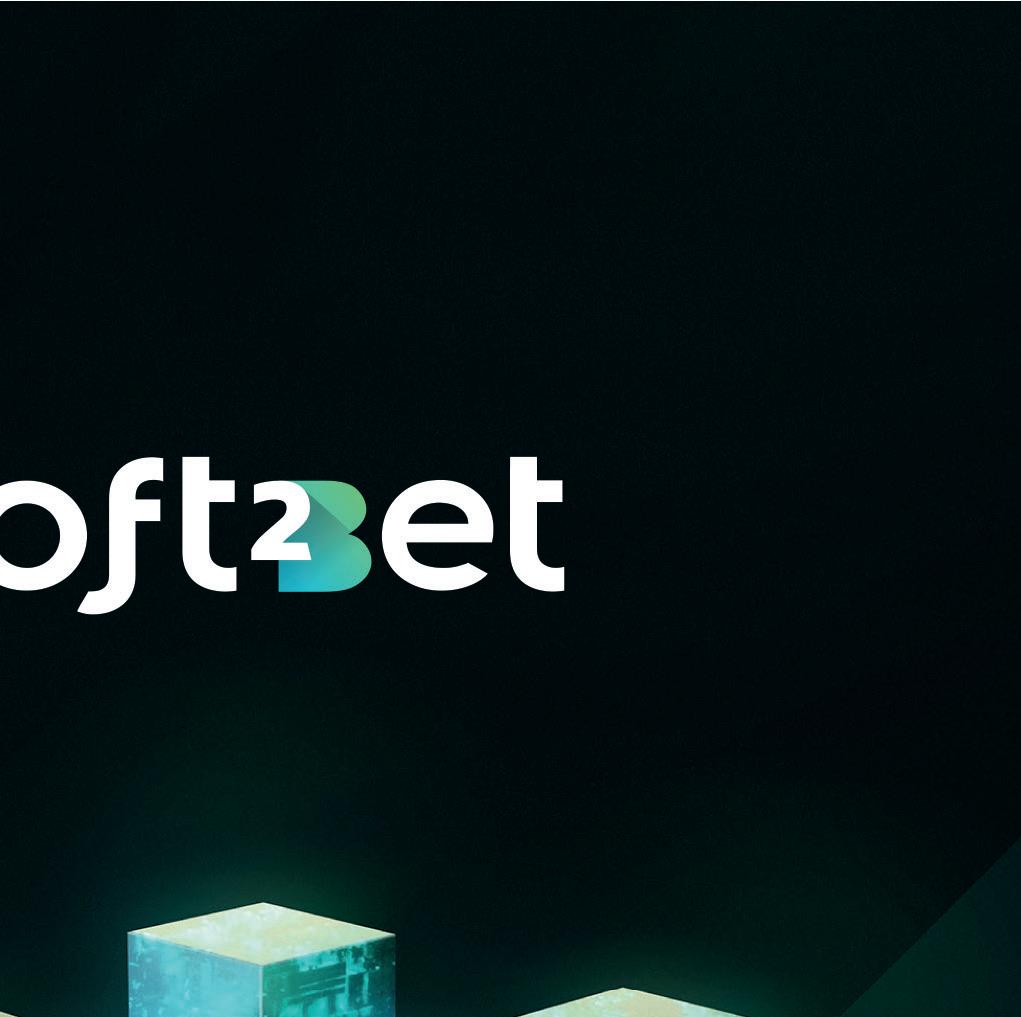

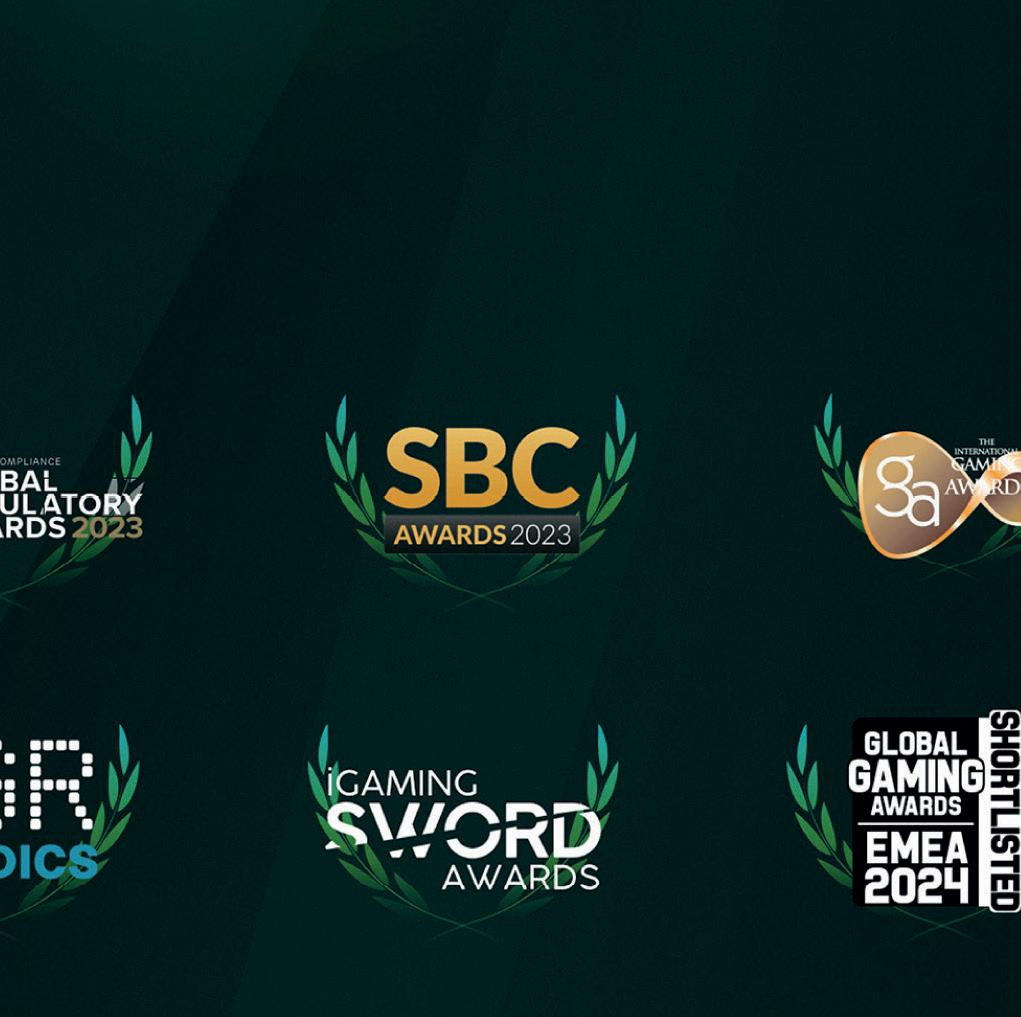



THE MOHEGAN TRIBE
In the 1990s, Mohegan entered the Tribal gaming market. Gaming America looks back at the Tribe’s gaming history and the many industry firsts it has brought.
The Mohegan Tribe receives federal recognition as a sovereign people. With this recognition, the Tribe was able to begin negotiations on a gaming compact.
TCA gives the Mohegan Tribe complete control of Mohegan Sun. However, until 2014 TCA still received a 5% dividend on the gross revenue made by the casino.
Mohegan Pennsylvania is open to the public. Originally known as Mohegan Sun at Pocono Downs, the racino was purchased in early 2005 for $280m.
The Mohegan Tribe acquires Resorts Casino Hotel. Originally opened in 1978 and built almost a century prior, the casino was the first to be built legally in the US outside of Nevada.
Mohegan Sun is opened. Construction on the casino began in 1992 and was developed by Trading Cove Associates (TCA). The casino hosts 4,000 slot machines, over 300 table games and more.
Originally called the Orlando Miracle, Mohegan purchased the Women’s NBA team and renamed it the Connecticut Sun. The purchase made Mohegan the first Tribe to own a professional sports franchise.
Table games become available at Mohegan Pennsylvania after becoming legalized in the state. Mohegan Pennsylvania was one of the first casinos to gain access to these games.
14 | GAMINGAMERICA GAMING AMERICA | TIMELINE
1994 1996 2000 2003 2006 2010 2012 MAR JAN NOV AUG OCT JAN JUL
Mohegan takes over business operations of the Fallsview Casino Resort in Niagara Falls, Ontario as part of a 21-year deal.
Mohegan Casino Las Vegas opens, with Mohegan becoming the first Tribe to operate a casino in Sin City. Located within Virgin Hotels Las Vegas, the Tribe became the gaming operator for the venue in 2019.
Mohegan Inspire soft launches in South Korea. Due to gambling law in South Korea, casino services were not immediately available to visitors, with the soft launch allowing guests to use the resort’s hotel rooms and amenities.
Mohegan Inspire opened an international visitoronly casino after being awarded a license, the first of its kind in almost 20 years.
The Earth Tower is opened at Mohegan Sun. Costing $139m, the hotel was the second at the resort and included 400 rooms.

Then-CEO of Mohegan Gaming and Entertainment Mario Kontomerkos steps down. His role is then taken on by Ray Pineault. Pineault remains CEO today.
In its end-of-year financial report, Mohegan announced its highest adjusted EBITDA to date at $403.9m.


Mohegan Inspire receives a five-star hotel rating from the Korean Hotel Rating System, a requirement for attaining a gaming license in South Korea.




TIMELINE | GAMING AMERICA 2016 2019 2021 2021 2022 2023 2024 2024 NOV MAR DEC JUN MAR NOV FEB
JAN GAMINGAMERICA | 15

have won the lucky dip this year. 2025 and 2026 are set to be back in San Diego, so LA and Orange County will have to make the most of its moment in the spotlight this time around.
While the location has changed, the commitment of attendees remains the same. The convention is expected to welcome around 5,000 visitors over the four-day event. The fusion of Tribal and commercial gaming extends beyond the US, with attendees not only representing the 50 states but 20 countries from around the world. Those heading in from outside the state will be lucky enough to soak up the southern Californian sunshine and take advantage of the West Coast’s warmer climate to get a jump start on their sun chasing for the year.
The IGA show welcomes a wide range of attendees from the casino, sportsbook and online gaming industry. Senior
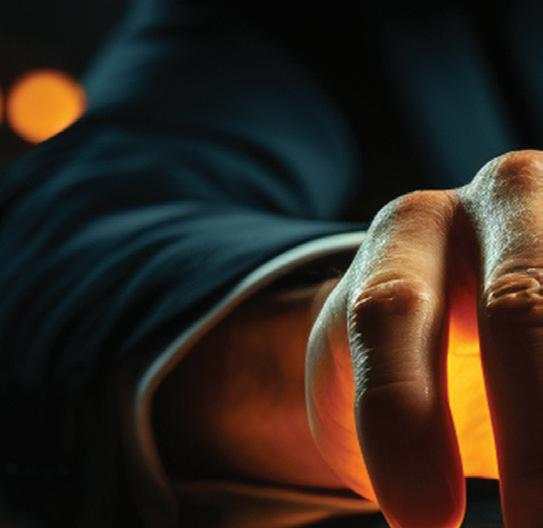
professionals are expected to attend the conference, with a majority (51%) in C-level or director roles, followed by those in managerial positions (22%). Previous years have been dominated by the casino and gaming industry (29%), with only a small percentage of attendees from the iGaming (3%) and esports betting (5%) sectors. However this year, with the introduction of the DigitalPlay Summit, attendees from the iGaming and esports betting sectors could spike. This is especially likely considering the trend of Tribal operators expanding into the digital market over the past year.
A brief glimpse at the schedule reveals a mix of educational conference sessions and product exhibits, with businesses across the industry expected to fill up the tradeshow floor. Attendees can expect to find gaming companies and new casino products lighting up the show floor among Native American arts, craft and jewelry booths.




“OVERALL, THE IGA CONVENTION IS LOOKING SET TO BE AN EDUCATIONAL AND CULTURAL INDUSTRY EVENT WITH ITS FINGER ON THE PULSE OF EMERGING TECHNOLOGIES.”
The exhibit hall also promises a variety of Indian gaming, iGaming, hospitality, sports betting and casino booths. Specific panel information is to follow, but with the DigitalPlay Summit bringing new offerings to an already established tradeshow, we have no doubt there will be a diverse range of topics and people to learn from. The conference promises 70+ hours of education across the four-day event, so if you’re in the mood for learning, you’re in the right place!
IGA has a partnership with Clarion Events, which produces worldwide shows including the biggest B2B gambling event in the world, ICE. So the show is set to be a seamless opportunity for those in our industry to head to California and immerse themselves in the unique North American gaming market.
Whether you’re staying in Anaheim or LA, the location of the conference offers a number of opportunities to continue networking after the close of the business day. Beyond the picturesque beauty of Orange County, attendees can head into LA to explore the City of Stars, renowned for its authentic Hollywood glitz and glamour. For the Disney adults among us – and for those who don’t know already – Anaheim is home to the original Disneyland Park, a historic landmark in itself. Finally, if you’re looking for a more low-key experience, avoid the big attractions and the big city by exploring Anaheim’s historic district featuring boutiques, record stores and independent coffee shops.
Overall, the IGA convention is looking set to be an educational and cultural industry event with its finger on the pulse of emerging technologies. The conference offers a unique opportunity for Tribal and gaming leaders to converge for several days of learning, networking and industry growth. In 2022, the Tribal gaming sector was a $40.9bn market, growing each year for the past decade and accounting for almost half the gaming revenue in the US, so this year’s Indian Gaming Tradeshow & Convention should definitely be on the radar of key industry executives and leaders.
18 | GAMINGAMERICA GAMING AMERICA | PREVIEW




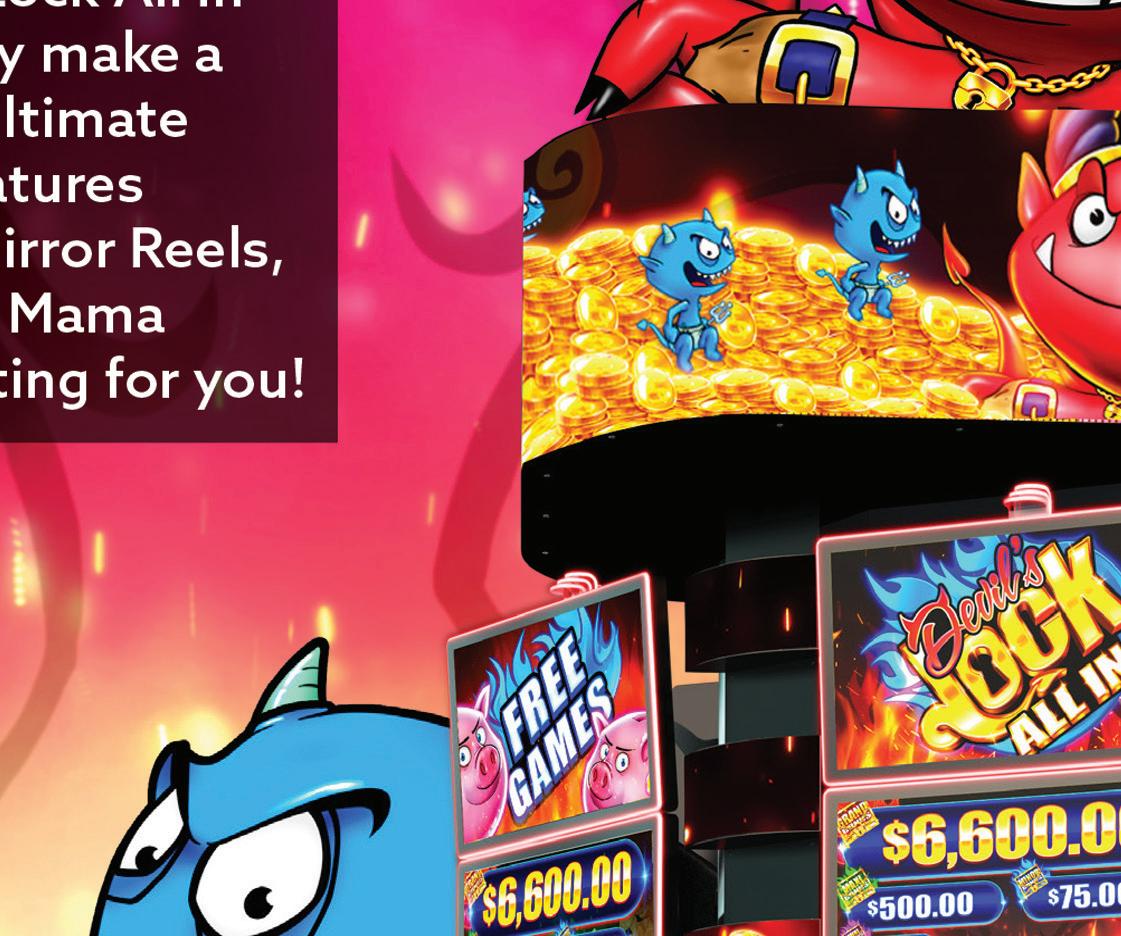
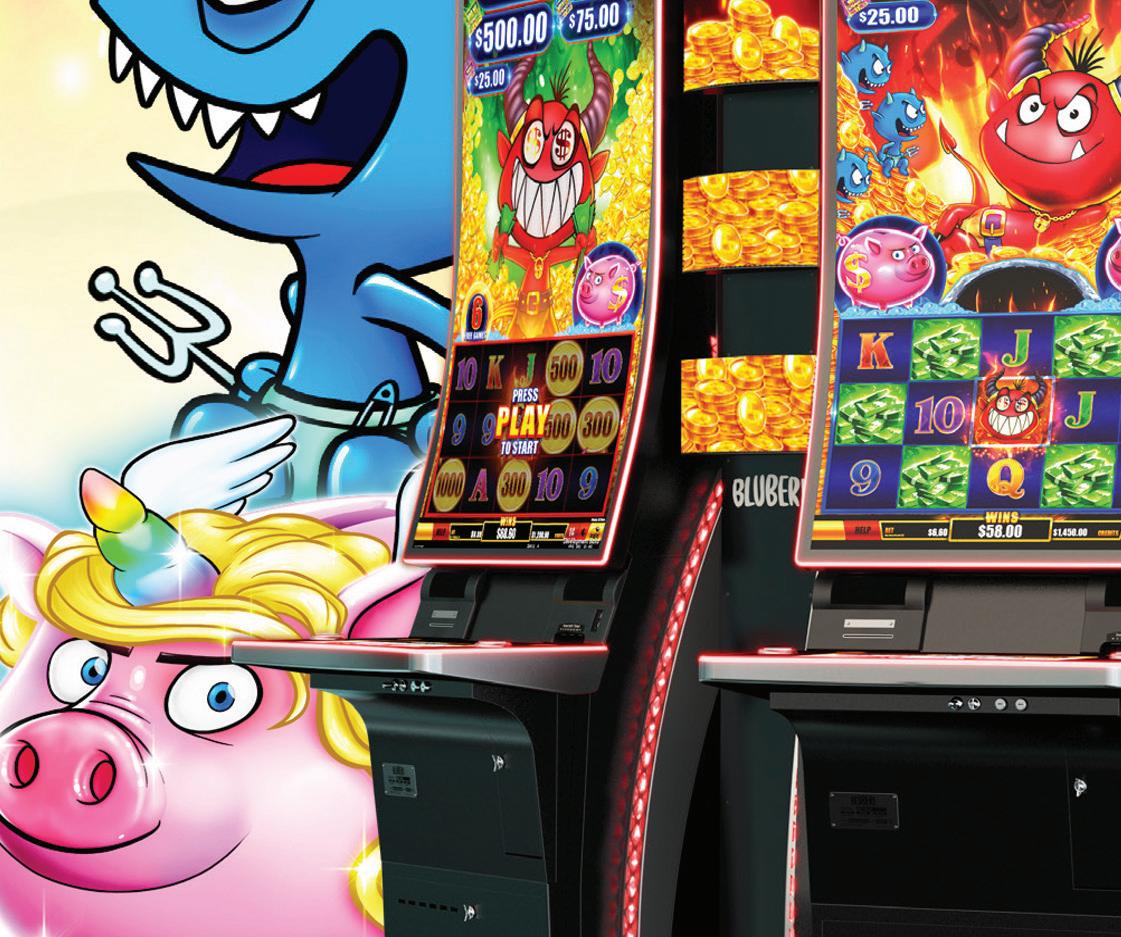
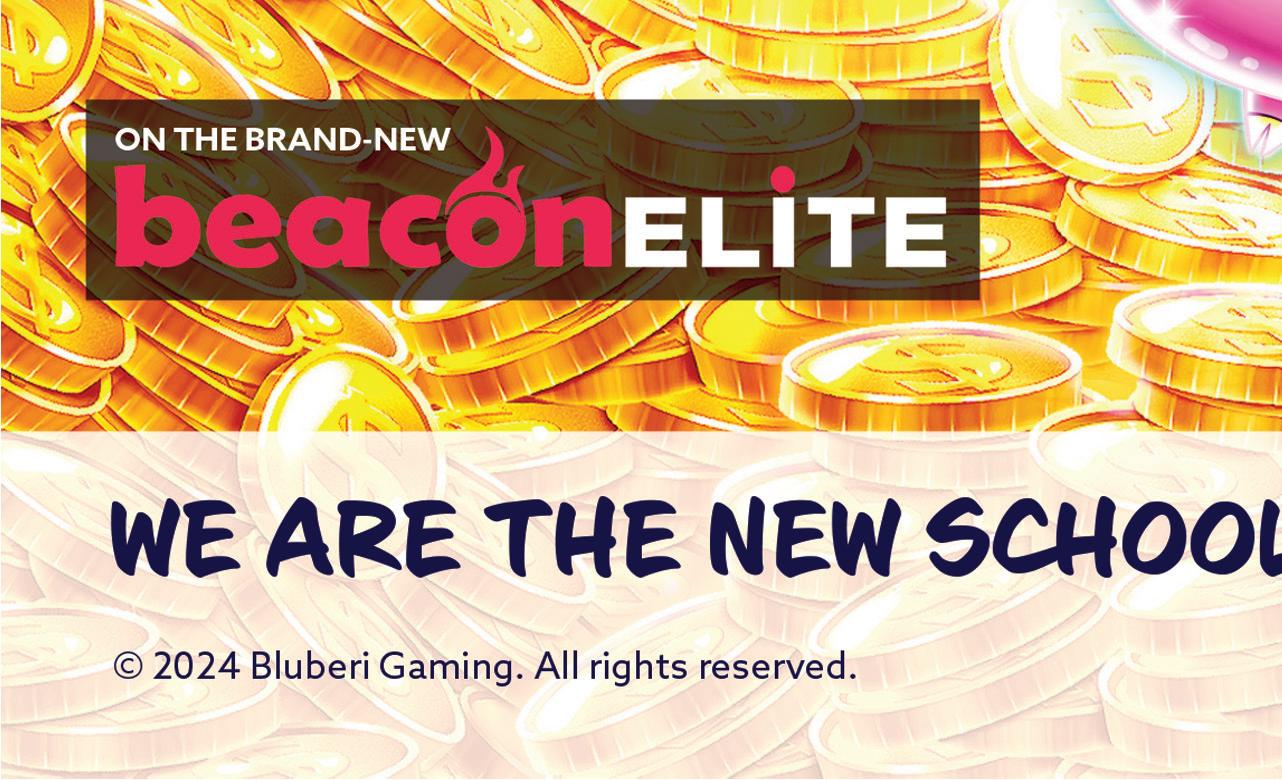



A CAUTIONARY TALE
Gaming America explores the risk of resting on your laurels and the challenge of remaining relevant in a rapidly expanding market.

It’s practically gospel in the business world that the company first to market holds a significant edge over its competitors. The concept even has a name found in essentially every MBA program, the “firstmover advantage.” That term has become virtually synonymous with success in sectors as diverse as safety razors, soft drinks and web browsers.
But is the first-mover advantage actually real? And, more importantly for readers of Gaming America, does it apply to fastevolving markets like sports betting, which seems to be constantly in a state of flux in the US? British operator 888 Holdings offers a cautionary tale about the supposed benefits of the first-mover advantage. For those who are unfamiliar, 888 is, on paper, a giant in the international sports and gamnig sectors. Based in Gibraltar and traded on
the London Stock Exchange, 888 owns some enormous brands, including the William Hill Sportsbook (partners with the NBA, the NFL and the NHL) and the Sports Illustrated sportsbook and casino, in addition to several 888-branded gaming sites.
It traces its origins back to May 1997, long before online gaming and online sportsbooks were common apps on every gambling enthusiast’s smartphone, making it a prime beneficiary of the first-mover advantage.
Or, well, at least seemingly so. Over the years, 888 – originally known as Virtual Holdings Limited – has owned and operated a series of online casinos and poker sites and has thrown around tens of millions of dollars acquiring brands, most notably William Hill in 2022. But a funny thing happened on its way to market dominance: its revenues have declined and its share
price has fallen dramatically, from a high of £4.58 ($5.83) per share in September 2021 to £0.69 at the end of 2023.
What happened?
IT’S ALL ABOUT THE PACE OF TECHNOLOGY AND MARKET EXPANSION
Writing in the Harvard Business Review back in April 2005, researchers Fernando F. Suarez and Gianvito Lanzolla reported that first-mover advantage is actually not an absolute, but rather a “half-truth,” largely dependent on two factors outside of the control of the first mover: the pace of a technology’s evolution and the pace of the market’s expansion.
These insights seem to point exactly to the problems 888 has encountered in recent months. You see, Suarez and Lanzolla say that if the technology underlying a particular product evolves quickly, or if the market for that product expands quickly, the first-mover advantage is greatly reduced if not eliminated entirely. You can probably see where we’re going with this. Since 888 entered the sports and iGamingspaces, both the technology underlying the services and the market have evolved at what can only be described as a break-neck pace.
Virtual reality, augmented reality, blockchain, cryptocurrency, artificial intelligence – all of these technologies are working their way into the very fabric of the sports and iGaming ecosystems. And it’s happening so quickly that an app or site that was sophisticated yesterday could be outdated by tomorrow. But then pile on top of that the rapid expansion of the market. In 2022, the sports betting market showed the fastest growth in all commercial gaming segments. It showed a 75% increase in year-on-year revenues,
20 | GAMINGAMERICA GAMING AMERICA | FIRST-MOVER ADVANTAGE

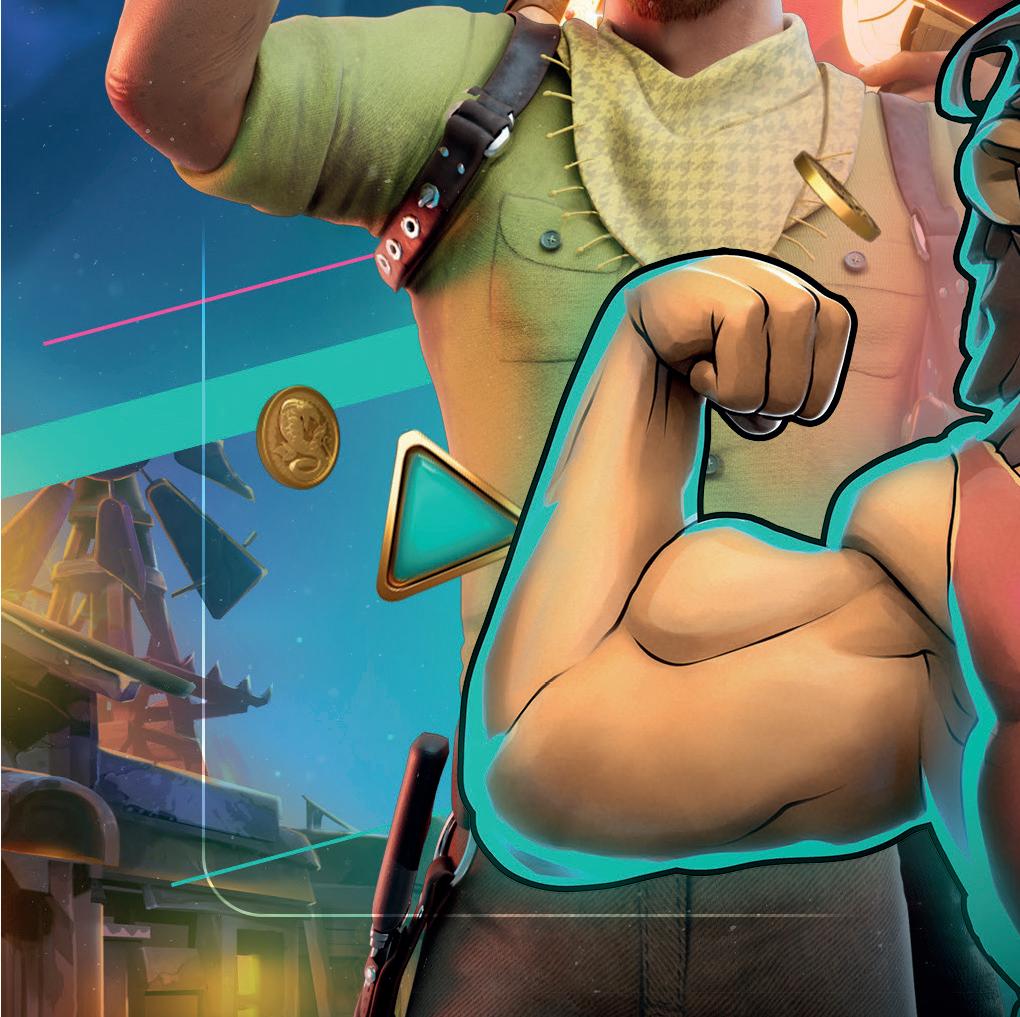

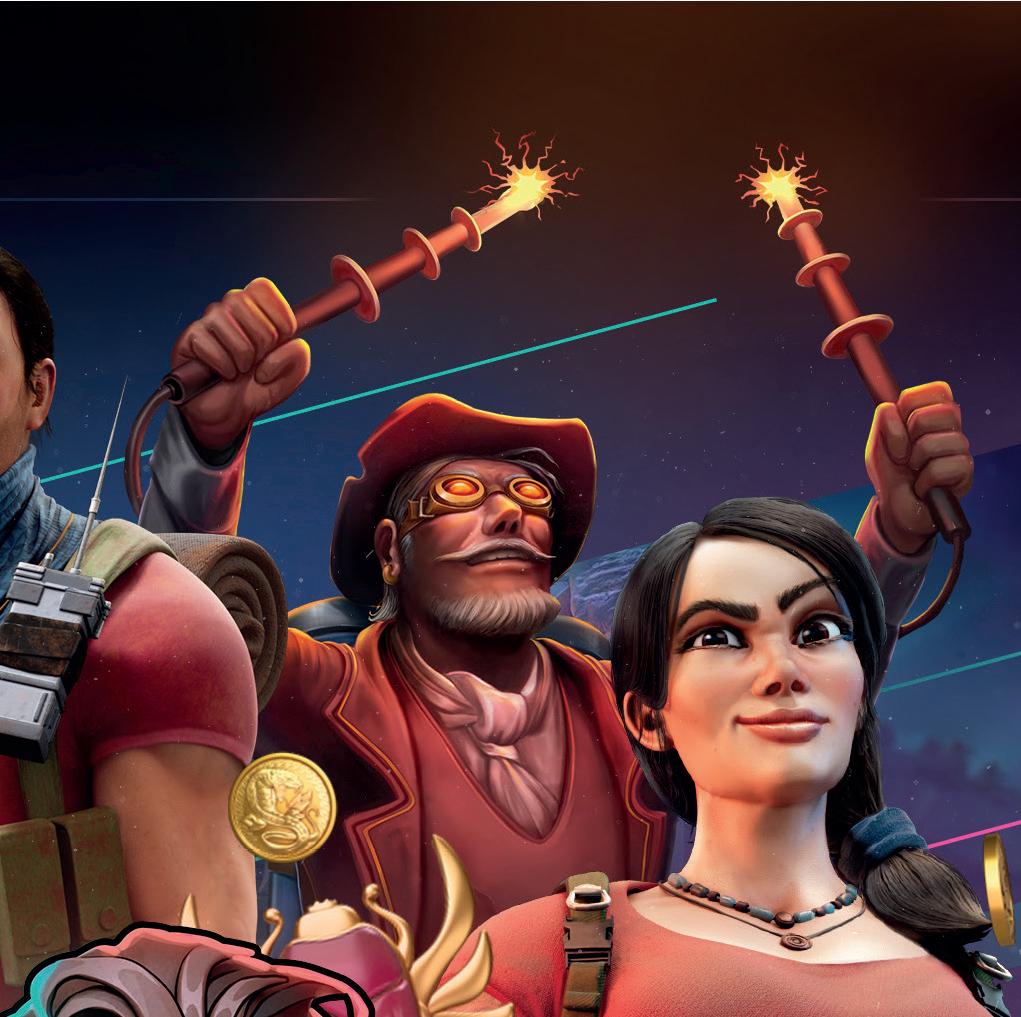
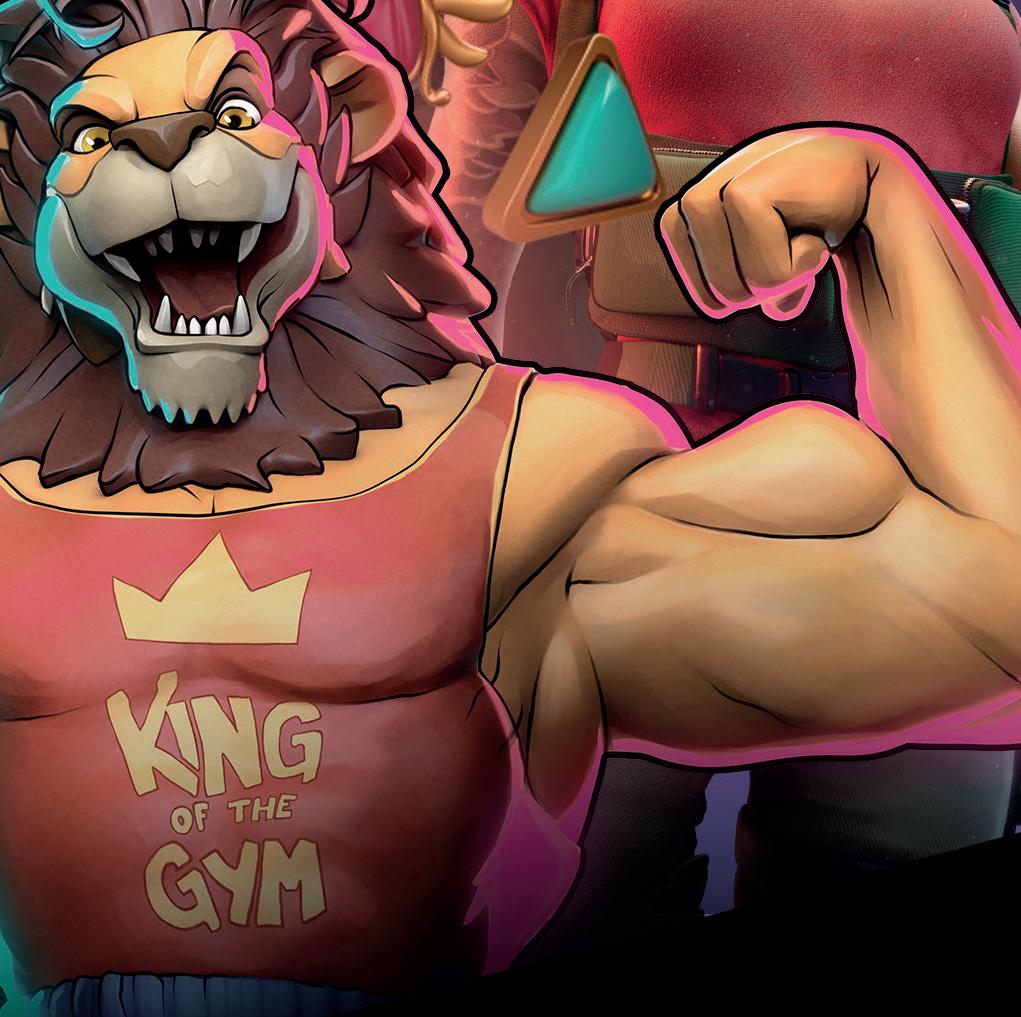
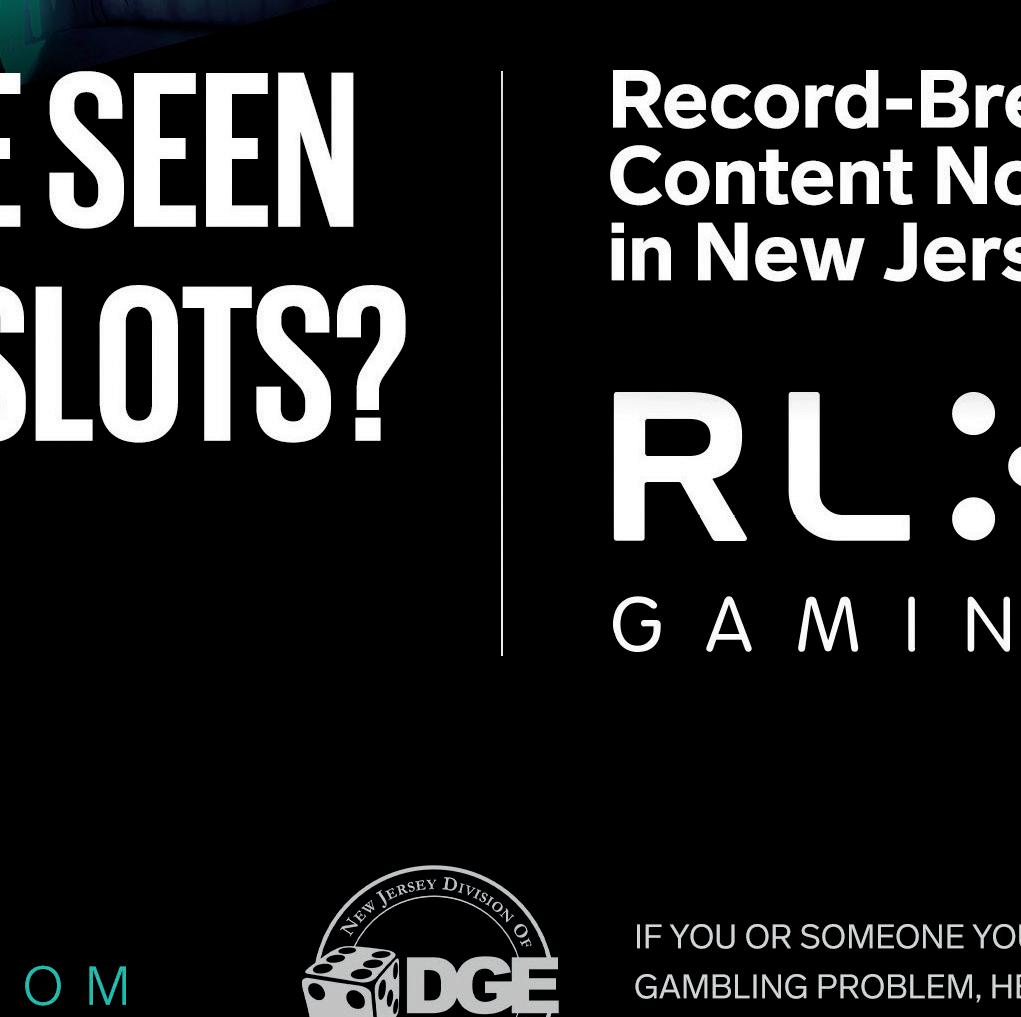


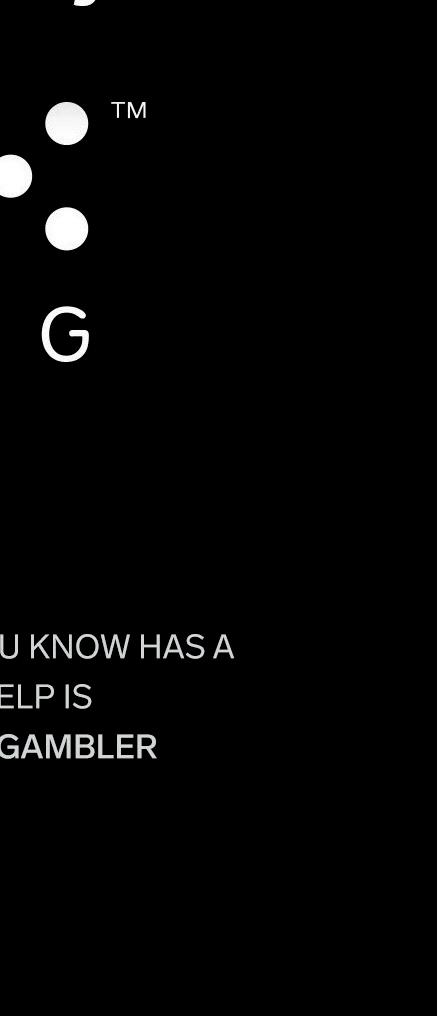
driven (in the US at least) by state-level legalization. Online gambling in general – which of course encompasses sports betting – has seen an expansion, with the software market alone growing to $66.72bn in 2020. You don’t have to be particularly good with numbers to know that’s warp-speed growth.
WHY ISN’T THE SPORTS ILLUSTRATED SPORTSBOOK RIVALING ESPN BET?
In this rapidly changing environment, the last thing you want to do is rest on your laurels, particularly the laurels of being one of the first in the business. But, that’s certainly the perception 888 has put into the world. While FanDuel and DraftKings, the early entrants in the US market, have clearly tried to innovate and evolve with shifting consumer sentiments, 888 customers in Europe report a static experience. Products just haven’t evolved. The company’s historic failings are particularly noticeable when you consider its rights to the Sports Illustrated brand. Today, Sports Illustrated is a shadow of its former self. But not that long ago it rivaled ESPN as the top purveyor of sports news and analysis not only in the US but worldwide.
And 888 had the rights to operate a Sports Illustrated-branded sportsbook and a casino. This should, in theory at least, have had the makings of a cash cow for 888. After all, ESPN’s entrance into the sports betting market through its partnership with Penn Entertainment and the roll out of ESPN Bet is expected to shake up the sports gaming world. Sports Illustrated may not be the market leader that it once was, but ESPN isn’t exactly living through its golden age
either these days. There’s no reason why a Sports Illustrated sportsbook, properly run, couldn’t have produce dsome good revenues with that brand identity.
And yet you’ll be hard pressed to find sports bettors who frequented the Sports Illustrated Sportsbook in the US. It doesn’t rank when you look at the top online sportsbooks in the US. Caesars, bet365, FanDuel, DraftKings, BetMGM – and increasingly ESPN Bet and Fanatics – those are the brands sports bettors know and use in droves. Sports Illustrated? That’s a struggling sports magazine that has recently made the majority of its editorial staff redundant. It’s safe to say it isn’t even on most sports bettors’ radars, particularly casual sports bettors.
TECHNOLOGY AND TECH CULTURE IS WHERE WE’RE HEADED
Suarez and Lanzolla write that when “technological innovation and consumer acceptance advance rapidly” early entrants to a market – the first-movers! – are “highly vulnerable.” They point to AT&T and Netscape as two examples of companies that were “capsized by the rapid churning of technology and markets.”
AT&T is a behemoth now, but it got its lunch eaten four decades ago, when it was the first company to roll out a cellular telephone system in the US in 1977 and, the next year, tested it with 2,000 customers in Chicago. A few years later, in 1983, Ameritech, not AT&T, became the US’s first provider of commercial cellular mobile services to the general public. Ameritech beat AT&T to the punch because its technology developed faster.
“IN THIS RAPIDLY CHANGING ENVIRONMENT, THE LAST THING YOU WANT TO DO IS REST ON YOUR LAURELS, PARTICULARLY THE LAURELS OF BEING ONE OF THE FIRST IN THE BUSINESS.”
Now, of course, AT&T has recovered just a little since then, while Ameritech is a historical footnote, but that has more to do with subsequent developments. AT&T’s first-mover advantage in developing a cellular mobile system was essentially nil.
The Netscape story is much worse. Do readers today even know the Netscape name? There was a time in the 1990s when Netscape was the web browser that everyone used, because it was the first company to market an Internet browser. Netscape in the 1990s was as ubiquitous as Google and Amazon and Apple are today. It was that big.
But after Microsoft entered the browser game with its Explorer product, Netscape’s dominance hit a brick wall and its stock price dropped like a rock in 1997. The company doesn’t exist anymore. The tech world in particular is littered with firstmover cautionary tales like this. Remember the first dot-com boom? Remember Blackberry? Those all seem so quaint now but they were the first to the party and, at one time, the toast of the town. However, technology and market conditions whipped past them, leaving them in the dust.
Sadly, that seems to be what may have happened with 888 and in all honesty, it’s not surprising. Technology is the tail that wags the sports betting and online gambling dog. Close followers of Gaming America and Gambling Insider may have noticed in our recent spate of Huddle interviews that we’re seeing more gaming executives who have a Silicon Valley or venture capital background and who talk incessantly about disruption.
Like it or not, gambling and sports betting is a technology industry now and the rules of the tech game are way more relevant than any of the old saws that might have applied to casinos in Las Vegas’ golden era. It’s a new world in gaming. The coders, the survivors of the dot-com booms and the streaming wars; they’ve got the insights into the innovation necessary to make it in an ever-changing market l ike sports betting.
It’s a Darwinian market: Evolve or die. And, on that basis, is it any surprise 888 is now conducing a strategic review of its US business?
22 | GAMINGAMERICA GAMING AMERICA | FIRST-MOVER ADVANTAGE



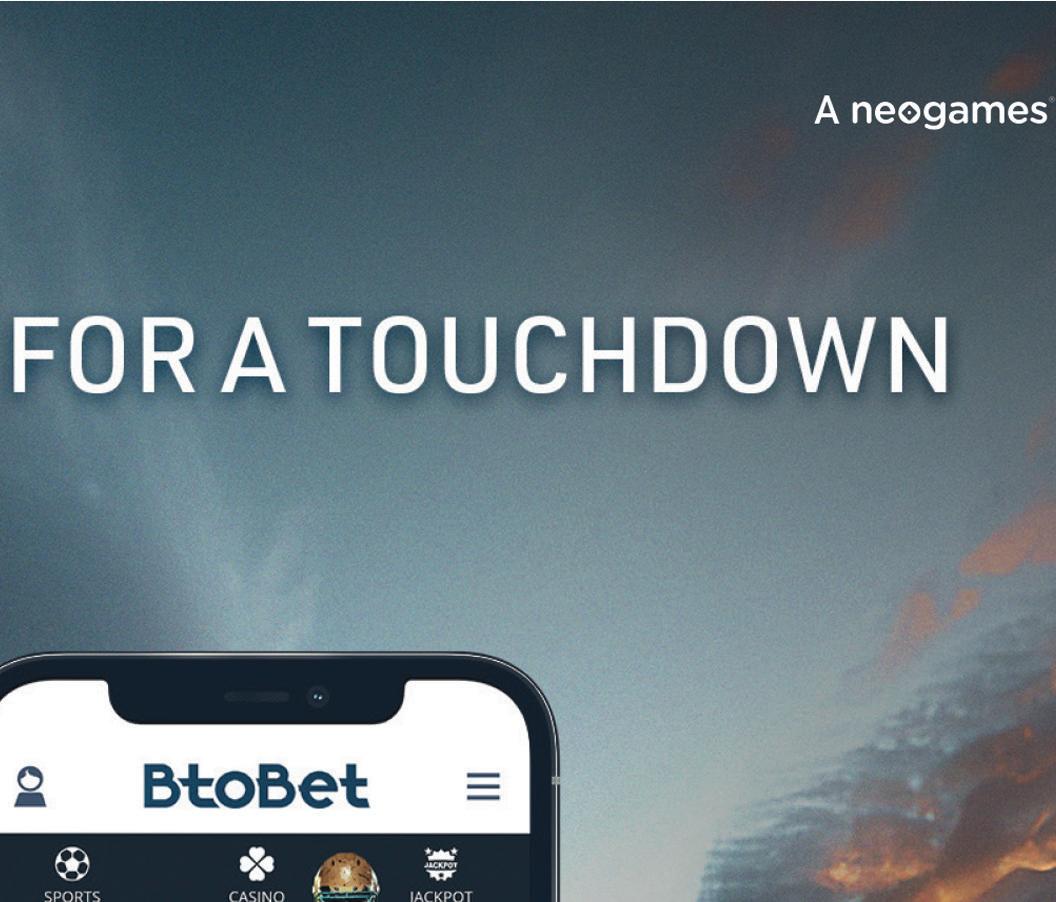
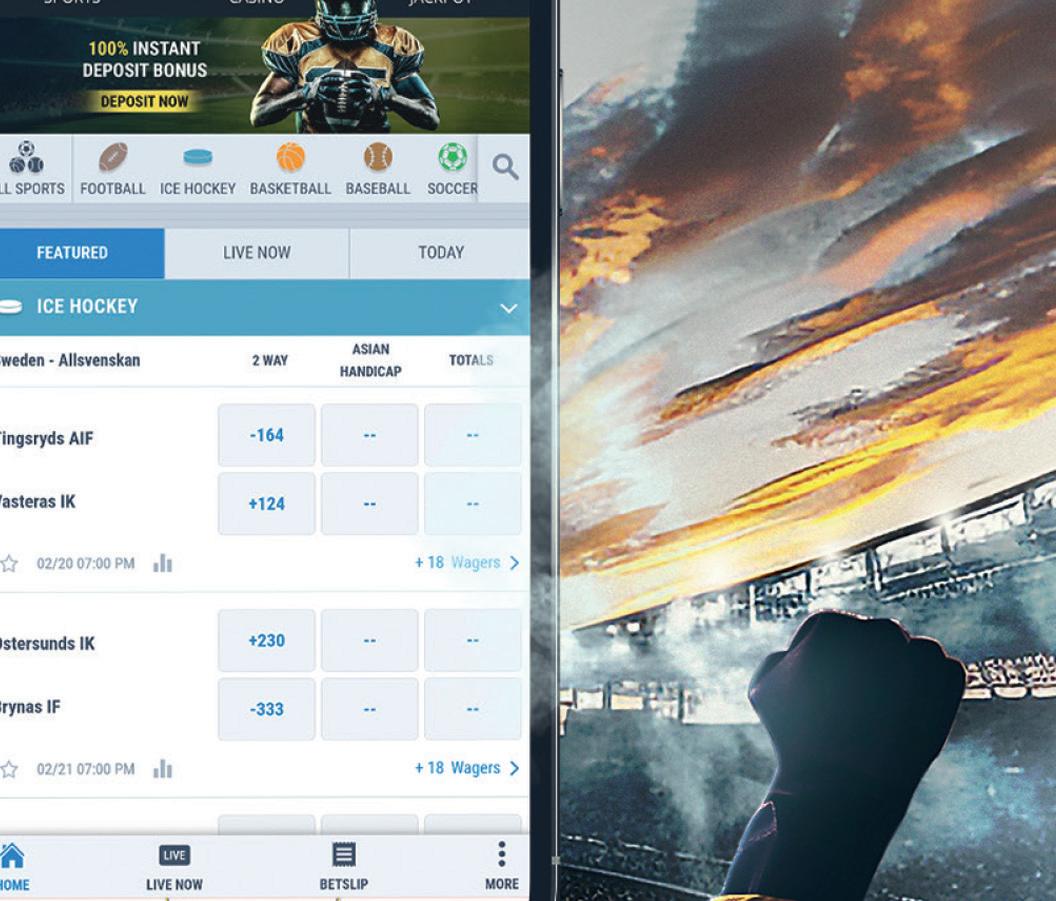
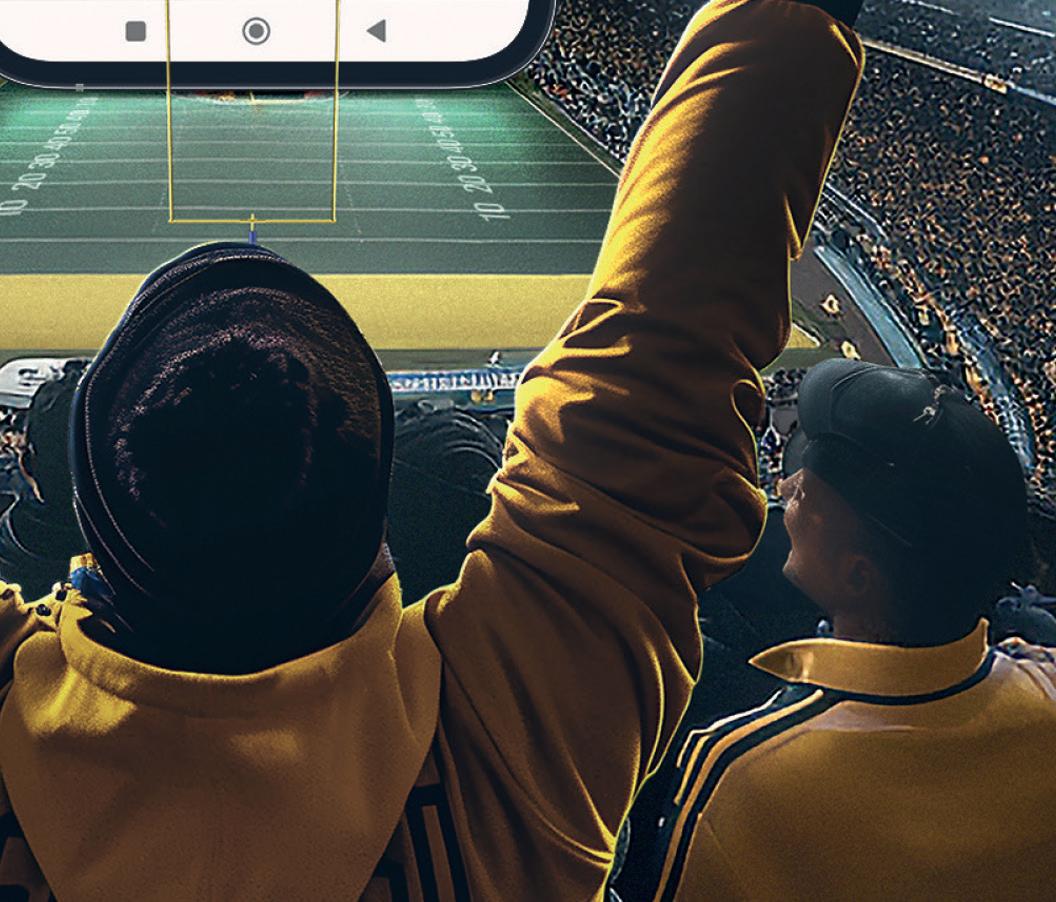

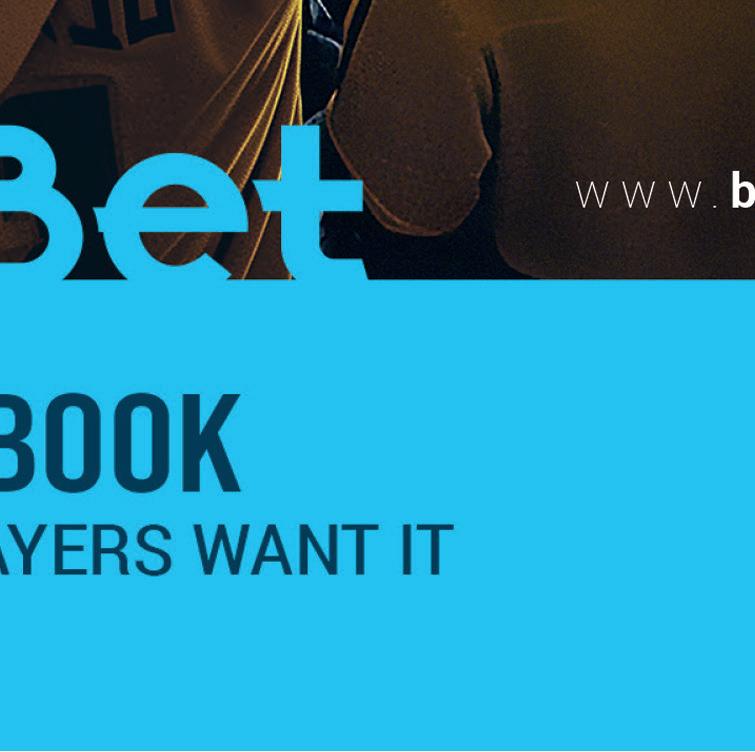







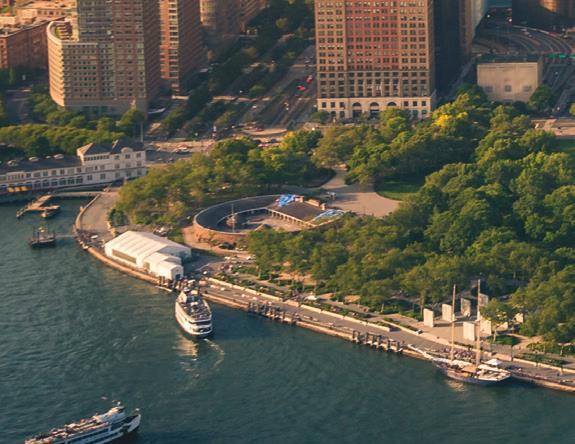










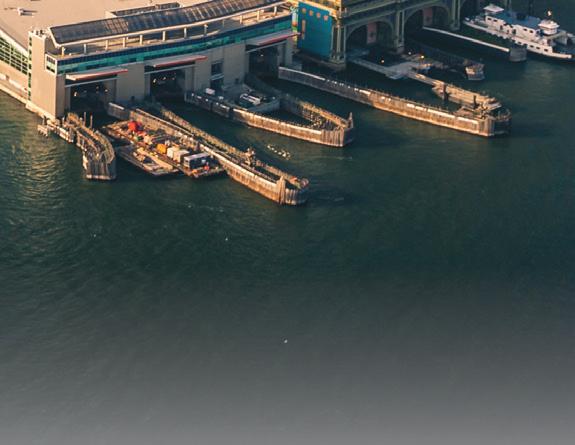
EMPIRE STATE GOES FOR IGAMING


New York State Senator Joseph P. Addabbo spoke with Gaming America when he re-introduced legislation to authorize iGaming.
The budget has since moved forward without iGaming in the Big Apple, but hope remains for next year.
You recently introduced SB 8185 to legalize online casinos in New York. This proposal is very similar to SB 8412, which you introduced a couple of years ago, but it didn’t move forward. Why did you re-introduce this legislation? Why did you think the outcome might be different?
Number one, it is a little different in the sense that it’s iGaming and iLottery,
which is basically an $11m funding for problem gaming programs. It’s a $25m fund to protect the workforce at our brick and mortars because we do not intend for iGaming to cannibalize any brickand-mortar jobs. So there are different elements to it.
The timing of it is such because we have a fiscal situation. According to our state comptroller and even our Governor, the deficits for next year and the following
years only get bigger. I believe next year’s number is $9bn at this point.
So, if we were to do iGaming this year out of necessity we won’t realize revenue until next year anyway. So the idea here was to do it this year legislatively, set up the parameters and the platform, then hopefully realize the benefits. The fact is we understand New Yorkers are already doing iGaming in New York. The problem is they’re doing
24 | GAMINGAMERICA GAMING AMERICA | SECOND SHOT
it illegally and they’re going to other states. So if you really want to help, aside from the fiscal situation of our state, a New Yorker who has a mental issue or a problem gaming issue, you want to do this. Again, all of this is out of necessity. So when you’re regulating in New York you have the opportunity to help a New Yorker who is already participating in iGaming.
Who did you work with in drafting this bill?
As with mobile sports betting, we incorporate the input of many – advocates, operators, other electeds, my legal team. We try to get as much input as possible. And when we put out a bill, it’s a starting point. The idea is it’s a starting point for conversation and negotiations. Hopefully through the months of January, February and March, our budget negotiation periods leading up to an April 1 budget, all that input to the Governor’s office and our leadership will result in a final product we all can be proud of.
Now you had said earlier that the intention of this bill was not to cannibalize existing operators. So does that mean entirely digital operators would not be able to enter the New York market?
Well, speaking of the New York market in terms of actual casino gaming there’s only seven licenses – four currently and we’re deciding on three right now. So there really is only seven maximum gaming licenses for brick and mortar. Of those current four and the future three, our intent was never to cannibalize any of these jobs. My constituents work at Resorts World. Why would I want to cannibalize and have my constituents in jeopardy of losing their jobs? That was never the intent of iGaming.
Online casino actually improves the foundation on which brick and mortars exist. We’ve seen that in New Jersey over the years iGaming has increased as well as the brick-and-mortar business.
So there is a co-existence, but just to
show a willingness to understand the issue we put in a fund of $25m every year to protect the brick-and-mortar jobs. Then we grow the jobs in the industry – they’re union jobs – by creating the live dealer and studio hands in New York State. The bill says a live dealer studio has to be in New York, so New Yorkers can have jobs as live dealers and those live dealer jobs are union jobs.
Now, you mentioned there are some fiscal considerations that were part of this bill. Can you talk about the kind of revenue this bill would generate and how much you project it will help the state of New York?
I always shy away from those questions because I don’t want to overestimate. If we just look at mobile sports betting numbers, we are doing phenomenally well. That is a strong foundation to build upon because you know the iGaming participants outnumber the sports betting participants just by sheer number.
If you’re doing $2bn in revenue in two years with mobile sports betting, you can only figure that number grows exponentially with iGaming. Certainly the potential exists. Analysts have said to me that, between iGaming and iLottery, together it will be about a billion-dollar-a-year industry. Some say more. I just look at what is a fact, and the fact is we have done phenomenally well with mobile sports
betting, which shows New Yorkers have an appetite to game on a laptop or mobile device. Given that appetite, we can grow and build upon that. I like our potential in terms of significant revenue and we’re not just looking at the first year.
This is sustainable, significant revenue that we certainly need going forward. This is revenue we can use in a variety of ways. Traditionally, gaming revenue goes to education but we can certainly shift that to healthcare, transportation, veterans or whatever the need might be in New York. Again, the iGaming issue is not a question of ‘Oh we want to do this.’ You might not want to do iGaming in New York but the necessity is you may need to do iGaming in New York based on the fiscal situation. Not necessarily this year but the growing fiscal situation next year and the following years.
That makes a lot of sense. Now, I’ve heard that an Assembly version of this bill might be introduced. Is that correct?
Yes, I spoke to my good friend Gary Pretlow, Chair of the Racing and Wagering Committee in the Assembly and it’s imminent that they’re going to introduce this bill as well. Gary and I both know this is a starting point. When we introduced our mobile sports betting bill, the final product only included maybe 65% of our language. Mobile sports betting in New York was fashioned after
“I HATE TO BE THE ONE TO REMIND PEOPLE THAT EVERY YEAR WE DON’T LEGALIZE IGAMING IS ANOTHER YEAR WE LOSE MONEY. THAT’S ANOTHER YEAR WE DIDN’T HELP OUR OWN PEOPLE. TO ME, THAT IS AN ISSUE WE CAN EASILY ADDRESS.”
GAMINGAMERICA | 25 SECOND SHOT | GAMING AMERICA
New Hampshire. It’s a different structure than we envisioned and it’s a successful product so I’m not going to question it, but the idea is it was a combination.
Mobile sports betting was a negotiated product, which I’m hoping we can replicate with the Governor, the union and other advocates when we do iGaming. So our bill is just a starting point but other input is going to be very important to the final product.
What sense, if at all, have you gotten of the Governor’s feelings on all of this?
I wish I could answer that. That’s an answer for the Governor. I can only be optimistic and point out the facts. All I can do is try to convince the Governor to work with the union, address their concerns and move forward – maybe not out of want, but out of necessity.
If you’re a governor of any state you want to protect your residents. You don’t want to have revenue leave your state. Every year, we lose about a billion dollars. So every year we don’t do iGaming means we lose about a billion dollars to New Jersey, Pennsylvania, Connecticut and the illegal market. That’s another year we can’t help our own people with a mental health issue or a problem gaming issue. I’m optimistic and I can only present the facts. We’re not getting help from the Federal Government anymore so we need to find our own revenue. We have a big deficit this year and we want to help our residents.
In the end, you’re right: it’s the Governor’s decision. I hate to be the one to remind people that every year we don’t legalize iGaming is another year we lose money. That’s another year we didn’t help our own people. To me, that is an issue we can easily address.
You’ve mentioned several times in this conversation mobile sports betting in New York. As the Chairman of the Senate Committee
on Racing, Gaming and Wagering you played a big role in that legislation. How do you think it’s gone so far?
I’d say rather well. I always knew New York had this potential. We’re looked at globally as maybe the sports capital of the world sometimes. We have headquarters in New York of major leagues. That first weekend in January 2022 it starts off but we only have four operators. Just four. Out of the gate we broke national records for the first weekend. Then over the next two years we start breaking more national records for monthly handle amounts.
I appreciate the work of the gaming commission and the operators. We offer a top-shelf product to New Yorkers but here’s what I’m really fascinated by: New Yorkers were already doing mobile sports betting before we regulated it. They were going to Jersey and they were going up to Connecticut. New Yorkers are smart. They’re so savvy that if we didn’t have a great product they would go back to the illegal route or other states in a millisecond. However, we have retained these New Yorkers in a safe environment.
I’m really proud of the product and it is successful. A total of $2bn in revenue for education is great. I love the fact that it’s so successful because we have changed a person’s pattern. They were doing it other ways, but now we have got them to stay with us. That shows the true success of our product, in my opinion. New Yorkers are savvy; they know their sports, they know their players. I do believe it’s helped the sport and more people are in tune with particular player stats. I’m proud of the product, I really am.
That’s awesome. Before we go, what else do you have planned legislatively for New York’s gambling sector in 2024?














































































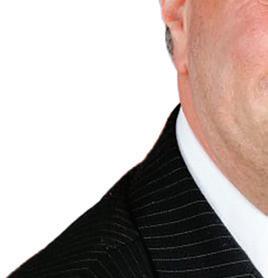
















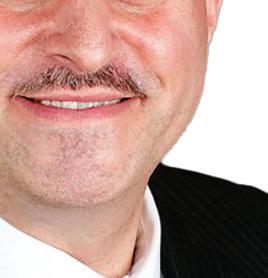



JOSEPH P. ADDABBO
New York State Senate
Chairman of Committee on Racing, Gaming and Wagering
Great question. As legislators, we never sit back and say, ‘Oh, we did mobile sports betting. It’s one of the number one products in the country. We’re done.’ No. This is one of the most competitive markets. We need to figure out how to make mobile sports betting even better for New Yorkers. One thing I’d like to propose is proposition betting. Right now in New York, you can’t bet on who’s going to be rookie of the year or who’s going to be the most valuable player. I want to incorporate that. I want to figure out a way to make horseracing seamless into the mobile sports betting arena. I think that we can do that better.
So, there are other ways of improving mobile sports betting. Even though we have a successful product, there are ways to improve it for New Yorkers. That’s something I’d like to bring up during the budget process as well.
I wish one of the New York teams had a good rookie you guys could wager on this year.
[Laughs] As a Mets fan I am always optimistic around March or April. Then by September I’m kind of in the dumps but hope springs eternal. You never know. Maybe one day. Again, to give New Yorkers the opportunity to make that bet, where other states are already doing it, provides New Yorkers with a better product.
26 | GAMINGAMERICA GAMING AMERICA | SECOND SHOT



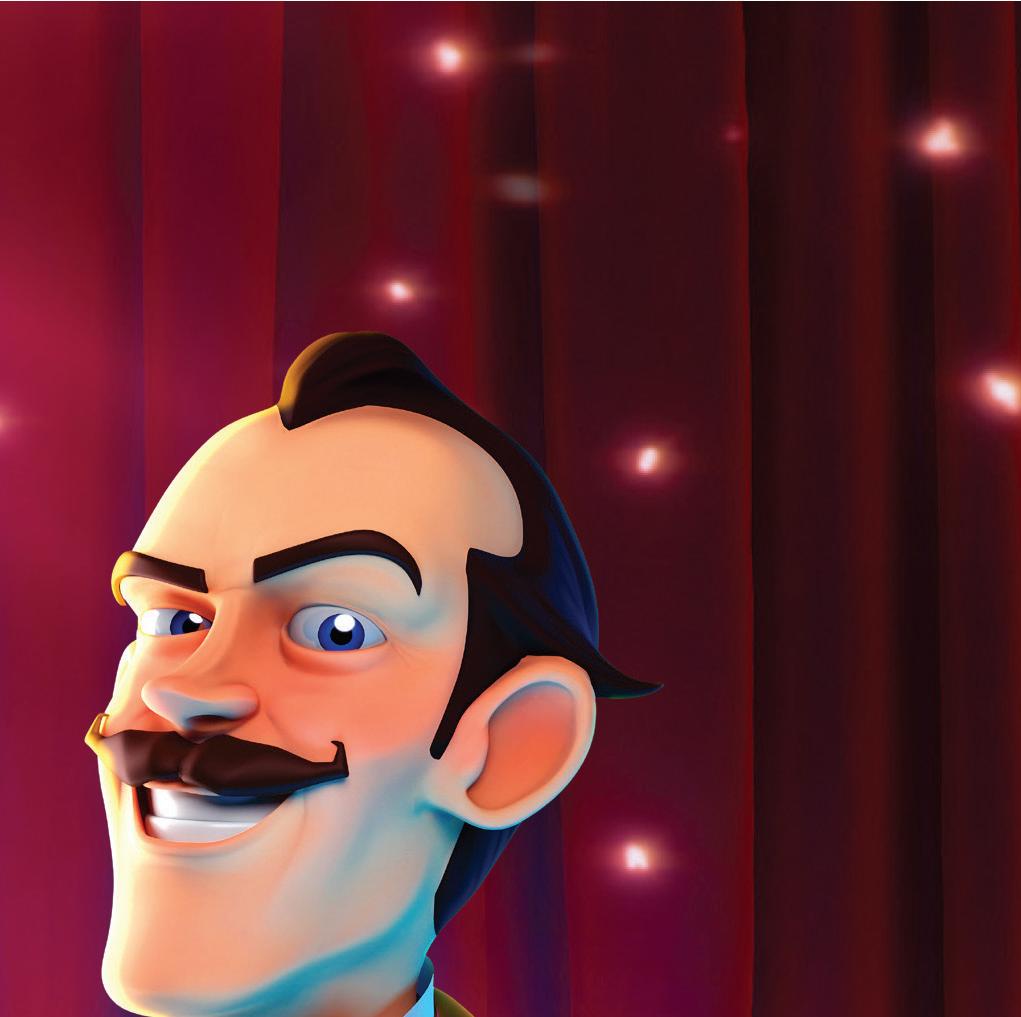
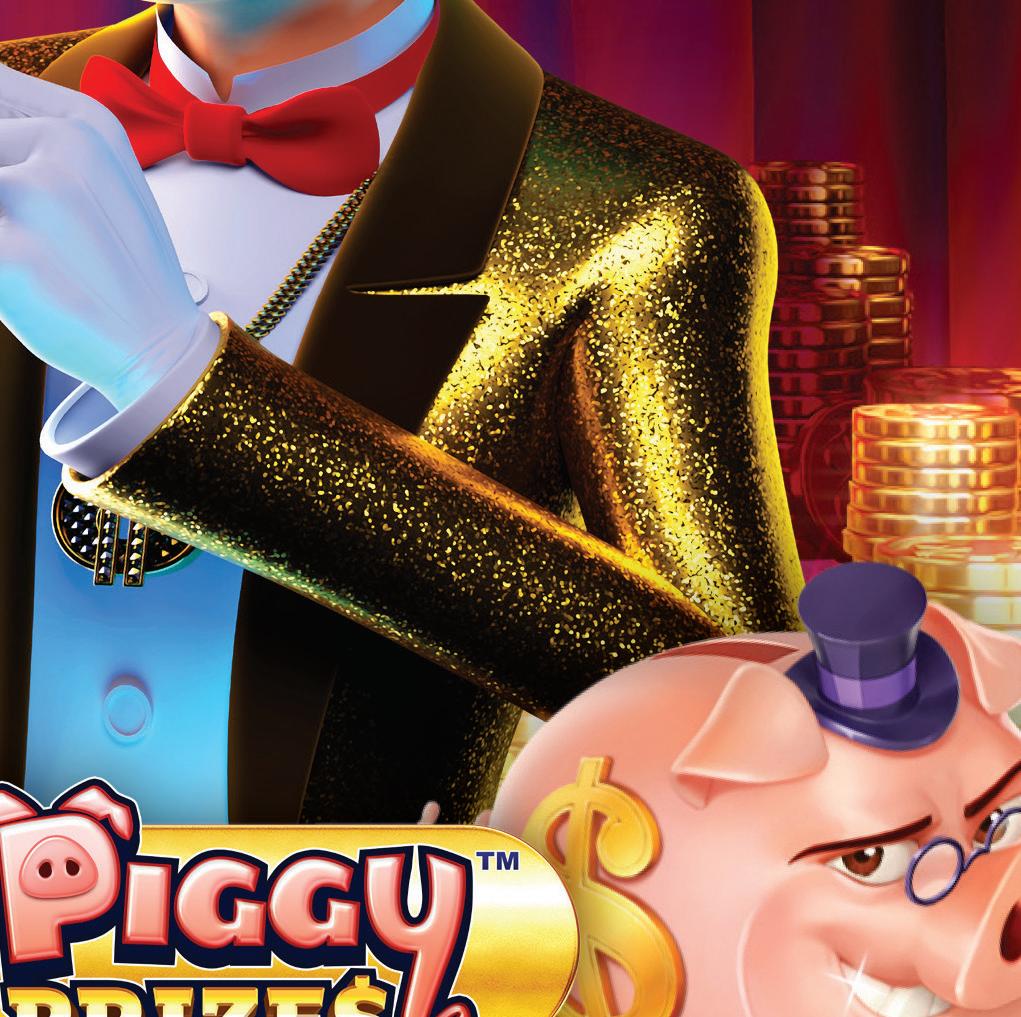





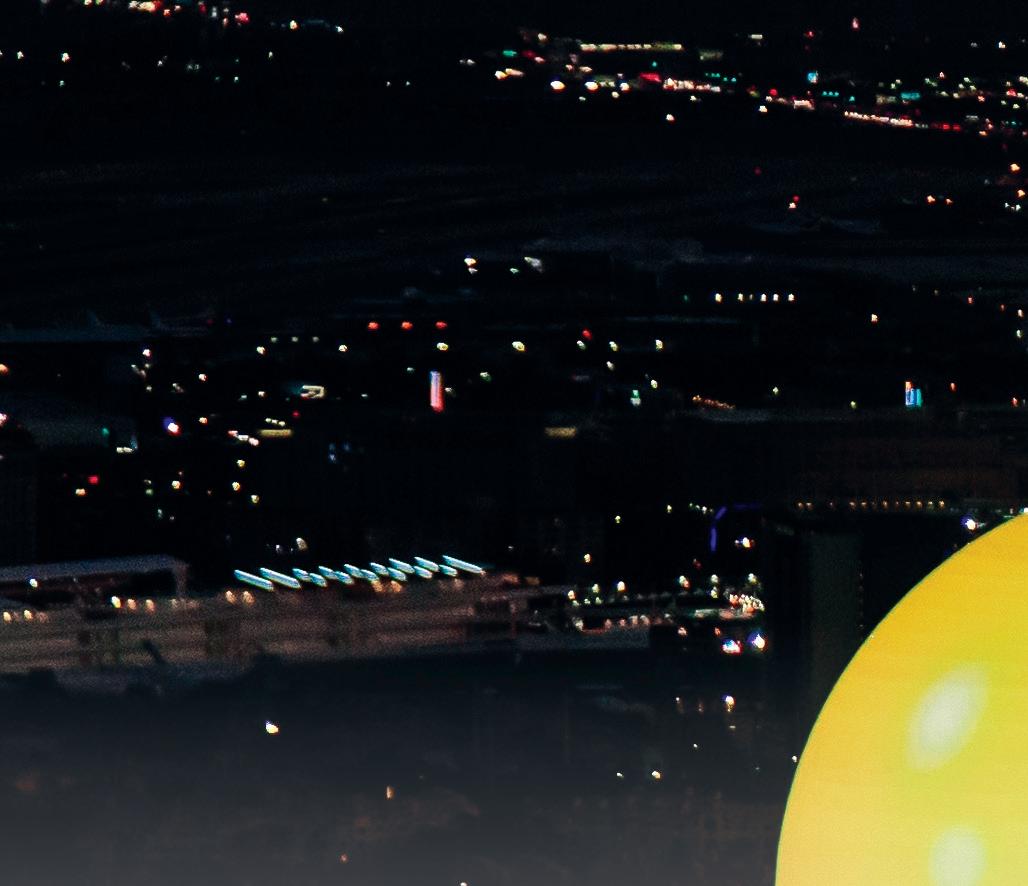



WHAT’S NEW IN LAS VEGAS AND THE SPHERE?
Gaming America has put together a list of what is coming to the Sphere during the spring and summer, along with some tips and tricks to make the most out of your Las Vegas visit.
During the past few months, the nighttime Las Vegas view has been a tad brighter with the addition of the Sphere. The Sphere stands 366 feet tall and is 516 feet wide. The dome’s exterior is covered with 580,000 square feet of fully programmable LED panels. The venue opened last September and has since welcomed U2 as its headlining act throughout the fall and winter.
Prior to coming to the Sphere, U2 had not performed live since 2019. Band members Bono, The Edge and Adam Clayton commented on U2’s return to the stage and noted that this was long overdue. They said, “U2 hasn’t played live since December 2019, and we need to get on stage and see the faces of our fans again. We’re the right band, Achtung Baby the right album and Sphere the right venue to take the live experience of music
to the next level. Sphere is more than just a venue, it’s a gallery, and U2’s music is going to be over the walls.”
Increasing fan demand extended the band’s U2:UV Achtung Baby Live At Sphere tour into this year. The tour sold-out nine shows following its debut, prompting the band to add more dates to the line-up. The band played another three shows at the end of January and eight more during the month of February. The tour, which was scheduled to wrap up after 36 performances, extended its run by another four nights. U2 added two more shows in February and two during the beginning of March. But even after U2 finishes its Vegas run, the party does not have to end at the Sphere.
Gaming America recently made a few stops in Sin City, and we have created a list of what to do at this new venue in the
coming months. Guests of nearly all ages can sit in on a documentary that includes nature and science fiction with Postcard From Earth, which features the Sphere’s technology and visual effects. Postcard From Earth is open to the public and is part of the ongoing The Sphere Experience. The event is tailored for visitors aged 6 and older.
Postcard From Earth lasts 50 minutes and is filmed in 18K resolution. The multi-sensory film is half of the two-part experience, along with an hour-long interactive session that allows patrons to view holographic art installations and chat with interactive robots. The Sphere explained what visitors can experience with this program on its website. Representatives of the veue said, “The Sphere Experience starts with Aura, our real-life humanoid
28 | GAMINGAMERICA
GAMING AMERICA | WHAT'S NEW
robot, who will take you on a tour into the future of technology. The Experience continues with a specially commissioned film by acclaimed director, Darren Aronofsky.Part sci-fi story, part nature documentary, Postcard From Earth takes advantage of all Sphere’s experiential technologies to make you feel like you’re anywhere but Las Vegas.”
If you are looking for live music and love American rock, Phish will begin a series of shows at the Sphere starting April 18. The band will play a four-show run from April 18 to April 21. The band is known for never playing the same set twice, a tradition that will continue during its run at the Sphere. The upcoming show will offer Phish fans a new set list, as well as new visuals across the venue’s LED surface. The band said, “From the moment we first heard about Sphere and its potential, we’ve been dreaming up ways to bring our show to this breathtaking canvas. We’re thrilled to present this completely unique experience to Phish fans.”
For those looking to visit Vegas during the early summer months, the Sphere will feature Dead & Company Dead Forever. The band will begin its residency on May 16 and will play 24 shows until July 13. General seating is available for these events, but the Sphere also offers VIP suites and private seating. The venue has a seating capacity of more than 17,000.
Unfortunately, parking space near the Sphere is limited. According to venue representatives, the Sphere has nearly 200 parking spaces available on site.
But we have some tips and options for parking if you’re planning on attending a Sphere event. First, the Sphere has rideshare, taxi drop-off and pick-up space right in front of the destination. Rather than spending time navigating through traffic to grab a place to park, taking a cab or using a rideshare can save you that time and stress.
If you live within a reasonable driving distance from Las Vegas and need to find a parking space, the Sphere is close to
several parking garages if you don’t mind a short walk. The odds of finding a place to park are much higher if you opt for parking in one of the garages near Wynn, The Venetian or the Palazzo. For Nevada residents, The Venetian offers three hours of complementary self-parking, a program the resort started last fall. To be eligible for this service, you would need to scan a valid Nevada driver’s license at one of the Palazzo or Venetian self-parking kiosks.
And if you’re from out of town and are staying at The Venetian or Palazzo, you have the advantage of easy access to the venue without having to go outside. A covered pedestrian walkway above Koval Lane connects The Venetian to the Sphere’s plaza entry.
The Sphere also offers valet parking. Because the Sphere is connected to The Venetian, we recommend getting a bite to eat at this resort. Eating close
to the venue will not only save you transportation dollars, but you will have the chance to check out the stunning décor the renaissance-style casino resort has to offer. The Venetian offers a variety of dining choices no matter the time of day and what your budget allows. While visiting, getting a meal for as low as $15 to $20 is not a challenge. If you are looking for a place to sit down or options for fine dining, the casino hotel offers plenty of that, too.
Prior to its construction, architects and artists traveled to Venice, Italy to seek inspiration for the Renaissance-style destination. Construction was completed on the resort in 1999. The Venetian Resort recently released details on plans to update its convention center. The company said the renovation of its meeting space will be “completed in stages between 2024 to 2026." Plenty to look forward to.

GAMINGAMERICA | 29 WHAT'S
| GAMING AMERICA
The Venetian Las Vegas
NEW









MARYLAND: TO BE OR NOT TO BE

As many US states move forward with bringing legal online and retail sports betting to their residents, the decision to expand gambling to include iGaming brings with it questions and concerns.
Lawmakers in Maryland are currently considering the pros and cons of allowing a commercial iGaming market. Online gaming has been on the radar in the state of Maryland for the past several months. With the topic of possible iGaming legalization on the table, the Maryland Lottery and Gaming Control Agency has studied the effect online gaming could have on the state. State Senator Ron Watson recently put together a bill that would legalize online gaming, as well as poker.
Should Watson’s latest bill pass in the legislature, online gaming revenue would be taxed 46.5%. The state currently brings in revenue from Maryland’s six casinos, as well as from fantasy sports and statewide sports betting. But this is not the first time iGaming has been up for debate in Maryland. Senator Watson proposed a similar bill last year to implement an online commercial market.
However, the Senate Budget and Taxation Committee did not move forward with the
proposal. Retail sports betting has been legal in the state of Maryland since 2021. The state opened its online sports wagering market in 2022. So, why delay expanding the state’s gambling options to include iGaming and iLottery choices? Opponents say bringing iGaming onto the scene could pose a threat to workers in land-based casinos and put their jobs in jeopardy.
DO LAWMAKERS’ OBJECTIONS HAVE MERIT? SOME ANALYSTS SAY YES
In a 2021 study conducted by Deutsche Bank that looked at iGaming’s effects in Pennsylvania, research showed a decline in revenue at brick-and-mortar casinos that coincided with the launch of the state’s online gaming market. According to the report, land-based casino revenue during March 2021 fell by 12%. Revenue in April rose by 1% but dropped by 3% during the month of May.

During those months, several new landbased casinos opened in the Philadelphia area, yet there was a decrease in activity. Based on its findings, Deutsche Bank analysts noted that “Pennsylvania should take into account that land-based casino revenue was dropping due to the fact that iGaming was eating into its market share.” Analysts based their conclusions on comparing Pennsylvania’s results to productivity in other states with legal land-based casinos.
However, they recognized the affects that the Covid-19 pandemic had on the market and on the economy at large during the time of the study. Another study highlighted survey data that reflected a boost in online gaming activity. The Pennsylvania Department of Drug and Alcohol Programs published a survey in connection with Pennsylvania State University during 2021. According to the report, nearly one in 10 residents participated in online gaming. The survey also found that 28%












30 | GAMINGAMERICA
GAMING AMERICA | MOBILE GAMING


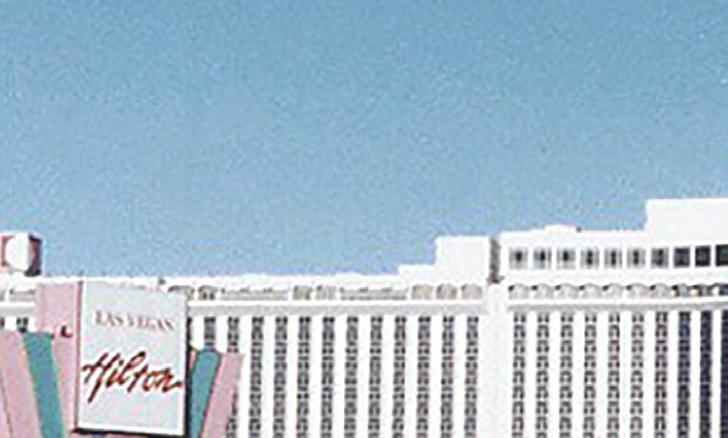




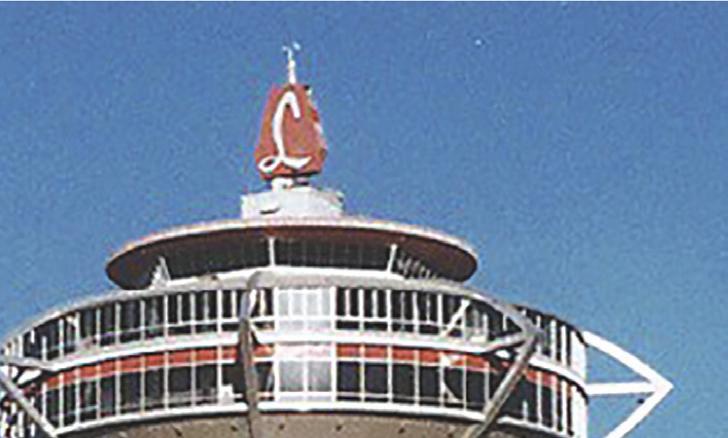



A FORGOTTEN LANDMARK
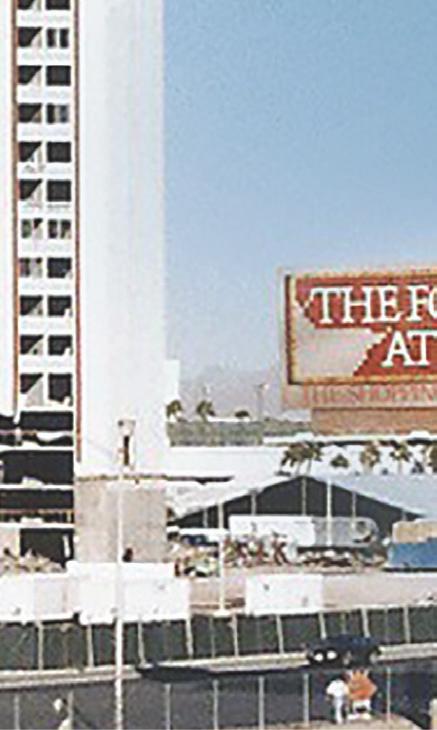

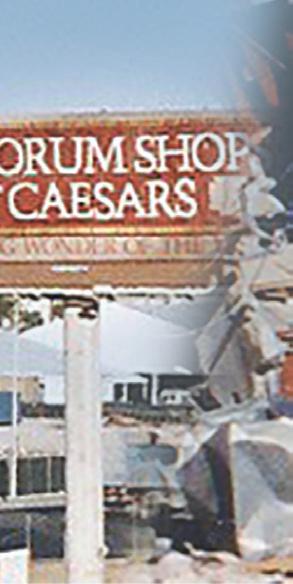
A concrete-paved, surface parking lot in the shadow of the sprawling Las Vegas Convention Center is all that is left of one of the most unconventional and ambitious casinos ever built in Las Vegas. Gaming America regular Oliver Lovat reflects with his trademark precision.
Even by the city’s standards for implosion and renewal, The Landmark’s 21-year run was short and barely touched the wider cultural resonance of other “Golden Age” Las Vegas icons. Today, The Landmark’s location is marked by a newly restored neon sign, serving as a footnote in the evolution of the city. But it is more than that. The Landmark’s experience offers vital but often-forgotten lessons for those in casino management, operations and development.
TOWERING TROUBLES
The full story of The Landmark is told in Marc Wagner’s superbly illustrated paean, “Above Them All,” which for those interested in a detailed historical narrative of the property is essential reading. Wagner traces the origins of the property to Kansas City Contractor, Frank Caroll (anglicized from Caracciolo). Caroll’s wife Sue was a niece of Kansas City mobster, Joe DiGiovanni.
In 1960, as he sought funding for his project, Caroll and his partner, Sheldon
Sandler, acquired a plot opposite the newly constructed Las Vegas Convention Center and built a typical low-rise apartment complex and strip-mall, with plans to build an architectural novelty; a resort with a “sky” level casino and entertainment complex atop a 328ft, 31-story tower. It was to be the tallest building in Nevada.
Caroll broke ground on September 6 1961, with an expected opening date of November 1962; but he was to encounter two problems. Firstly, the steel used for
32 | GAMINGAMERICA GAMING AMERICA | LANDMARK HOTEL
Before: The historic Landmark Hotel









construction would not support the domed structure and, more crucially, Caroll was running out of money. By 1963, he was out of funds and construction came to a halt; The Landmark’ silent concrete shell dominated the Las Vegas skyline. A total of $5m had been spent on construction, as the property fell into foreclosure and ensuing litigation. At a time when casino financing was still at its most rudimentary stage, the property was saved by The Teamsters’ Pension fund. The Teamsters’ investments in other Las Vegas casinos had thus far proved fruitful in growing the city and a $5.5m loan to complete the construction seemed like a good investment.
The original low-rise development was demolished to enhance the surface footprint of the resort, lenders and suppliers vented concerns over unpaid bills, and Caroll continued his protracted licensing application. As 1967 became 1968, The Landmark was not yet open and heaping the pressure on Caroll was Kirk Kerkorian’s new 1,000 room International Hotel, taking shape just yards from his front door. The
property was in trouble again.

In what seems a highly irrational move, and one that only makes sense in a show of one-upmanship against Kerkorian, Howard Hughes offered to buy the bankrupt, unopened Landmark. For $17.3m, Hughes added The Landmark to his portfolio consisting of the Desert Inn, The Sands, The Frontier and The Silver Slipper, all of which he could see from the hotel suite that he did not leave during his Vegas sojourn. Investing a further $3m, Hughes' licensing was straightforward and, as promised, on Tuesday July 1 1969, The Landmark opened, one day before Kerkorian’s property.
INSIDE THE LANDMARK
Hughes’ longtime executive, Bob Maheu, took control of operating the resort. Unlike established properties in the market, The Landmark was radically different, still based on the concepts laid out by Caroll, nearly a decade previously. Wagner writes, “The tower consisted of 29 total floors as there was no 13th or 28th. The ground floor contained the casino cage,




elevator lobby and the Landmark Jewelry shop. Offices for security and accounting occupied the 2nd and 3rd floors. Guest rooms ran up the remaining floors of the octagon shaped column, floors 4 through 25. The 26th floor, in the lower part of the dome, was a maintenance level and equipment storage. Floor 27 housed a cocktail lounge called Club 27 and two restaurants. A golden spiral staircase connected the 27th to the 29th which a 3,000 sq ft casino, a restaurant bar and showroom occupied. Above that, in the upper portions of the dome, which has the dressing rooms for the performers and a catwalk that overlooked the casino. The Skybar took up the entire 31st floor where a bar, stage and dancefloor offered a 360-degree view of the city.”
Revenues at the property were highly volatile, with monthly losses more regular than profits. Despite ongoing innovations, such as focusing on Country music and bringing the first “discotheque” style nightclub to within a casino, the property sat in the
GAMINGAMERICA | 33 LANDMARK HOTEL | GAMING AMERICA
After: The Landmark Hotel following its historic implosion
Elvis-shaped shadow of its neighbor. After Hughes’ death, the property was retained by Summa Corp, which after dealing with leaks, fires and operating challenges costing up to $500,000 per month, exited the property to Ted and Zula Wolfram’s Mark III consortium for $12.5m in 1978.
Perhaps the Wolframs' most consequential decision for The Landmark was hiring attorney Jeff Silver as General Counsel and latterly Chief Operating Officer. Silver assembled a team, including a young Bill Hornbuckle from the Flamingo as hotel manager. “Everything that could be wrong at a property was wrong at The Landmark.” recalled Silver.
“An example was that the thickness of the Sheetrock walls on the lower floors was half an inch, whereas the upper floors only had a quarter inch. Consequently, when the elevator moved up and down in this 'concrete piston,' a roaring whistling noise would occur as the air pressure was forced through the closed elevator doors on each floor as it passed. Some mornings I would hear the guests in the elevator comment to each other that they didn’t realize that Vegas was so windy at night. The casino on the top floor was abandoned because the elevator capacity was too small to allow
large crowds egress after shows. There were only three elevators inside the building and a glass elevator outside the cement structure, which went from the main floor directly to the top.”
The new owners invested in the property, bringing in an expansive entertainment offering by Faye Todd and launched a largescale development plan, including 750 new rooms. Despite not yet turning a profit, The Landmark was preparing to be a challenger in 1980s Las Vegas. Could it be that the cash-rich Wolframs were the right owners, at the right time, to finally to make the Landmark a success?
... Of course not. Ted Wolfram’s fraudulent past was catching up with him; he was found to have misappropriated millions of dollars in his wider businesses, including the funds used to acquire The Landmark. The Wolframs were out, Ted was sentenced to 20 years in prison; and the property was put in the hands of the Securities Investor Protection Corporation (SIPC, the first time a casino had been delegated to Federal Agency), with the respected Silver as trustee, charged with responsibility of meeting payroll and operating the asset.
“We were firefighting from day one, and we were very lucky to keep the property open. It was made clear to
“THE IMPLOSION IS A SCENE IMMORTALIZED IN TIM BURTON'S MARS ATTACKS!, DIGITALLY ENHANCED TO FEATURE INVADING ALIENS DESTROYING A LAS VEGAS CASINO. PERHAPS THE LANDMARK'S CINEMATIC DEMISE WAS MORE IMPACTFUL THAN ANYTHING IT ACHIEVED WHILE OPERATING.”
me by the SIPC that if the property required additional funds, there would be none and the doors would simply close with the loss of over 700 jobs. Our team worked tirelessly to make sure we kept our head above water. I occasionally hear from former Landmark employees who appreciated our efforts,” recalled Silver. “Immediately we sought to cut the Wolfram’s costs, especially the excessive entertainment. We cut unnecessary expenses and implemented innovative strategies to improve revenue, including a $50,000 Jackpot on our Nickel Slots. We turned it around, just, but everyday there were new challenges and problems.”
Under the leadership of Silver, The Landmark, for the first and only time, turned a profit. It was this newfound success that brought William “Wildcat” Morris, an old-school Nevada attorney, and part-owner of The Strip’s Holiday Casino, to The Landmark. He transacted the asset in October 1983 for $18.4m. Bill Morris believed The Landmark had turned the corner and with new debt raised, implemented many of Silver’s suggested modifications: most notably new entrances, the striking red exterior lighting and color, and the introduction of The Landmark’s red shining logo on the top of the tower. Maybe this time the “New Landmark” was going to get it right.
However, after Silver’s departure to the Riviera, Morris’ grand plans fell victim to the loss of financial discipline imposed during the SIPC administration, and the systemic crises facing Las Vegas; increased competition from Atlantic City, the wider economic malaise and the fallout from the MGM and Hilton fires, the latter necessitating significant structural works to bringing legacy properties in line with the new fire code.
The struggling Landmark again found itself challenged to meet its financial and legal obligations, and despite continuing a highly progressive operating strategy, featuring new shows and introducing an early loyalty program, met the 1990s
34 | GAMINGAMERICA GAMING AMERICA | LANDMARK HOTEL
with another, final bankruptcy. The property’s debt was estimated at over $48m. No suitable buyer could be identified and, on August 8 1990, the expanded 498-room Landmark’s doors were closed, never to reopen. Las Vegas had changed. Gone were the pleasure-seeking gamblers of the atomic age; this was now the time of 3,000-room megaresorts, providing spectacle at weekends and conventions midweek.
Silver prompted the LVCVA to acquire the site, as it was evident that the everexpanding Convention Center would require further space in the future and, despite a required demolition, The Landmark plot was well located. On November 7 1995, the now 338ft Landmark structure was imploded, a scene immortalized in Tim Burton’s Mars Attacks!, digitally enhanced to feature invading aliens destroying a Las Vegas casino. Perhaps the Landmark’s cinematic demise was more impactful than anything it achieved while operating.
A LANDMARK EXPERIENCE
Based on Oscar Wilde’s dictum, “Experience is the name everyone gives to their mistakes,” there are a lot of experiences The Landmark offers to us today. From the outset, selecting location is of the highest importance. Although Caroll (and Kerkorian later) saw the attraction of developing adjacent to the new Convention Center, this was away from the established tourist center. Moreover, when seeking to attract convention customers to the property, unlike at Kerkorian’s International, the programming and amenities were not aligned with this customer at The Landmark, certainly in the initial incarnation of the property.
The concrete husk of The Landmark dominated the Las Vegas skyline for nearly a decade, a symbol to all, of a stalled hope during a challenging period. Not unique in the history of the city, and certainly not a terminal impediment, but in order to reshape customer preconceptions, the property needed to open strong. It didn’t, and the
challenges to perception remained for years.
While architecturally striking, casino architecture alone only has purpose to convey what goes on inside to the intended customer. The LA-based architects were not experienced with casinos or gaming customers, and Caroll deliberately wanted his resort to be “different” from the rest of the market. It may be reasonable to compare Caroll to Caesars Palace’s Jay Sarno as visionary entrepreneurs, but Caroll’s understanding of customer psychology and the gaming industry was significantly inferior.
It was a clear mistake to build a casino and the majority of programming on the upper levels of the resort, one that others have subsequently also failed to heed. Although few private gaming rooms exist on upper levels, these tend to be for select customers and, when tried, the concept of sky-casinos has repeatedly fallen short. Indeed, the success of any non-ground level amenities has been highly limited.
Under Hughes’ brief ownership, there was no discernable differentiation from his other properties, other than architecture. Under both a corporate portfolio ownership and later under private ownership, the question remains, why would the customer go, repeatedly, to The Landmark? Catering for a customer segment and capturing their











loyalty is at the strategic heart of casino operations. As noted, tactical moves were made, but like many aspects of casino operations, these were emulated and bettered. The most successful period of the resort was the early 1980s, when there was a clear position, being a value offering for convention customers – a clear customer and a clear proposition.
But perhaps the most fundamental, most basic mistake made with The Landmark was the business model. The property was conceived with 148 rooms, although more were added later. Paired with the high operating costs associated with the structure, little passing footfall and limited revenue potential, even conceptually, The Landmark was not viable, from first to last. It was a project based on Caroll’s dreams; but for him, and every subsequent owner, it became a nightmare. Multiple times in the story of The Landmark, the promise of what it could be did not align with thefundamentals of the business.
Ultimately, those of us that work in the development of casino resorts know we are selling fantasy, spectacle and escapism, but there needs to be a hardheaded analysis of the economics and finances for development and operations of these resorts.



























































































 OLIVER LOVAT Denstone Group CEO
OLIVER LOVAT Denstone Group CEO
The mistakes of The Landmark are there for all to see and its importance in the panoply of failed Las Vegas casinos is near the top, due to the multitude of mistakes, or should we say, “learnable experiences.” To those standing in the Las Vegas Convention Center Gold Parking Lot, it is easy to forget that The Landmark ever existed; but we should not forget it, lest the same costly mistakes will be repeated again.
Oliver Lovat is the CEO of The Denstone Group, that offers strategic consultancy in resort development. He was faculty at City, University of London between 2012-2020 and University College of Estate Management 2010-2015. His research topics are Las Vegas Customer Behavior and The Evolution of Competitive Strategy Within Las Vegas Casino Resorts.
LANDMARK HOTEL | GAMING AMERICA GAMINGAMERICA | 35
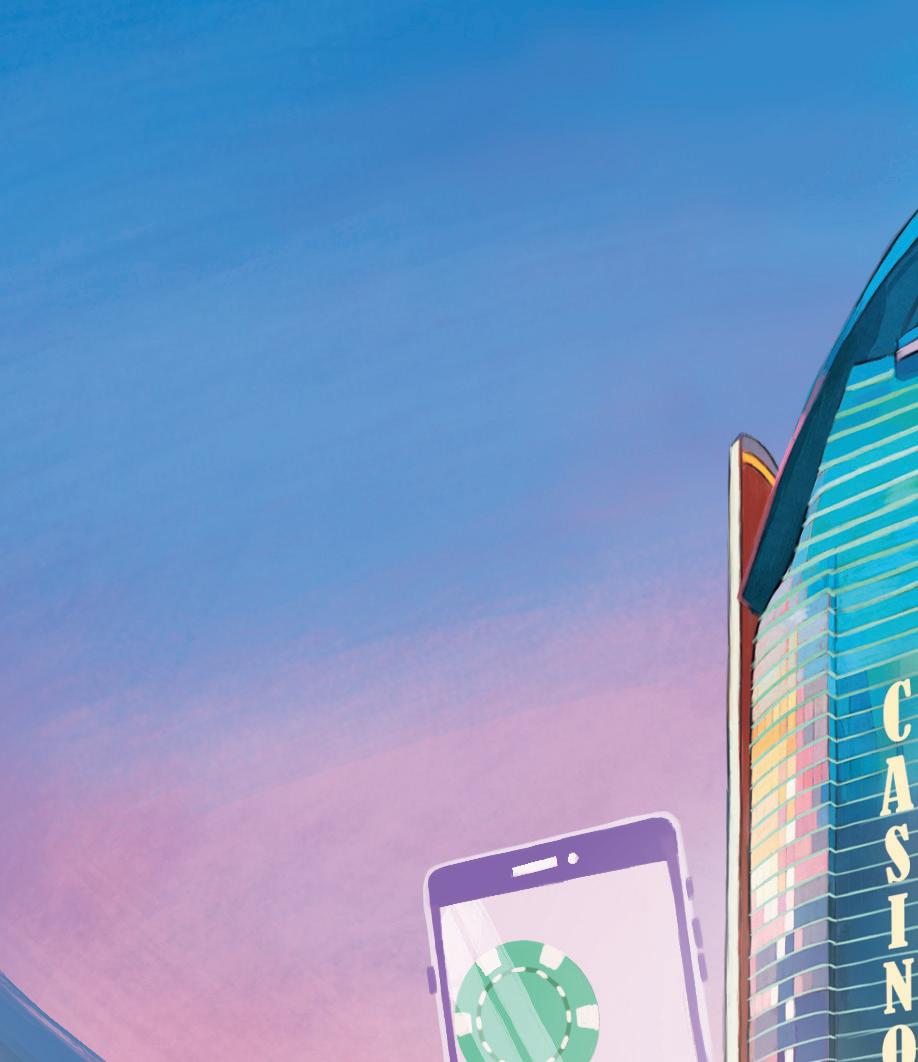



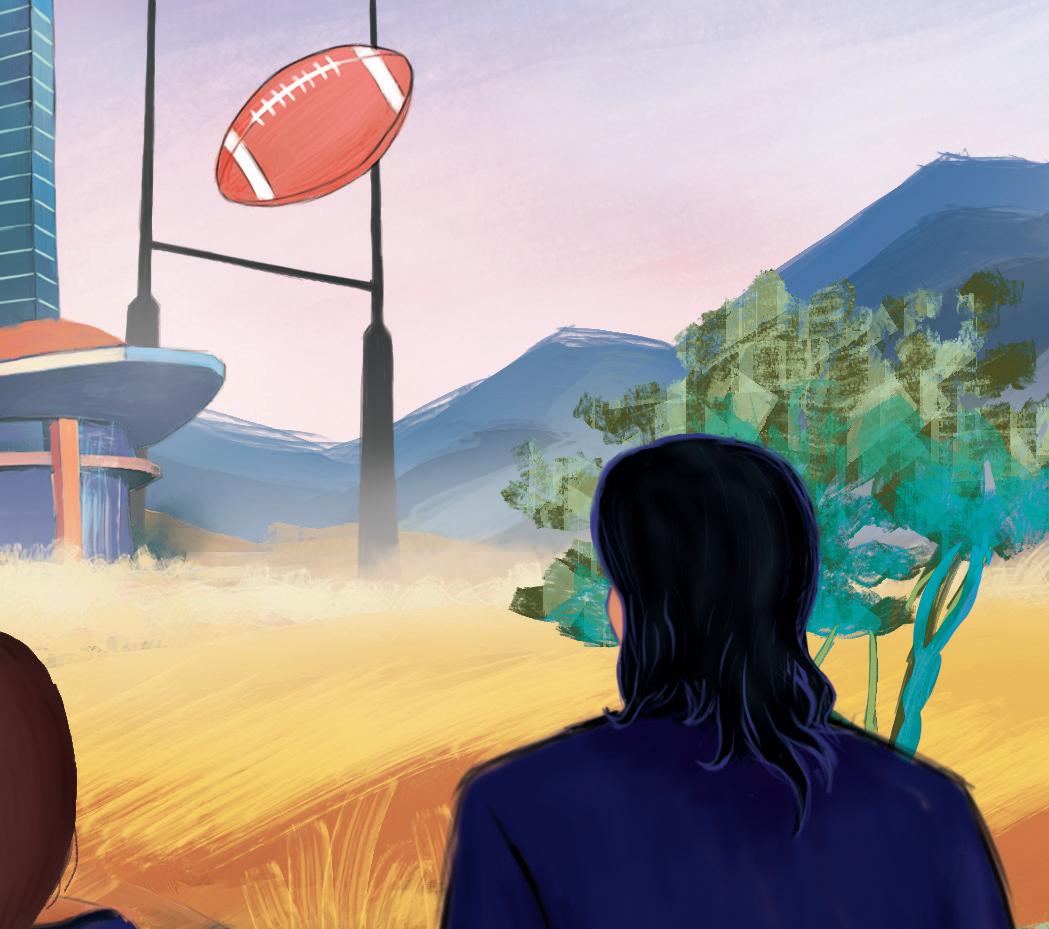
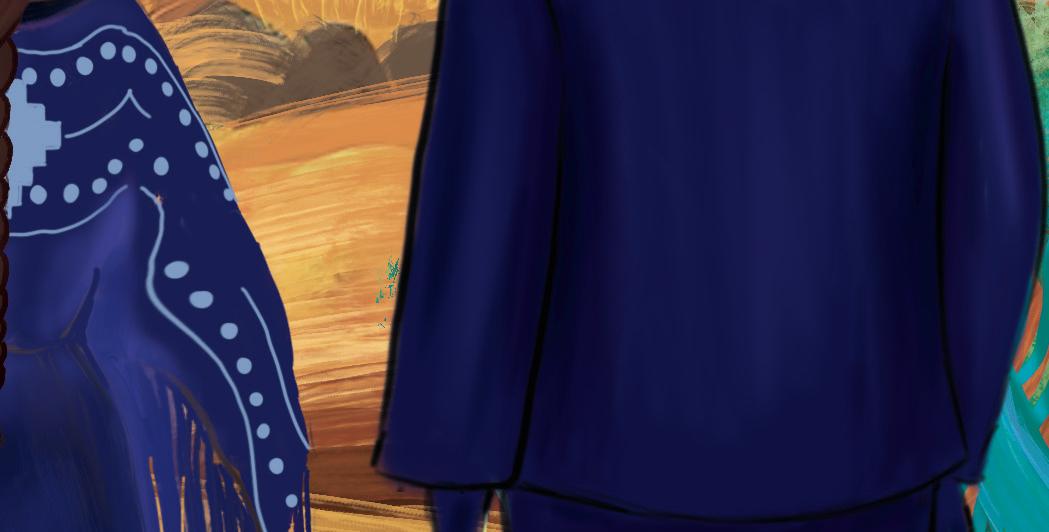

TRIBAL OUTLOOK
In our Tribal Outlook section, we look at the Choctaw Nation's relationship with Ireland, Hard Rock's anti-trafficking measures, and speak to Tribes and suppliers in a Viewpoints special.

GAMING AMERICA | TRIBAL OUTLOOK 36 | GAMINGAMERICA
A RELATIONSHIP ONLY DIVIDED BY THE OCEAN
The
Choctaw Nation speaks exclusively to Gaming America about its history – and a special relationship with Ireland.
Could you give us a history of the Choctaw Nation?
The Choctaw Nation is the third-largest Indian Nation in the US, with more than 225,000 Tribal members and over 12,000 associates. This ancient people have an oral tradition dating back over 13,000 years. The first Tribe over the Trail of Tears, its historic reservation boundaries are in the southeast corner of Oklahoma, covering 10,923 square miles. The Choctaw Nation’s vision, “Living out the Chahta Spirit of faith, family and culture,” is evident as it continues to focus on providing opportunities for growth and prosperity.
Can you tell us about the Choctaw Nation’s gaming operations?
Choctaw Casinos & Resorts feature a variety of gaming, hotel and resort properties throughout southeastern Oklahoma, with 22 casino locations including three casinos & resorts (Durant, Grant and Pocola), four casinos (Stringtown, McAlester, Broken Bow and Idabel) and 15 Casino Toos locations in area travel plazas. In spring 2024, the Choctaw Nation is opening a 100-bed luxury resort Choctaw Landing in Hochatown.
How important is the revenue from the Choctaw Nation's gaming operations to the Tribe?
Revenue generated through the
Choctaw Nation’s gaming operations goes to support other programs across the reservation including health, education, housing and other businesses.
In what ways do you think Tribal gaming can compete with commercial gaming?
We continue to invest in Vegasstyle amenities to attract players to our properties with family-friendly amenities. Today’s players are looking for spas, movie theaters, pools and other resort-style amenities they can enjoy when they visit. That’s why we built The District, which includes a movie theater, bowling alley and arcade games.
The Choctaw Nation helped to donate money to Ireland during the Great Famine; why was the Tribe so keen to help?
Forged through the bond of shared suffering, this seemingly unexpected connection of two people groups continues to change lives. In 1847, The Choctaws pooled together $170, which was sent first to the Memphis Irish Relief Committee, then to the General Irish Relief Committee of the City of New York. The $170 would be worth around $5,000 in today’s economy. These funds were a donation in response to the Great Potato Famine that was devastating Ireland. The generous hearts of the Choctaw people were moved to respond to this
great suffering, even though they had recently been displaced from their homeland and forced to walk the Trail of Tears.
In what other ways since 1847 have the Choctaw Nation and Ireland supported each other?
Irish President Mary Robinson visited the Choctaw Nation in 1995 to rekindle and reestablish the friendship and thank Choctaws for their aid to Midleton. Some years later, in 2017, a sculpture commemorating the Choctaws and their gift, known as “Kindred Spirits,” was dedicated in a beautiful park in Midleton. In 2018, Ireland’s Prime Minister, or Taoiseach, Leo Varadkar, visited Choctaw Nation headquarters to thank the Choctaws and initiate the first of a continuing series of yearly scholarships for Choctaw students to study in Ireland. Ireland’s Consul General visited the Choctaw Nation a year later.
Throughout the years, many other donations have been made by the Irish and the Choctaws in honor of that donation so many years ago. In 2020, the Irish people once again honored that sacred bond, giving back to Native American Tribes hardest hit by the Covid-19 pandemic. Through a GoFundMe campaign, contributors have raised $7,865,930 as of February 11, 2022, to help supply clean water, food and health supplies to people in the Navajo Nation and the Hopi Reservation, with hundreds of thousands of dollars
GAMINGAMERICA | 37
TRIBAL OUTLOOK | GAMING AMERICA
coming from Irish donors, according to the organizers. Many of the contributors have cited the Choctaw–Irish connection as the reason for their generosity. The connection between the Irish people and the Choctaw Nation shows that a simple act of kindness can bring nations together. A donation made roughly 175 years ago is still making an impact today.
In fact, a sculpture honoring the relationship between the Choctaw Nation and the people of Ireland will be erected on the Choctaw Capitol grounds in Tuskahoma, Oklahoma. The project is
funded jointly by the Choctaw Nation and the Government of Ireland. The piece, titled “Eternal Heart,” is the design of Choctaw Tribal member Samuel Stitt. “Eternal Heart” combines a Celtic trinity shape intertwined with a heart.
Can you talk us through the Choctaw Ireland Scholarship?
The Choctaw-Ireland Scholarship Programme is one of the most significant ways these nations continue their connection
This scholarship is one of the Chahta Foundation’s most prestigious education
“FORGED THROUGH THE BOND OF SHARED SUFFERING, THIS SEEMINGLY UNEXPECTED CONNECTION OF TWO PEOPLE GROUPS CONTINUES TO CHANGE LIVES.”

offerings. The Republic of Ireland provides tuition and expenses for a Choctaw Nation of Oklahoma recipient to study at University College Cork. This scholarship program has changed the lives of its recipients.
Jessica Militante was the first recipient of this scholarship in 2019. “Being the first recipient of this scholarship was an honor I still can’t believe. With Choctaw and Irish ancestry, I grew up knowing about the connection between my two cultures and the amount of resilience and generosity that is rooted deep in our bones,” said Militante. “To be a part of furthering that connection – and have the opportunity to form new ones – was the experience of a lifetime.”
In 2021, the Choctaw-Ireland Scholarship Programme accepted two recipients for the first time, Claire Green Young and Austin West. The second scholarship that year was made possible by a matching donation through the Chahta Foundation to allow another student to study in Ireland. With the acceptance of the 2023 recipients, the Choctaw Ireland Scholarship program will have provided eight students access to higher education and a lifechanging experience since it was founded.
Why do you think the relationship between the Choctaw Nation and Ireland remains so strong?
Chief Gary Batton commented on the tradition of the Choctaw Nation’s spirit of giving, saying, “We are committed to continuing the legacy of generosity our ancestors began in the 1800s. We want to continue to help our Tribal members, the state of Oklahoma, and the world.”
Nothing divides the Choctaw people from the Irish except for the ocean. Both the Choctaw Nation and Ireland were, in effect, colonized by outside powers. Their ancient tongues almost became extinct and have been rescued from oblivion, and made into working languages again through concerted effort and sophisticated approaches. Both peoples have successfully preserved their cultures and traditions.
GAMING AMERICA | TRIBAL OUTLOOK
Famine sculptures on Custom House Quay in Dublin, Ireland
38 | GAMINGAMERICA





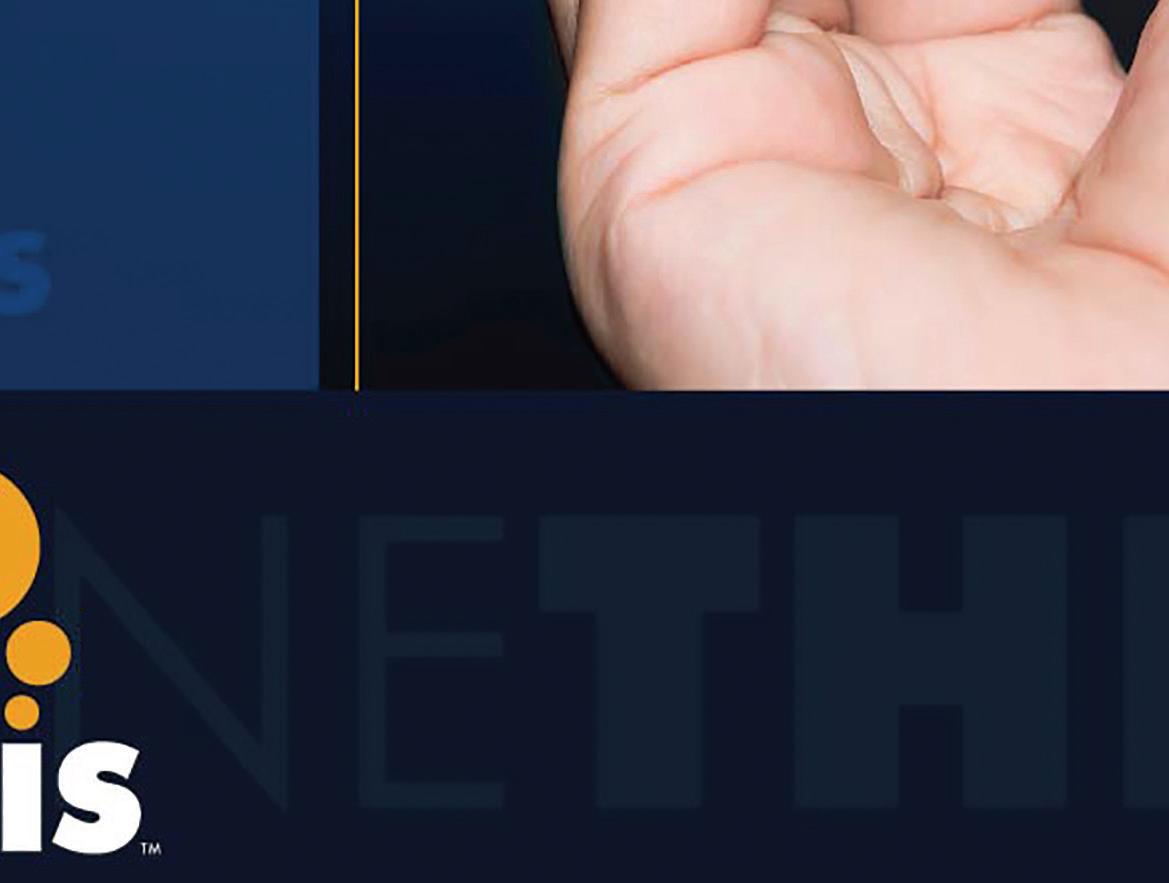
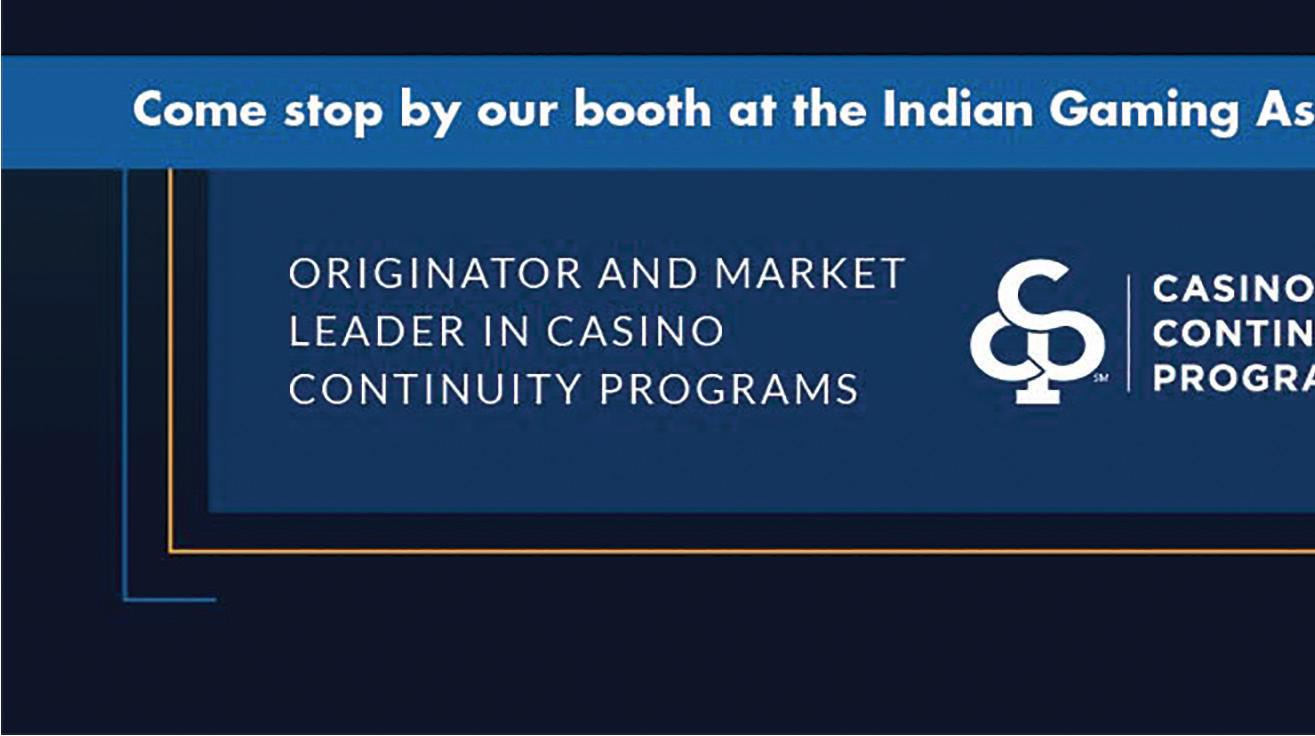



























TACKLING TRAFFICKING IN GAMING















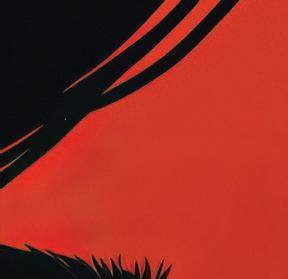




Paul Pellizzari, VP, Global Social Responsibility at Hard Rock International and Seminole Gaming, spoke with Gaming America on the realities of human trafficking in gaming, what
the company is doing to tackle it and how it intends to set the industry standard.
Let’s start by clearing up some misconceptions. In today’s age, what does human trafficking in America look like?
Human trafficking is a crime that involves people having their liberties taken away in order to be exploited. It generally focuses on both labor trafficking and sex trafficking. This is something that is getting more attention. Every year there’s more attention paid to it and it is a crime that happens across the US and across the world.
What are some signs Hard Rock and Seminole staff are trained to notice that may indicate someone is in danger?
It is a crime that affects the hotel and casino industry and so we train all of our team members to look for red flags that






could indicate human trafficking. Some of those signs will include observing people who are checking into hotels, to look at the interaction between someone who may be signing in and other people with them. So if there’s, say, an older man with one, two or three younger women, looking for suspicious signs in how they’re interacting and the way that they’re presenting themselves. Watching for lots of activity going to a particular hotel room, people coming and going. That’s something we train team members to look for.
For our housekeeping staff, we train them to look for certain signs inside hotel rooms like lots of condom wrappers or signs of videotaping that seem strange. Or, if a hotel room constantly has the signal that they don’t want any housekeeping so that no one’s going into the room.
On the casino gaming floor, we’ll train people to look for activity where there may be a handler and a victim, and they’re interacting in an unusual fashion that looks very social. Maybe one is constantly circling the gaming floor looking for people who are winning, people who maybe have been drinking a bit and asking them, 'do you wanna party?' Certain lines. The signs are particular for the gaming floor and hotel space, but it’s important for team members to be looking out for this.
Is the gambling industry in America one that is particularly targeted by traffickers?
Well, we know that it goes on, right? There are opportunities for traffickers when people who are gaming, or particularly when there are large events, like a large sporting event
40 | GAMINGAMERICA GAMING AMERICA | TRIBAL OUTLOOK
we saw very positive results in terms of proof that there was actual learning going on.
So, we’ve adapted this program for Mexico. There are five Hard Rock properties in Mexico. We’ve adapted and, when I say adapted, it’s not just translating the language. We worked with ECPAT Mexico and changed the content to make it relevant for the population in Mexico. We’ve had success in one state in Mexico called Quintana Roo and the Governor there has adopted it as part of the education curriculum in his state. We’re looking to expand that in other parts of Mexico. We are also working this year to adapt that program for other Central and South American countries. This is something we can do on the prevention side.
How do you ensure your staff remember and remain vigilant when it comes to anti-human trafficking training?
It’s a very important question. We have different reinforcement training we make available. There’s an online reinforcement training that we have and it is required on an annual basis; it’s a half-hour summary training that we require people to take. It focuses on


some key red flag signs. It also talks about large events, as I mentioned earlier, like sporting events and entertainment events, and being on the lookout when those things are happening. We also take the opportunity, like during January’s National Human Trafficking Prevention Month, to drive a lot of internal communications talking about what we’re doing, reminding people of its importance for our industry. Also, over the last year in different parts of the world, we’ve used our Social Identity Quest education program as a reinforcement with our team members, where we invited team members to check out the Social Identity Quest with a young person in their life, their own child, a niece or nephew or family friend. Sit down with a young person, complete the quest and then if they register their name and property where they work, they would be eligible for a draw of prizes. So, we try to take what we’re doing and leverage it but have ongoing communications throughout the year to build upon the training we give people.
If a guest at one of your casinos suspects suspicious activity, what is the best course of action they can take?
A guest should inform security. They can inform any team member they meet; if they are able to see a security officer that is the best person to tell. What happens if a team member or a guest were to approach security and say 'I saw something?' Then the security officer will investigate the situation. They’ll take down whatever information the guest or team member is able to provide in terms of descriptions of people and where they saw the activity. Then security will make a determination on whether or not to notify law enforcement and bring law enforcement into the situation.
This is an important point because we don’t want team members, guests or anyone on the property to actually attempt to intervene in a situation they think might be trafficking, because that could be very dangerous. Really, the only people we want actively doing something to address the situation is security and/or law enforcement. The procedure is: if team members see something they tell security, security notifies law enforcement.

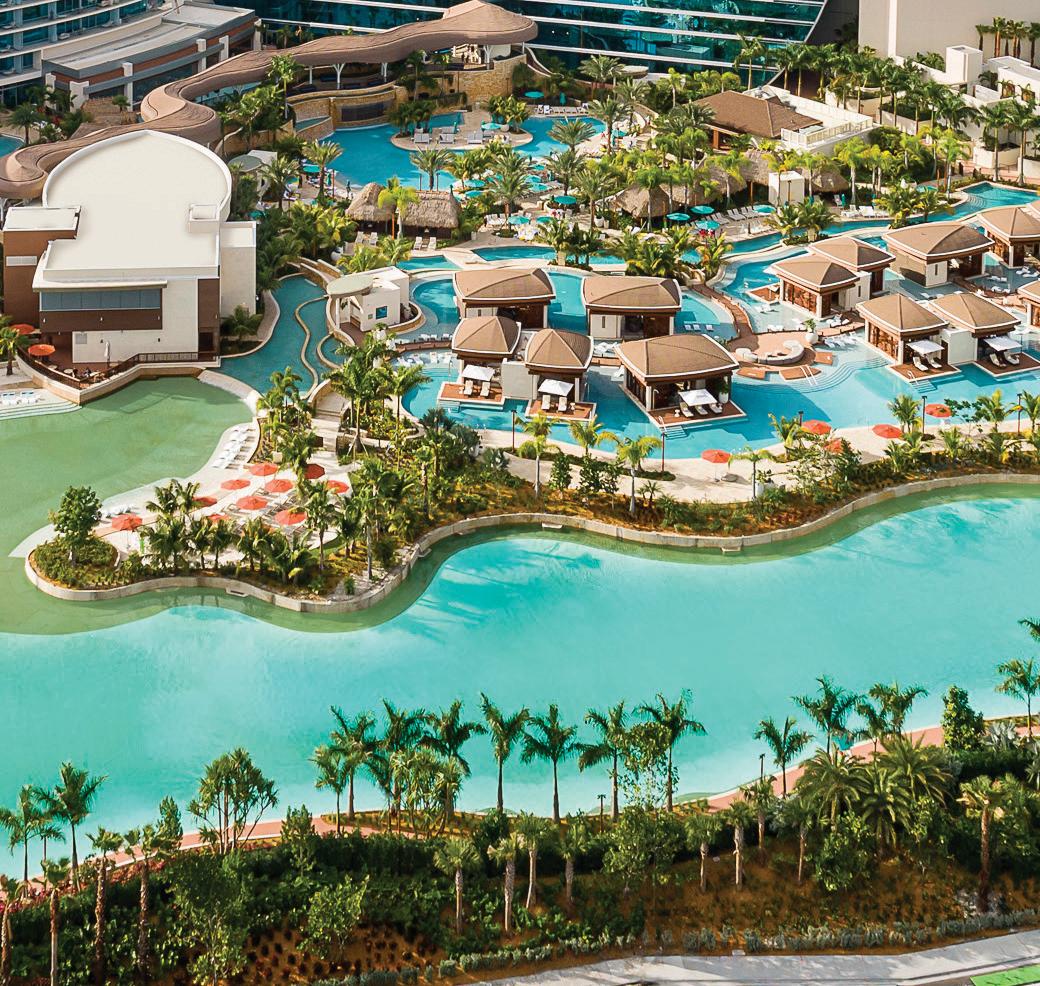


GAMING AMERICA | TRIBAL OUTLOOK
42 | GAMINGAMERICA
Seminole Hard Rock Hotel & Casino Hollywood, Florida


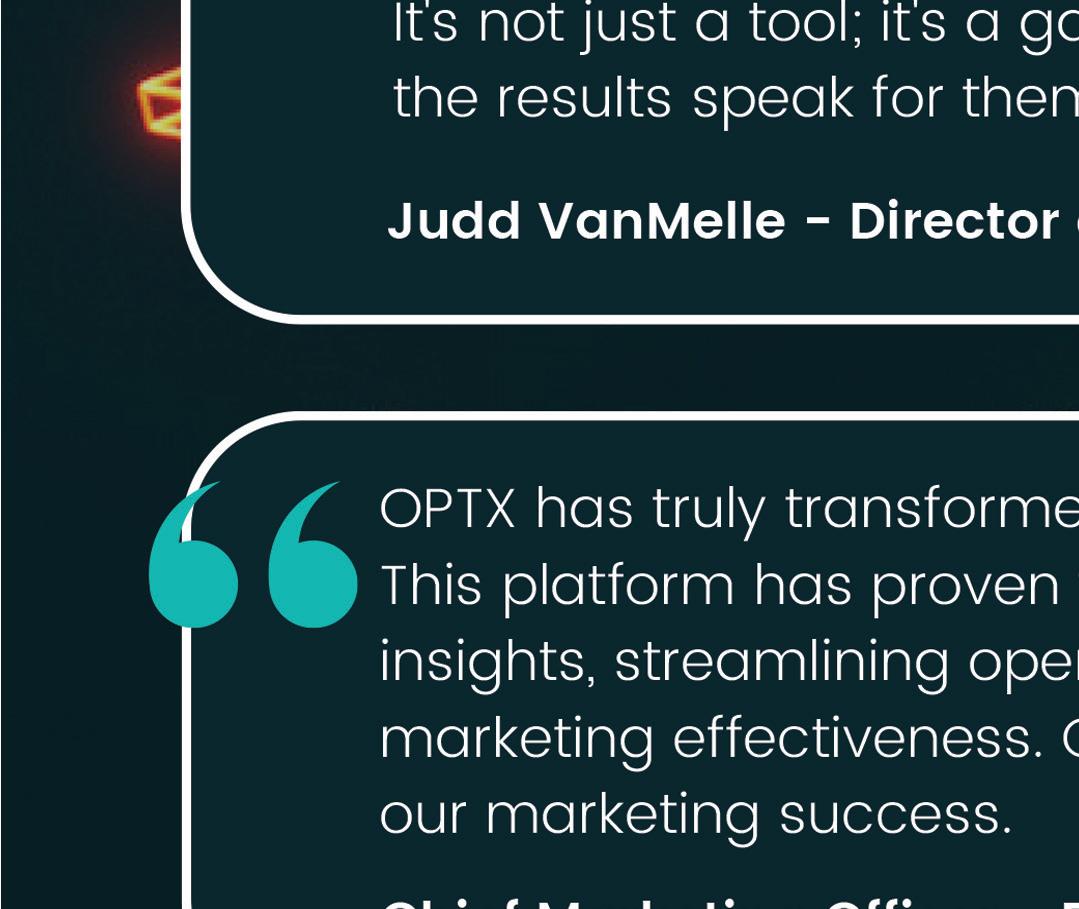

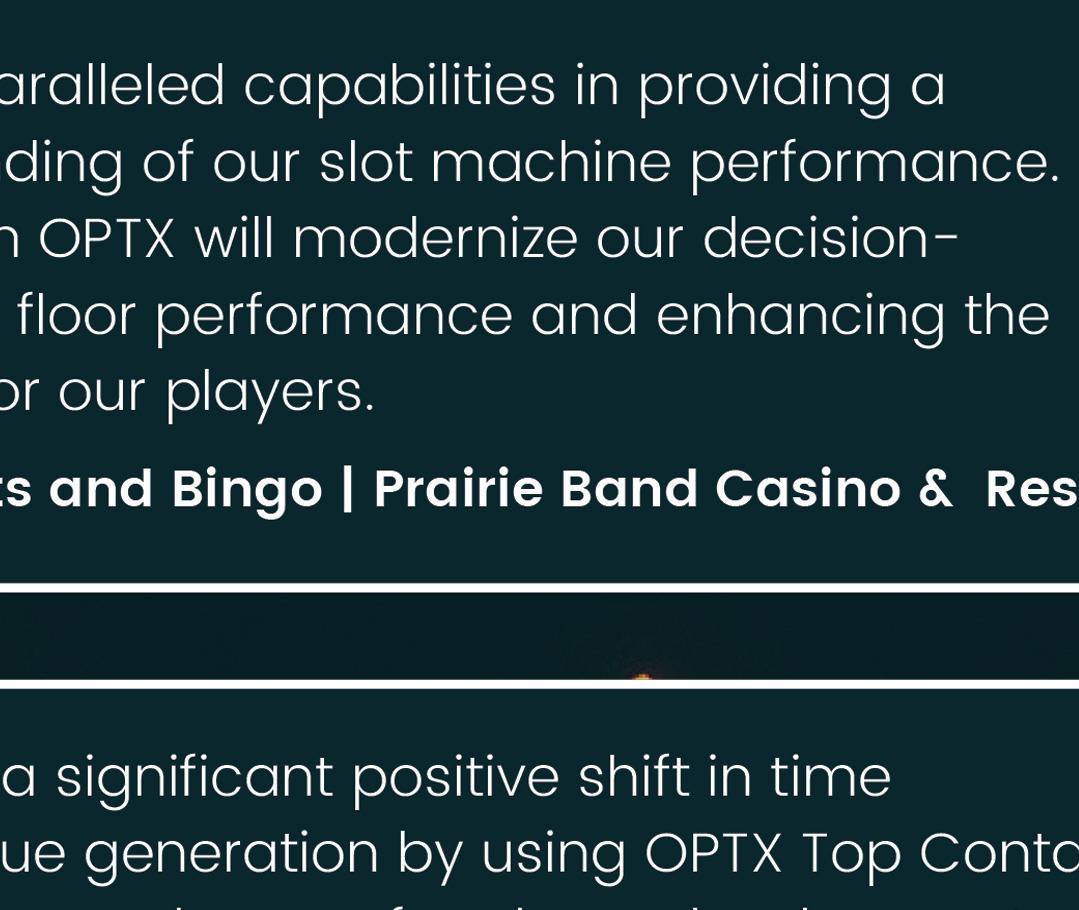





VIEWPOINTS: WHAT’S NEXT FOR TRIBAL GAMING?
Industry experts answer Gaming America’s burning questions on all things related to Tribal gaming; featuring the Potawatomi Casino Hotel, Mohegan Digital, OPTX and Oddsworks.
















JUSTIN ARNETT
VP of Digital Gaming, Potawatomi Casino Hotel
Justin Arnett is the Vice President of Digital Gaming with Potawatomi Casino Hotel in Milwaukee. Justin has 15 years of varied experience in sports betting, ranging from retail operations, to mobile development and risk room operations. Beginning his career as a ticket writer in Las Vegas, Justin moved into the risk room, manually trading ahead-oftheir-time micro In-Play markets and then ultimately moving into Operations Management in both retail and mobile environments. He has opened four books from scratch in newly legal jurisdictions.







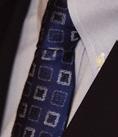


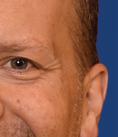





GUY GREENE
VP of Online Marketing, Mohegan Digital
Guy Greene is the VP of Online Marketing for Mohegan Digital, which is Mohegan’s iGaming division. Greene has a distinguished history with Mohegan Sun dating back to its opening in 1996. He excelled as the Director of Loyalty Marketing earlier in his career, and would also go on to serve as the Director of Consumer Marketing and Direct Marketing for the company. In his current role, Greene is the driving force behind marketing strategies that support MoheganSunCasino.com and PlayFallsViewCasino.com.


BROOKE FIUMARA Co-Founder and Co-CEO, OPTX
Brooke Fiumara is the Co-Founder and Co-CEO of OPTX. Prior to co-founding OPTX, Brooke served as the Chief Marketing Officer for Warner Gaming, overseeing all marketing and business intelligence operations for Warner Gaming’s managed and owned properties. Brooke co-chairs the Marketing Committee for the nonprofit organization Global Gaming Women and was honored by Las Vegas Weekly for being an influential 40 under 40; she was nominated as American Executive of the Year by the Global Gaming Awards in 2022.
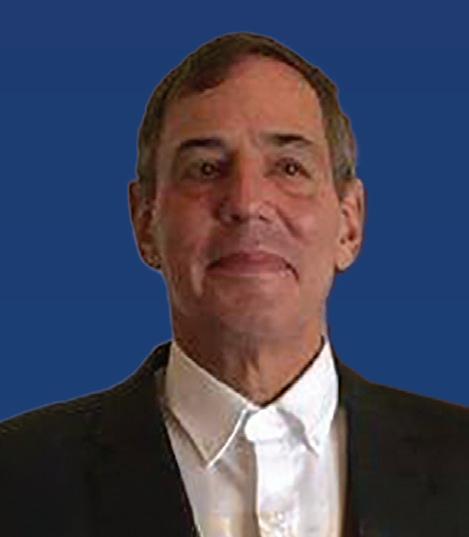
STEVEN DEMAR
EVP Business Development, Oddsworks
Leading Edge Design has been Steven De Mar’s focus for the last 21 years. Steven has served as director of business development, bringing the company’s slot machines and table games to locations in across the US and Europe. He came out of retirement with his brother to found Oddsworks as one of the first independent North American iGaming aggregators.
44 GAMINGAMERICA GAMING AMERICA | TRIBAL OUTLOOK











































JUSTIN ARNETT: While I believe there will always be a place for brick-and-mortar gaming and entertainment, I think the future will move more and more online. To ensure future growth and protect Tribal sovereignty, I think it is imperative for Tribes to develop new verticals, especially in the online gaming space. It is critical for Tribes to leverage the land-based brands they have worked hard to build for growth in the online space, but also as a feedback loop for their land-based casinos.




GUY GREENE: Gaming expansion that has allowed for online casino games and online sports betting is incredibly important for Tribal gaming operators. This is a new, fast-growing, fun and convenient option for players to experience in a world that becomes more digital every day. Mohegan Digital, which is the iGaming division of Mohegan, is live in New Jersey and Connecticut through MoheganSunCasino.com, as well as in Ontario, CA with PlayFallsview.com. The business success, and guest feedback for each of these platforms, have well surpassed expectations. We will be live in Pennsylvania this spring as well, with more details to come.






HOW IMPORTANT IS IT FOR TRIBAL OPERATORS TO EMBRACE ONLINE GAMING?










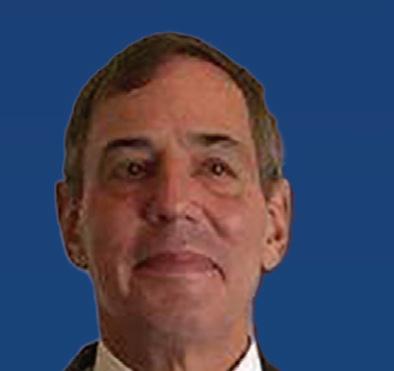






BROOKE FIUMARA: From my perspective, the adoption of online gaming by Tribal operators is a strategic long-term move for financial growth and brand equity. The integration of online gaming allows Tribal operations to extend their reach to a wider audience, increase brand recognition; and using tools like OPTX, operations can establish a cohesive experience that seamlessly connects their land-based casinos with online gaming platforms.



STEVEN DEMAR: Online gaming is especially important for Tribal operators as it allows them to expand their player footprint, as well as continue to service and engage their current playerbase. Many Tribal operators draw their playerbase from distant locations. The ever-present threat of finding a similar experience within a shorter distance is an ongoing concern for land-based tribal casinos. IGaming allows operators to protect their current playerbase and expand beyond their geographical reach. They have a strong headstart against a new land-based casino as they have direct contact with their playerbase, and can offer a seamless integrated experience using both land-based and online. Operators must get the idea that iGaming is bad for their core business out of their heads. It has been proved time and time again that gaming expansion grows the market.

GAMINGAMERICA 45 TRIBAL OUTLOOK | GAMING AMERICA





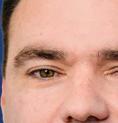


































JUSTIN ARNETT: Sports betting still has enormous growth potential, especially in the digital space. We are in the early days. Of course, every Tribe’s situation is unique, but the opportunities for growth in many jurisdictions are vast, especially if you take into account mobile sports betting. Being able to reach players across your jurisdiction is a powerful thing.













GUY GREENE: Mohegan’s flagship property in Connecticut, Mohegan Sun, regularly features special appearances and watch parties inside the Mohegan Sun FanDuel Sportsbook for Football’s biggest game, major UFC Fights, the always-exciting college basketball tournament coming up in March, big-time events like the Kentucky Derby, Pro Basketball’s Post-season and Baseball’s fall classic. These events and widely popular games all contribute to memorable in-person experiences, often shared with friends, that are hard to replicate with online gaming. So even as online sports betting will continue to see impressive growth, the in-person experiences and event driven aspects of on-site Sportsbooks like Mohegan Sun FanDuel Sportsbook, and the Overtime Sports Lounge at Fallsview Casino Resort, will continue to create an interesting balance between online and retail sports betting.


HOW BIG IS THE OPPORTUNITY OF SPORTS BETTING FOR TRIBES AND COULD IT BE BIGGER THAN THAT OF LAND-BASED CASINO GAMING?








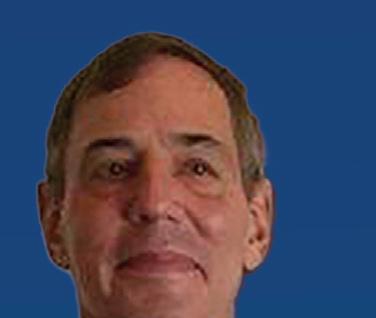






BROOKE FIUMARA: Sports betting caters to a distinct customer base that complements landbased casino gaming; yet, in my view, it doesn't serve as a substitute for a comprehensive gaming experience. Instead, it acts as an amenity capable of attracting a fresh customer demographic, seamlessly integrating into parallel revenue streams like slots and table games.



STEVEN DEMAR: Sports betting is a bit of a mirage. The volume is growing and growing fast. Mobile sports betting is up to around 30 states and sports betting is now legal in about 38 states. The sheer ability of the market to absorb this kind of dramatic player expansion builds a strong case that sports betting is working and players want it. The cloud over the forecast is the small margins from sports betting. The win from casino is significantly larger than that of sports. To exceed casino, sports betting would have to grow many multiples in magnitude than it is now. Sports betting is a superb complement to casino, but the math is strongly in casino gaming’s favor as the darling child.


GAMING AMERICA | TRIBAL OUTLOOK 46 GAMINGAMERICA


JUSTIN ARNETT: Technology is changing extremely fast in the gaming space. Land-based gaming is starting to see some innovations that are intriguing, especially with the introduction of cashless gaming. Cashless has the potential to allow players to seamlessly move their funds where they want them to go. This includes the growing digital space, which has its own technology advancements. In addition to the growth of Class III iGaming, I am also excited about innovations in Class II iGaming. This gives Tribes in jurisdictions where Class III iGaming isn’t permitted by regulation the option to offer iGaming slot products as Class II. Also, I am excited about new sports betting products including AI-driven recommendations, social casinos and more.


GUY GREENE: Along with regulations, the adoption of technology by society is allowing for the expansion of sports betting and gaming online. Technology is opening the door to a new gaming customer and an existing traditional market that seeks a real-world experience. To stay current with player trends, traditional operators will need to expand their offering to meet the pace, product and betting habits of emerging player demands.


HOW IS THE TECHNOLOGY CHANGING THAT TRIBES USE FOR GAMING?


BROOKE FIUMARA: The integration of AI technologies into gaming operations is a notable trend, facilitating data analysis, personalized player experiences and operational efficiency. Moreover, Tribes are utilizing data analytics tools to gain insights into player behavior, preferences and trends. The implementation of CRM systems has become indispensable for Tribes, providing effective management of customer relationships, personalized communication, loyalty programs, and targeted marketing campaigns to enhance player engagement and retention. Additionally, in response to evolving preferences and health considerations, Tribes are adopting contactless technologies, reflecting a commitment to a safer and more convenient gaming experience.




STEVEN DEMAR: The gaming platforms in use today for iGaming are mainly first-generation, legacy systems that were created on a proprietary basis for a specific organization. The software was written for giant operators and was very complex, expensive and, now, clumsy. Every process seems to take much more time than is actually required due to the cumbersome processes involved with configuration. Today, there are many technology choices available for a platform. Strive and White Hat specifically have tailored their solution to single-point operations. They will both be a strong force in the future for Tribal iGaming. A provider is able to really buy what they need, rather than just what is available. In the iGaming space, time is money. Every day of delay is a day you can never get back. Multiply that across an enterprise and tech slowdowns can really cripple an organization.

GAMINGAMERICA 47
TRIBAL OUTLOOK | GAMING AMERICA




































JUSTIN ARNETT: Commercial gaming has taken an early lead in these first days of the expansion of sports betting and online gaming. I think it is important that Tribes work to close that gap and take their future into their own hands. That’s exactly what we are doing by building our own digital footprint that features our own brand and grows our digital expertise. As more Tribal operators blaze that trail to build their digital footprint, I am hopeful that more Tribes will follow suit.












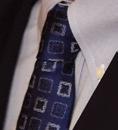







GUY GREENE: It is too early to tell but it is giving all operators the opportunity to extend their brand. Each operator sees this opportunity differently. Correct positioning in the market will dictate what brands win in the long run.


IS THE BALANCE BETWEEN TRIBAL AND COMMERCIAL GAMING IN THE US ALTERING WITH THE EMERGENCE OF ONLINE GAMING AND SPORTS BETTING?


BROOKE FIUMARA: The entry of commercial operators into online gaming and sports betting has the potential to impact the market share traditionally held by Tribal casinos. Some Tribes have entered partnerships or collaborations with commercial gaming entities to navigate the complexities of online gaming and sports betting. These alliances can bring together resources, expertise and market reach for mutual benefit. The rise of online gaming and sports betting is reshaping the landscape, intensifying competition between Tribal and commercial gaming entities. The equilibrium is contingent on continuous regulatory changes, technological progress and strategic choices undertaken by both types of operators.











STEVEN DEMAR: In this author’s opinion, the online iGaming and sports betting space will blur the same way the internet did with retail. Needless to say, the biggest advantage iGaming offers is that it can be used anywhere within a state. Rain or shine, 365 days a year. I believe that ultimately the distribution of casino iGaming skins will reach parity with land-based in commercial casinos. In cases like California, Arizona, Wisconsin, Florida and Connecticut and other states, where only Tribal casinos operate, there will be a major opportunity for Tribal gaming to capitalize on the opportunity their skins present. The creativity and outcome will mostly be determined by how the two entities approach the proposition and each other.


48 GAMINGAMERICA GAMING AMERICA | TRIBAL OUTLOOK








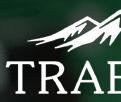














Your
www.rymaxinc.com Copyright ©2024 Rymax. All rights reserved. HUNDREDS OF NAME BRANDS INCLUDING A portfolio of premier brands, customized technology, world-class service and loyalty solutions BOOTH 1532
We’re
Ace in the Hole

THE KING OF CASINO
Gaming America spoke with BetMGM’s VP of Gaming Angus Nisbet on the company’s recent launches, the Super Bowl and what 2024 has in store...
BetMGM launched Buffalo on its online casino recently. How do you translate the experience of landbased play to an online outlet?
We had to make a decision with that game. When you’re balancing everything up, do you build your own version of it, or do you say; look, Aristocrat’s number one on the gaming floor in most casinos in the US, Buffalo being that game.
You walk around the casino and you hear that call of the eagle, you hear it on half the casino floors in the US. It’s very distinctive.
That’s the first thing you do, take game sounds. So when you play the game online, if you’re a retail player, you recognize the sounds. You try and replicate as much as you can. That said, the return to player on a retail slot is lower than a digital slot. Those two things are balancing themselves out now in the UK but in the US it’s still not, so the math is different. It is a different experience, but you try and make it look and feel as close to the retail game as you can. Then, really, it’s a marketing exercise. So we work with Aristocrat and have a
great relationship with them. We were proud to be the first online casino in the world to offer Buffalo when it went live in New Jersey. Now it’s live in Michigan, Pennsylvania and Ontario. To be the leaders in omni-channel casino, which we are, it makes sense that the first place you’re going to be able to play Buffalo is on BetMGM.
Is it truly worth paying the premium?
The game is excellent and it’s been a top
50 | GAMINGAMERICA GAMING AMERICA | BETMGM

10 game for us from the day it went live, which is fantastic. Again, it’s the balancing act. You could have built your own version, it would have been cheaper for you to do that, you’d be paying less revenue share on that version. But you’re making less revenue versus a smash hit. So in my mind, you pay for quality; and the balancing act is having those massive headline games and then having your own in-house games to support them as well.
Like I always say, if you’re Apple or Nike, you don’t put the new MacBook on discount... We were very careful to not overpromote Buffalo. We wouldn’t say, ‘look here, $50 free for Buffalo,’ because why would you do that? The game is so strong, it stands up on its own.
What was one of your biggest learning experiences in 2023? And how do you plan to implement that in 2024?
Nisbet holds up a map of the United States
This won’t translate because it’s not a video interview, but look at what I’ve got here. The biggest learning curve was US geography. I’m English, right? I’ve been to Las Vegas quite a lot for various reasons and I’ve been to New York a few times, but I don’t know the US. When I started, the learning curve from a geographical point of view was steep and you realize the vastness of the US.
Joking aside, 25 years I’ve been in the gaming business now. 2023 was, without a doubt, the most challenging (in a good way), the steepest learning curve I’ve ever been on. You’ve got to understand a completely new territory, the way regulation impacts the sector in the US is totally different from what I’m used to in the UK. We developed a sector in the UK, which then had regulation and compliance trying to catch up with it... whereas in the US, compliance and regulation is at the absolute forefront of what happens, which is great and the right way round. But that took a lot to get used to.
2023 was the best year of my working career without a doubt and it just continues to be. I think the main reason for that is the opportunity and people that I’m working with at MGM. The whole business is just extraordinary. It was a great year and it hasn’t slowed down in 2024.
In 2024, are there any gaming technologies you think we will see growth compared to last year?
From an omni-channel point of view, live dealer. The time for live dealer is coming. Many aspects of the UK gaming space are very similar to the US gaming space, so when I look at the percentage of business a UK operator would get through its live dealer business, it’s a lot higher than the US and that’s catching up.
How so?
That’s down to the market evolving; it’s down to the quality of the dealers and it’s down to localized studios.
GAMINGAMERICA | 51 BETMGM | GAMING AMERICA
I think you’re gonna see the growth of live dealer continue significantly in 2024 and that’s traditional live dealer, if you like. But that’s also the work we’re doing with dualplay roulette, which is live and successful in the Borgata Arcade.
We’re going to have different game types using the same format. So live dealer, dual-play and I think hybrid games like MGM Bonus City. It’s a green screen. You spin a wheel and... it’s something that looks live and studio presented without necessarily the expense of a full live casino studio.
What about arcade games?
To go back to the arcade tab, I think there’s a whole host of content that will land that hasn’t quite landed yet, like fast games and crash games. If you look at South America and South Africa... those games are number one ahead of any slot, which is extraordinary. A South African or Brazilian player isn’t any different from an American player, so there’s no reason that won’t resonate. Once we get that content right, imagine a situation where we take one of our sporting team partnerships, let’s say the Detroit Lions or The New York Jets. Imagine a jet game with the New York Jets, fully branded, and it’s an American football going down an American football pitch and landing on the 40-yard line; you can see it, right? I think different content types, and different studios coming in and making an impact in the way that Slingo has done over the last couple of years. So, live casino hybrid, dual-play and fast games would be the ones to look at.
Can you describe your goals for 2024 in three words and explain why?
I've got two goals for you. The first one would be omnichannel market leader. When we talk about market share in the US, there’s DraftKings and FanDuel and we’re number three in that triumvirate. It’s based on gross gaming revenue and that’s fair. What I think is also fair is, having just got back from Vegas, you didn’t see DraftKings of FanDuel in Vegas. MGM was
everywhere. Vegas is MGM. We are part of MGM and it’s very important that we internally recognize that.
Our new app’s gone live in Nevada. As more states look to regulate online gaming, I think we’re in a fantastic position... Vegas is moving to be a huge casino state, but it’s now an entertainment state; it’s a sports state. The Super Bowl was the most-watched event on TV after the moon landing. People know it was a good game, but it was Vegas and they put on the show. Any shot of the Allegiance Stadium where the game was would have had the Luxor casino in the background. There’s BetMGM. No one else can do that. I think it was 120 million people at peak viewing and our brand was full on show.
So I think omnichannel market leader will give us longevity... We have to make sure we’re here for the long term and we’re making the right decisions from an omnichannel point of view.
What about the second goal?
My personal objective, which I’ve fed back to the business, is King of Casino. You know, we are the King of Casino. With everything we talked about today, whether it’s how we differentiate from state by state and brand by brand. We’ve



































got Wheel of Fortune, we’ve got BetMGM and we’ve got Borgata; all these different opportunities to mature.
I saw a load of photos of our players at the Beau Rivage in Mississippi, because it was Mardi Gras. If you want to go from one casino to another in Las Vegas, you go on the BetMGM tram. One of the Mardi Gras floats is branded BetMGM... I know the relationship between MGM Resorts and BetMGM is tighter than it’s ever been. I know that because I speak to my colleagues at MGM Resorts every day; I know how hard people from casinos worked alongside people from digital during the Super Bowl in all our casinos over the weekend.
Can you give us an example?














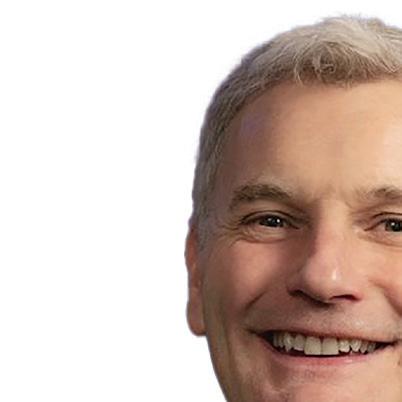
















































ANGUS NISBET
BetMGM
VP Gaming
We had a player who won $3m on an in-house game [in January]. To go back to the chat about in-house versus third party, we’ve got a game called Bison Fury, which is massive and exclusive to us in the US. This lady won $3m and when we spoke to her we said, “Right. Okay, what do you want to do? Where do you want to go? How can we congratulate you?” She said, “Do you know what? I’ve never been to Las Vegas... I wanna go to Vegas.” So she had the best New Year of her life! We flew her down to Vegas, we picked her up in a limo. She stayed at the Aria hotel, which is just beautiful. She was there for five days and she left the hotel once because there’s so much to do. We’ve given her the best five days ever. She went to the New Year’s Eve party, she went to see Bruno Mars. It was an amazing time.
Now, can DraftKings and FanDuel do that? They can, but they’d have to pay us to do it. That’s a unique opportunity only BetMGM can deliver. More and more states are opening up, and Vegas continues to be the hub of entertainment in the US; we operate in Ontario, and the most flown-to city out of Ontario, or out of Toronto airport, is Las Vegas. And it’s right next to Buffalo, which is a decent sporting state... So omnichannel market leader and King of Casino. Take your pick – but those are my two goals.
52 | GAMINGAMERICA GAMING AMERICA | BETMGM


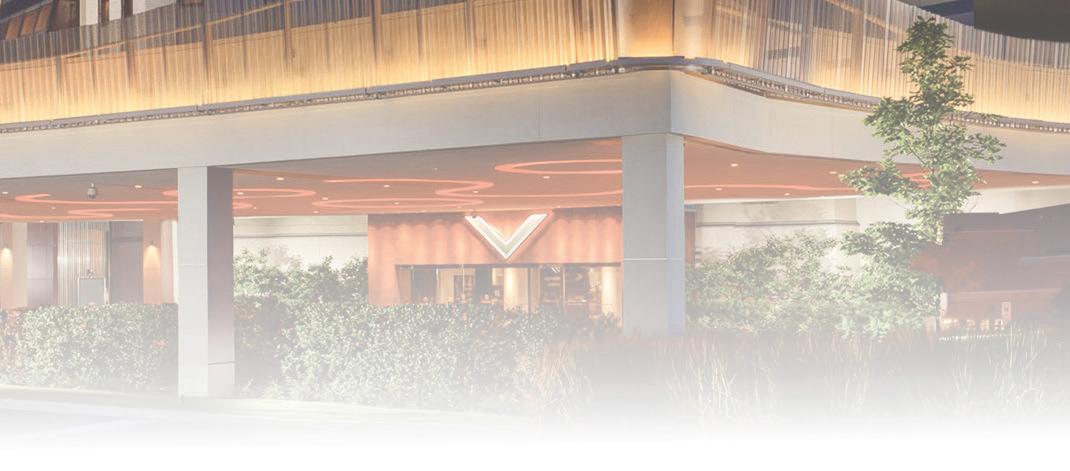

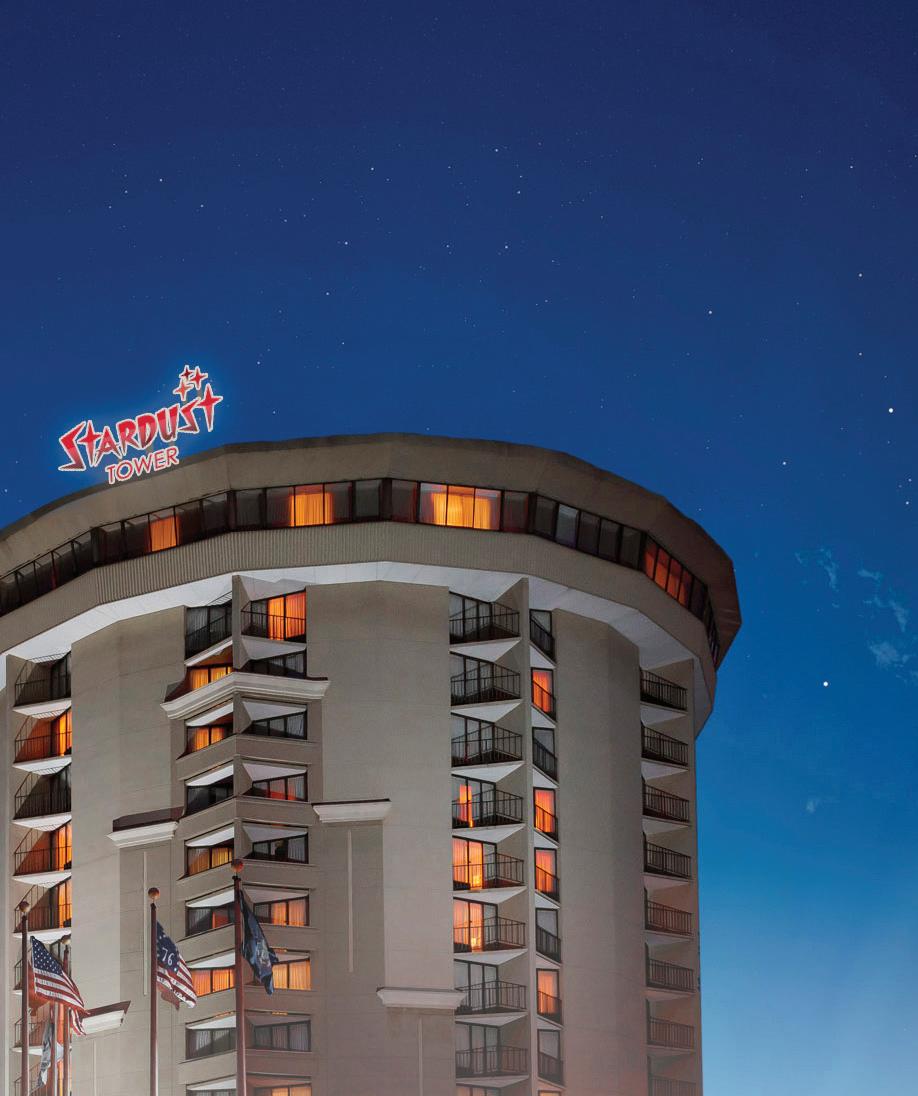

EXPERIENCE AND ACCESSIBILITY
For Ron Bailey, the VP and General Manager of Valley Forge Casino Resort in King of Prussia, Pennsylvania, the key to the hospitality business is offering something different. And the differentiating factor for him and Valley Forge is its experienced and accessible staff.
What’s your background and how did the journey you were on eventually bring you to the Valley Forge?
I’ve been in gaming since 2000. So I started off with Caesars Entertainment when it was Harrah’s, working in hotel operations. My background started in hotel operations in five diamond hotels in the Texas area. And then my boss left to go work for Caesars so I followed him to open the hotel portion of a Harrah’s property in Louisiana, in Shreveport.
An opportunity then presented itself to go work for MGM, so I went to Beau Rivage in Biloxi, Mississippi. The world works crazy. At that point, my boss –who would be my boss – was leaving the company, so they flew me to Las Vegas to meet with the then-VP of hotel
Randy Morton, who eventually became President of Bellagio. They interviewed me there and I said, “You know, sir, at some point, I’d love to come to Las Vegas.” And he’s looking at me like, “Yeah, kid. Have at it.” [Laughs] But nine months later they were making plans to open Spa Tower and they transferred me to the Bellagio, to open Spa Tower, and I got the experience to do that. I spent three years at the Bellagio and then transferred over to Luxor when MGM bought the Mandalay Bay Resort Group at the time. So I was Director of Hotel at the Luxor.
Then the downturn. I went to go work for Gaylord Entertainment for a bit and really wanted to get back into gaming and had the opportunity to work for Boyd. And that’s where I’ve been for the last 12 years. I
have worked in three different jurisdictions with Boyd. So I’ve been in Nevada, in Louisiana and now in Pennsylvania.
Tell us about those different experiences. Nevada, Louisiana, Pennsylvania and you also mentioned Biloxi, Mississippi –those are very different gaming markets..
They are uniquely different. In the South, Louisiana and Mississippi are probably a little more similar. But in Biloxi, they are more barges than they are riverboats. So it’s much larger. The property I worked at, we called it the Beau, when they built that property, they actually built a barge, sunk that barge and built a barge on top of it! So you really couldn’t tell you were on the water – other
54 | GAMINGAMERICA GAMING AMERICA | LAND-BASED CASINOS
than being around the water. Then obviously at that time the promotional environment and all of those areas were significantly different as well, as far as where your customer-base comes from. Even though Biloxi was very destinationdriven, very seasonal. As you get to Las Vegas, at least working at the time on The Strip, it’s seasonal but it's such a big convention town, plus your gamers. So it's always busy; there's always something happening.
But it’s also local. Your locals want to go out, they want to eat. They want to go to the clubs, day pools and places like that. So it was definitely a different time. I worked at the Orleans, where I was Assistant General Manager. It is like the city within the city there. You know, even though it’s off The Strip, you’re right around the corner from that, having an arena and a showroom, bowling alley, movie theater and almost 2,000 rooms. It was the same thing: always very busy.
Yet you also have that very local customer that loves coming to the property. We had plenty of convention space, doing a lot of group business, especially with sports. At the time, it was very basketball heavy. It was always very cool when the Summer League was in town, things of that nature; there’s always something happening at that property. A lot of fun, a lot of people. What I found there, because Vegas is obviously the gaming market, it’s been there the longest. So the beauty we had of being at that property is that we had so many long-time team members. I remember going to a team member, someone who had been with the company 40 years. [Laughs]
Wow.
It was a very cool environment and a great experience, with a great team there. Then the opportunity presented itself to go back to Louisiana and become the General Manager of Sam’s Town Hotel & Casino Shreveport. I was very familiar with that property because it was my first casino ever when it was
Harrah’s. It was the same building, so it was like the circle of life was complete there.
Overall, from a regulatory standpoint, they’re all uniquely different. Las Vegas being the oldest gaming market if you will, it’s doing promotions, licensing, things of that nature. It’s a little bit of an easier environment to get by, to make things happen. Where even within Louisiana and other markets, getting slot machines approved or getting side bets for table games, or getting your promotions are a little bit harder. But you get used to it.
I think being here in Pennsylvania, even though it’s a newer gaming market, being so close to Atlantic City, they’ve adopted many of the things that have happened in Atlantic City over the years. And the Pennsylvania Gaming Control Board has been easy to work with. We learn the rules of engagement, we play within that box, we get things done and we make it fun for the customers.
That’s great. Tell us a little bit about Valley Forge. What’s your gaming space, your amenities, that sort of thing?
We’re a Class III casino, so we’re limited to the amount of, not gaming space, but machines and table games. So we have 850 slot machines. We have 50 table
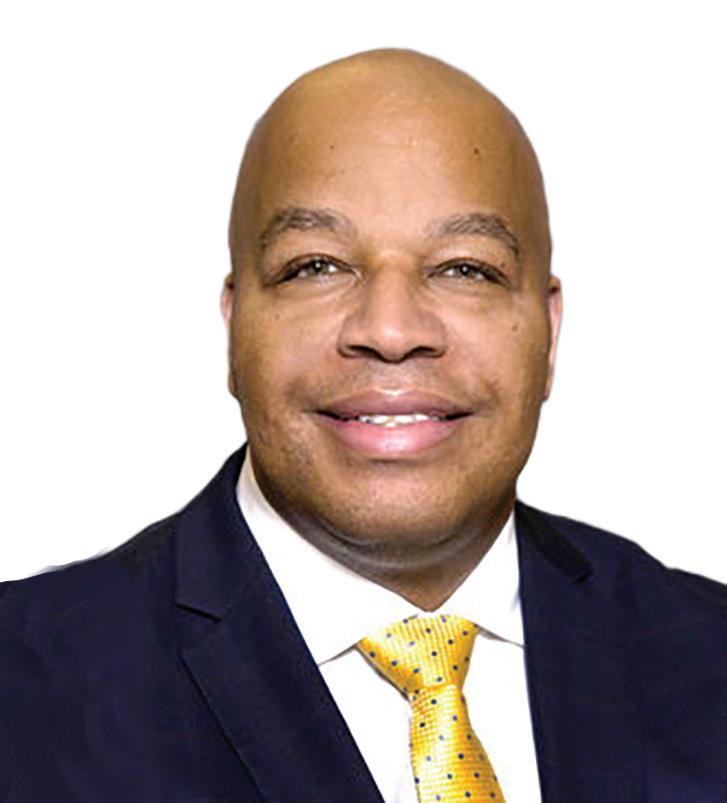
games. But for us its actually an advantage we’re in Montgomery County. It’s a growing community.
We’re definitely a local casino. I would tell you that probably 80% of our gaming revenue comes from within 20 miles of us. However, we also have 100,000 square feet of meeting space. We have a great sales team that does a great job of booking different types of business throughout the year, whether its local, social, sporting groups or association business.
So we get a lot of unrated play at the property, where people might not get a card but they want to come and enjoy themselves, and be entertained. Also being in Montgomery County, King of Prussia, we’re fortunate to be so close to many other sources of entertainment – there’s a Top Golf that just opened next door to us. We have King of Prussia Mall. We have Town Center. We have Valley Forge International Park. So from a sales perspective, as we’re selling the property, there are so many assets around us that we can promote; to not just make our property stickier but the whole area stickier, and give players reasons why they should come back and book their business here.
Sounds fun. Sounds like a place we need to be checking out. Absolutely! Please.

































































































 RON BAILEY
Valley Forge Casino Resort VP and General Manager
RON BAILEY
Valley Forge Casino Resort VP and General Manager
You have a very robust sector in Pennsylvania, offering a number of different verticals. What’s it like these days?
From a brick-and-mortar standpoint, I think the property, in the three years that I’ve been here, we’ve continued to outperform year after year. Around a year ago now Pala Interactive was purchased by Boyd, which is now Boyd Interactive. So Boyd took in its iGaming platform. With us already having a brick-and-mortar, and having iGaming use the Stardust brand for that, it’s doing very well. I think iGaming as a whole is still in its infancy stage. But we can see the growth and
GAMINGAMERICA | 55
| GAMING
LAND-BASED CASINOS
AMERICA
the potential of it. We can see it in our public numbers that the Pennsylvania Gaming Control Board puts out there. It’s doing very well. Still, I think it hasn’t even touched the surface as far as what it’s going to be able to do.
And I think having a brick-andmortar with iGaming, for us it’s a benefit because we use the power of our player’s club. Boyd Rewards allows that person to, not only come to the property, eat at the restaurant, get food credits and things of that nature, but we have assets around the country that, for example, if somebody wants to go to a Raiders game, they can go to the Raiders-Eagles game. If they want to go to Kansas City, they can go to a game there or hockey, or whatever the case may be. We have offerings outside of promotions for those customers. Sometimes they want to come to the steakhouse and eat. But sometimes they want to go and play at Belterra.
And so those opportunities, we make sure whether you play online or whether you play inside the casino, you have the opportunity to do those types of activities. Then, of course, we have FanDuel, the juggernaut. Having a partnership with FanDuel is awesome.
They’re the king in the state and most states that they operate in. I call it the “Little Engine that Could.” Our sportsbook is not huge, but it’s always busy. Obviously, people are using the app, but people coming in for the experience of whether its coming to watch an MMA event, boxing, playoffs for football, it’s always busy. Again, I use the term “sticky” because you always want things at your property that are going to give people reasons to stay, whether it's gaming, eating, some form of entertainment for those folks to stay at the property and enjoy themselves.
That makes a lot of sense. Where do you see the Pennsylvania gaming market headed in the next few years? You hinted at it a little bit with the growth of iGaming. But what else are you seeing on the horizon?
I think as a whole they have to continue to reinvest into the properties, because I think our customers across the board are looking for more than just a gaming experience, right? When I talk about things, you know, going to the Eagles game or Flyers or 76ers or going to
“MOST CUSTOMERS KNOW ME. THEY KNOW OUR EXECUTIVES FROM GAMING, HOSPITALITY, FOOD AND BEVERAGE. THEY KNOW US. AND SO IF THERE’S SOMETHING THEY DON’T LIKE OR SOMETHING THEY DO... THEY HAVE NO PROBLEM REACHING OUT TO US.”
another market and experiencing something like that, I think those types of experiences are more important to customers these days than having something to do.
Because we can all buy the same slot machine, we can all buy the same table game. It’s really about what is the differentiating factor in that. I think having great people is critical, creating great experiences as well. So continuing to reinvest in the properties to make sure your core customers continue to enjoy those experiences. Because when you have a local casino, I remember as a kid – I grew up in New Jersey. It was the Dunkin' Donuts time to make the donuts. You don’t want to it be a rinse-and-repeat experience. You want people to always come back.
Guests come back for the people here and how they feel, but people want to see different things as well. Whether it’s changing up food, or changing up entertainment, people want to feel a change and experience different things when they come to the place they want to be entertained.
What’s the differentiating factor for Valley Forge?
Easy, easy. It’s people! From a table-game standpoint, we have a great dealer base, which is very experienced. My leadership team here, we are not an in-the-office leadership team. We certainly work behind the scenes. That has to get done. But our culture is being with people.
Most customers know me. They know our executives from gaming, hospitality, food and beverage. They know us. And so if there’s something they don’t like or something they do like, they have no problem reaching out to us if they see us on the floor. They have our numbers. My business card has my cell phone number on it.
I give people my business card and I tell them, “Call me. Please. If there’s something that we can do better, or something you like and we need to rinse-and-repeat that, then please let me know and we’ll do our best.”
56 | GAMINGAMERICA GAMING AMERICA | LAND-BASED CASINOS


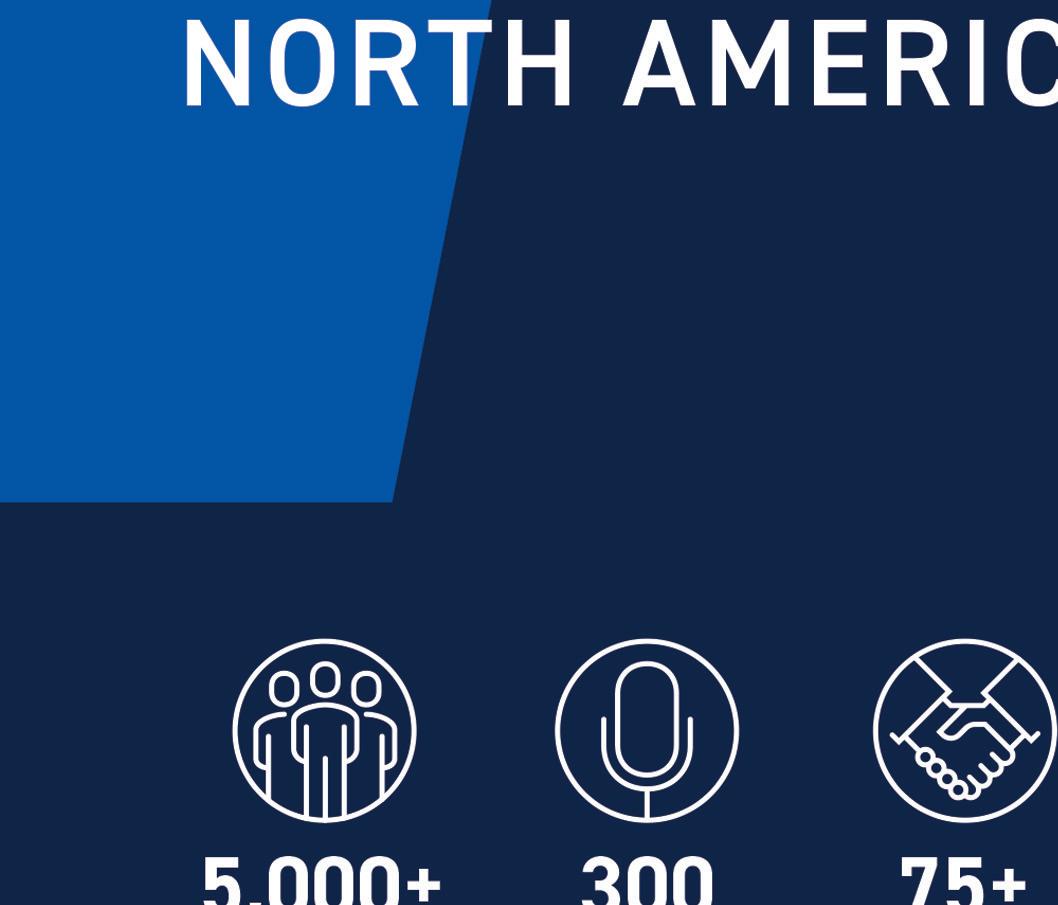
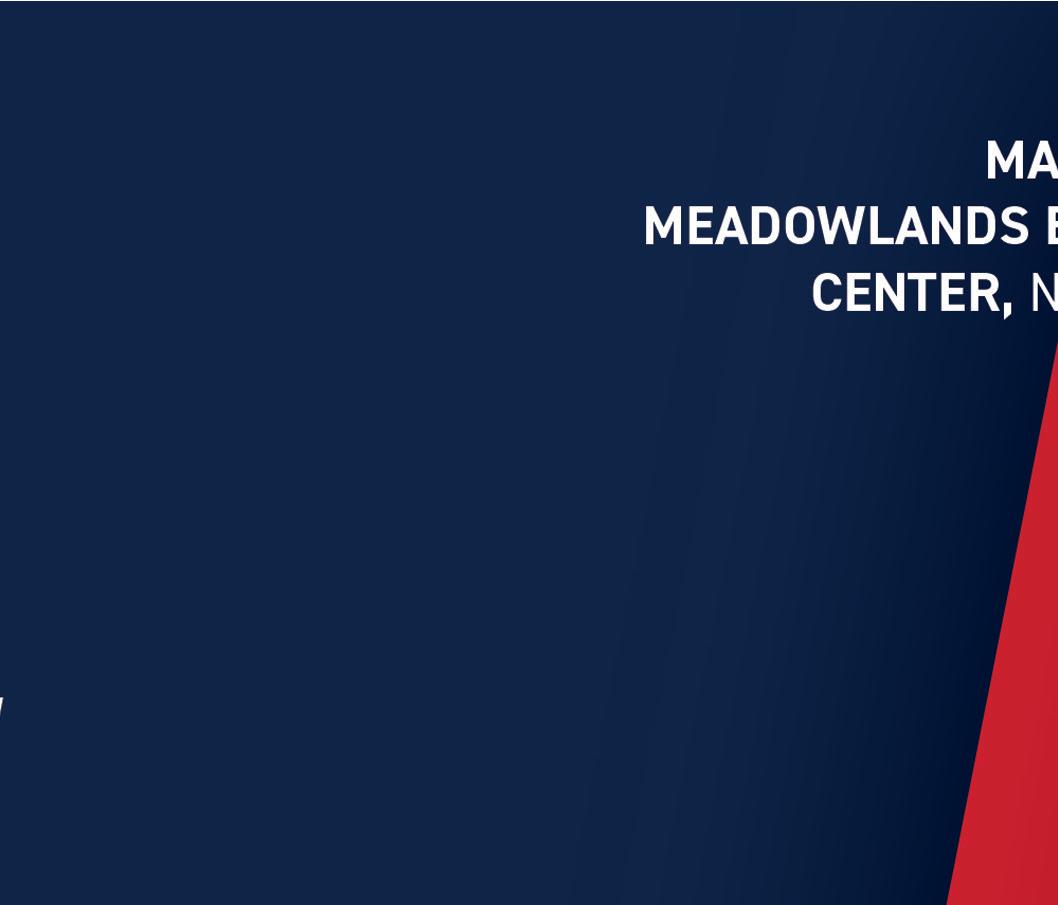












WHAT'S NEW?
Gaming America reviews some of the latest gaming products to hit the market. And we've got some good ones...
FROM THE PLAYER’S PERSPECTIVE: EVERI – PRESS YOUR LUCK WHAMMY RICHES
Gaming America got up close and personal with a few Las Vegas video slot games, including a clever adaptation of a classic game show.
If you are a fan of the '80s game show “Press Your Luck,” you are not alone.

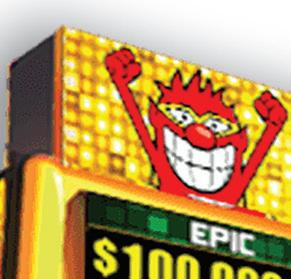
Everi’s Press Your Luck video slot machine incorporates the game show’s premise into a visually stunning and high-action five-reel game. This slot brings with it 243 ways to win and features three bonuses that add to the game’s allure, including the Big Bucks bonus, the Press Your Luck bonus and a bonus triggered by breaking the game’s piggy bank.

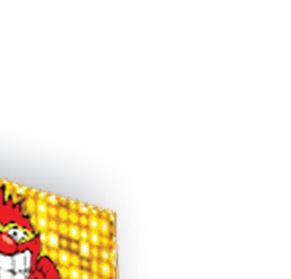
Playing this slot was like getting into a time machine to appear on the '80s game show! Complete with the Press Your Luck theme song and the infamous Whammies, this game offers stunning graphics, great sounds and some big wins if you are willing to 'press your luck.' Everi offers this game in both one and five-cent denominations. The minimum bet starts at 75 credits and has a max of 375.





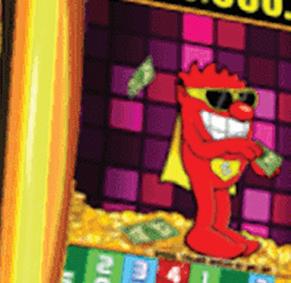

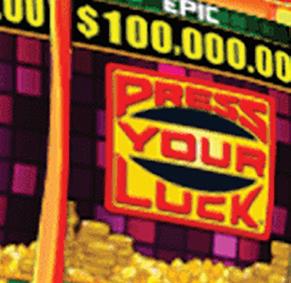

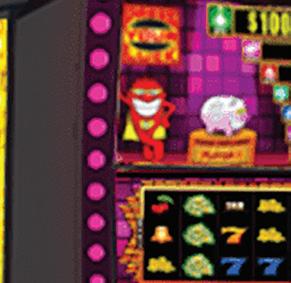


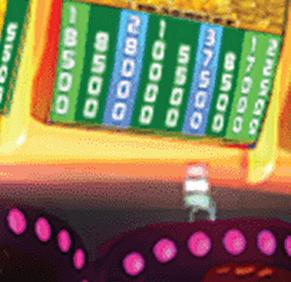
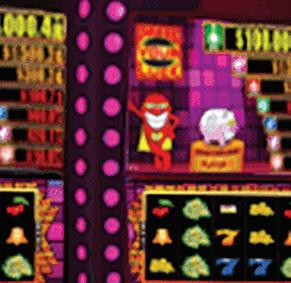






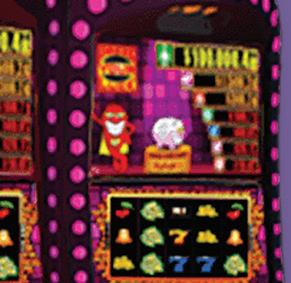









on reels one, three and five. After hitting the











To trigger the Press Your Luck bonus, players must get the Press Your Luck symbol on reels one, three and five. After hitting the first two symbols, the fifth reel will light up before the end of the spin. Once triggered, this bonus game takes players to a screen with the Whammy board. There are three spins awarded, which gives players the chance to hit dollar amounts or Whammies.















Unlike the game show, Whammies on the board are a good thing. The more Whammies a player can get, the higher the win when it comes to the bonus game’s payout. Each time a player gets a square filled on the board, more spins are added. Filling the board will unlock the Whammies and increase the game’s win.



There are three spins awarded, Whammies a player can get, the higher game’s payout. Each time a player gets a spin triggered this bonus for me, and I walked away with $75.00. Triggering the










And the payouts are nice. One $0.75 spin triggered this bonus for me, and I walked away with $75.00. Triggering the Big Bucks bonus works similarly to the Press Your Luck feature. However, a player must get the Big Bucks symbol on the last reel to activate the game. This bonus gives players a spin on the big wheel and can award between 1,100 and 20,000 credits.







on the last reel to activate the game. This Whammy Wheel bonus. If you’re lucky wheel to hit one of several progressive



Breaking the piggy bank triggers the Whammy Wheel bonus. If you’re lucky enough to land this one, you can spin the wheel to hit one of several progressive jackpot amounts available.


58 GAMINGAMERICA
GAMING AMERICA | PRODUCT REVIEWS
FROM THE PLAYER’S PERSPECTIVE: EVERI –WICKED WHEEL SLOT REVIEW
Gaming America spent some time in Las Vegas checking out some of the goto slot machines on the Strip. This one smoked out the competition. Choosing your ideal slot can be an overwhelming task when visiting the casino, especially in Las Vegas. Players have their choice from thousands of games on the Strip.
But one five-reel video slot game continues to rise through the ranks as a fan favorite – Smokin’ Hot Stuff Wicked Wheel by Everi. After playing this game — for several hours no less — the appeal for Wicked Wheel fans is obvious. This slot game offers fun graphics, exciting multipliers and up to 243 ways to win.
And Wicked Wheel does not have to break your bank either. With options of one and five-cent denominations, bets can range from 40 credits to the max bet of 320. This makes Wicked Wheel a good choice for players regardless of the size of their bank roll.
One highlight from this game is the bonus features. Wicked Wheel offers a couple of fun bonus games with the chance to win big no matter how large you bet. A bonus game is triggered by getting the Wicked Wheel symbol to hit on the last three reels. The graphics on this feature add to the thrill of triggering this bonus. After getting the symbol on reels three and four, the fifth reel lights up prior to stopping.
Once this bonus is triggered, the top screen is activated, and the player touches the screen in front of them to spin the wheel above. Depending on your bet, several progressives, along with other dollar amounts, will appear as wedges on the wheel. After the spin stops on a wedge, the Wicked Wheel devil character could blow on or turn the wheel to alter your win, possibly in your favor.
The second bonus game is randomly triggered when a player completes a base game spin. The player is presented
PRODUCT REVIEWS | GAMING AMERICA
with 21 coins to choose from and will win the first match of three of the same progressive. This bonus game also has a pitchfork symbol among the coins. Choosing one of these will take away the lowest progressive jackpot, increasing the chance of winning a larger prize.
Wicked Wheel has some great features outside of the bonus games as well. Players can win some substantial amounts by getting the Hot Stuff multiplier symbol, which can increase your line win from two to four times.
A word of warning, though, this game cleverly keeps players coming back for more, thanks to its innovative graphics, fun sound effects and catchy tunes. Don’t be surprised if you walk away from this one singing Donna Summer’s lyrics, “Lookin’ for some hot stuff baby this evening…”
your line win from two to four times. Fire Phoenix.
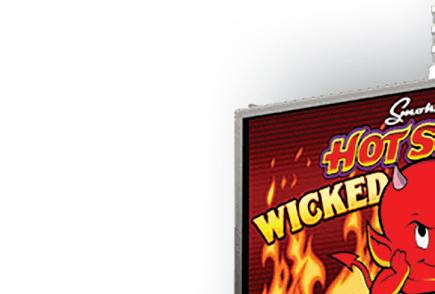
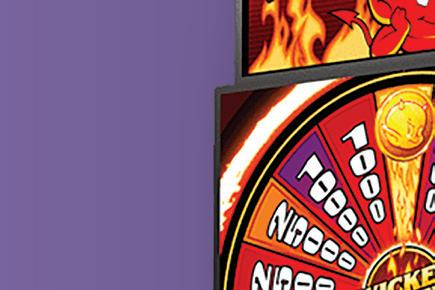

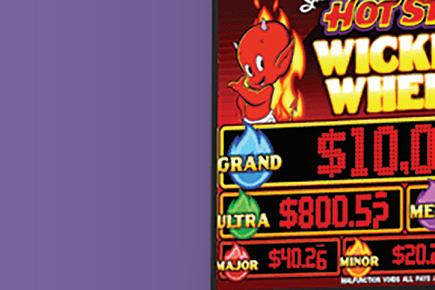
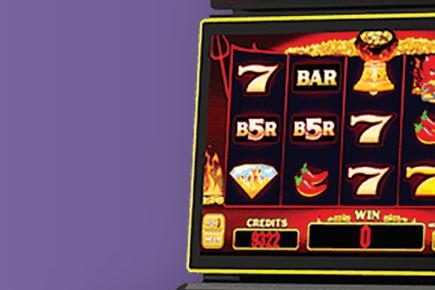
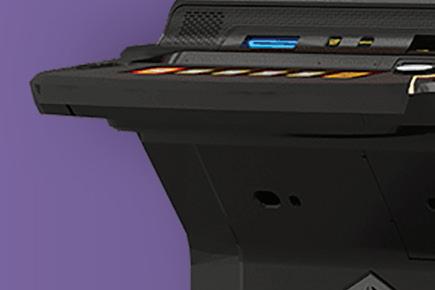

Everi offers Wicked Wheel in several variations, including Smokin’ Hot Stuff Wicked Wheel: Fire & Ice, Wicked Wheel Panda and Wicked Wheel Fire Phoenix.


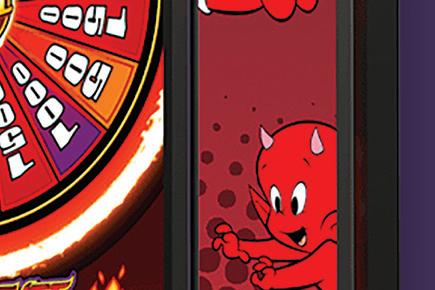


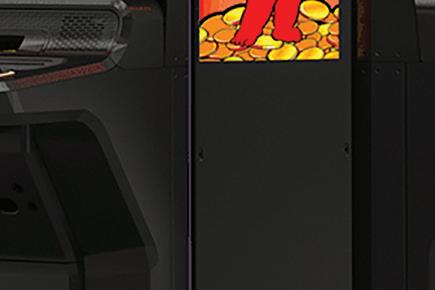





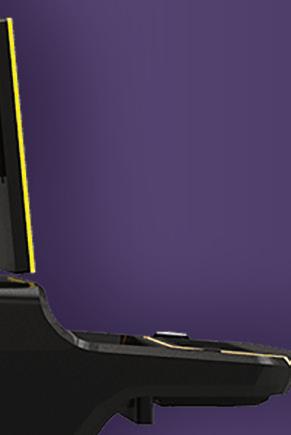



AMERICA 59
VSR: DIGITAL DISPLAY ENCLOSURE
The design team at VSR Industries continues the tradition of innovation and excellence that began in 1969 with its latest product offering: VSR’s Digital Display Enclosures.
Incorporating many of the newest features of its light and durable ECCO Hybrid Slot Bases, VSR’s new enclosures are built to be the perfect finishing touch for gaming floors around the world. In addition to easy integration with VSR’s existing line of slot base
products, these new Digital Display Enclosures are:
• Lightweight
• Durable
• Available in a wide variety of finishes
• Eye-catching
• Easy to install and maintain
• Designed with convenient access points
• Offer optional branding opportunities So if you’re looking for unique endcap options for your banks of slot
machines, stand-alone floor signs, or wall-mounted visual aids, VSR has got a solution for you. VSR is currently working on new models, in addition to its lineup of DDEs, so be sure to reach out at 1-800- 600-1510 or at www.vsrindustries.com for any inquiries.
ABOUT VSR


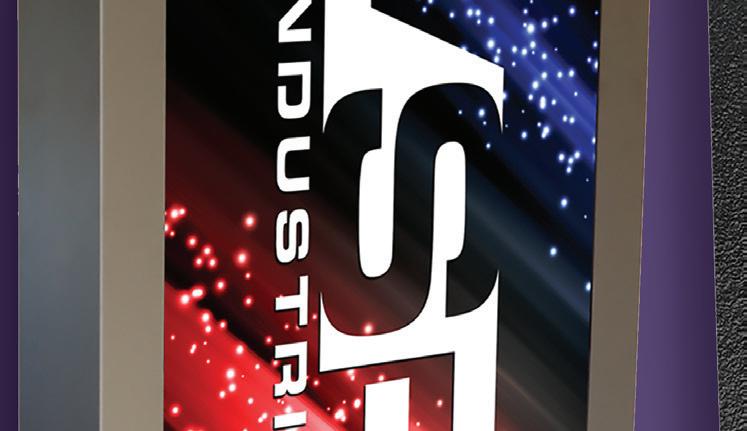


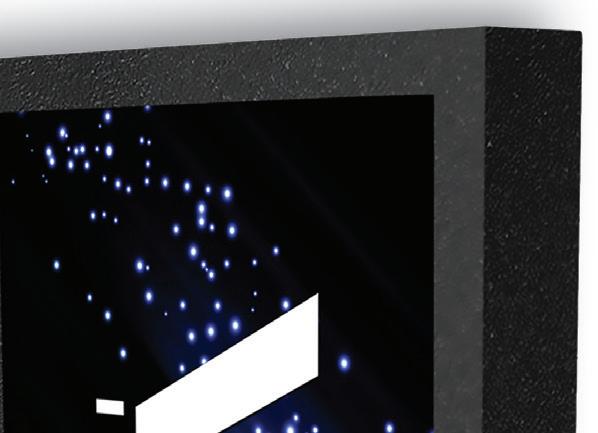
Established in 1969, VSR Industries has grown from a simple locksmith operation into a manufacturing powerhouse, with over 300 employees and locations across the globe with headquarters in Nevada. While VSR Industries has been in operation for five decades, it has maintained a focus on customer satisfaction and the quality of products, and is proud to say all manufacturing is done in-house in the US, which allows it to control every aspect of production.

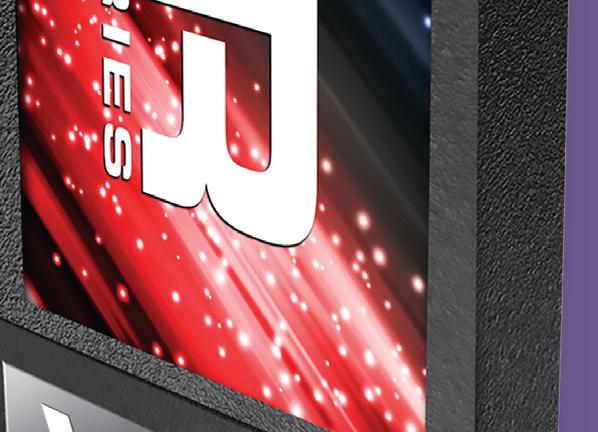
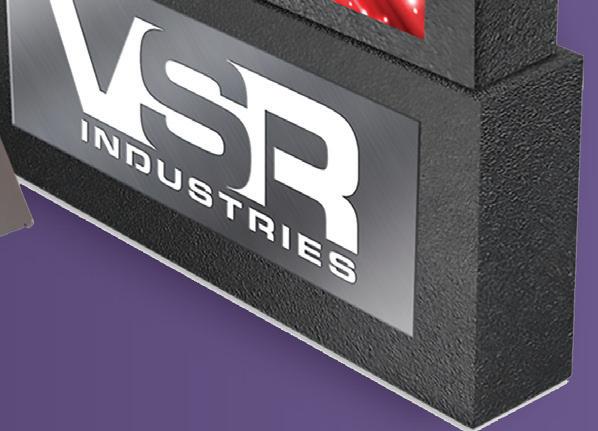

“ESTABLISHED IN 1969, VSR INDUSTRIES HAS GROWN FROM A SIMPLE LOCKSMITH OPERATION INTO A MANUFACTURING POWERHOUSE, WITH OVER 300 EMPLOYEES.”
60 GAMINGAMERICA
| PRODUCT REVIEWS
GAMING AMERICA
ARUZE GAMING GLOBAL: THE MUSO CURVE-55
The Muso Curve-55 is a part of Aruze’s premium line, bringing the most up-to-date casino gaming experience worldwide.
A LUXURY APPROACH TO VIDEO SLOTS
PRODUCT REVIEWS | GAMING AMERICA
big screen. Properties can now own this exceptional EGM with the most up-to-date technology while having access to the latest, most compelling slot themes. Designed with the full gaming experience in mind, it offers a sleek cabinet that perfectly complements its companion games.
said Kelcey Allison, COO for Aruze. “Aruze is committed to bringing the best gaming experience to every market, and Muso Curve-55 does just that.”
TOP PERFORMANCE FROM A TOP-TIER CABINET
“This cabinet reflects the evolution and modernization of casino gaming, bringing a new era of play to European casinos,”



The Muso Curve-55 delivers beautiful and alluring aesthetics, with its midnight black color and dynamic 55-inch screen. Honeycomb pattern design and eyecatching graphics attract attention from all over the gaming floor. The experience transports players to new and exotic places, while crisp visuals, great bonuses and wagering excitement increase engagement for maximum fun.
According to a recent report from EilersFantini Research, Aruze’s Muso Curve-55 is one of the top-performing cabinets in the North American market. Research shows that the cabinet entered the market as the top-performing portrait cabinet and has remained on the list of top performers. This cabinet is one of the most premier cabinets available in the casino gaming market.





It is one of only a handful of cabinets of this size and caliber available for sale in the market. The size and clarity of the cabinet converts passersby into players, trying time and time again for the big win on the
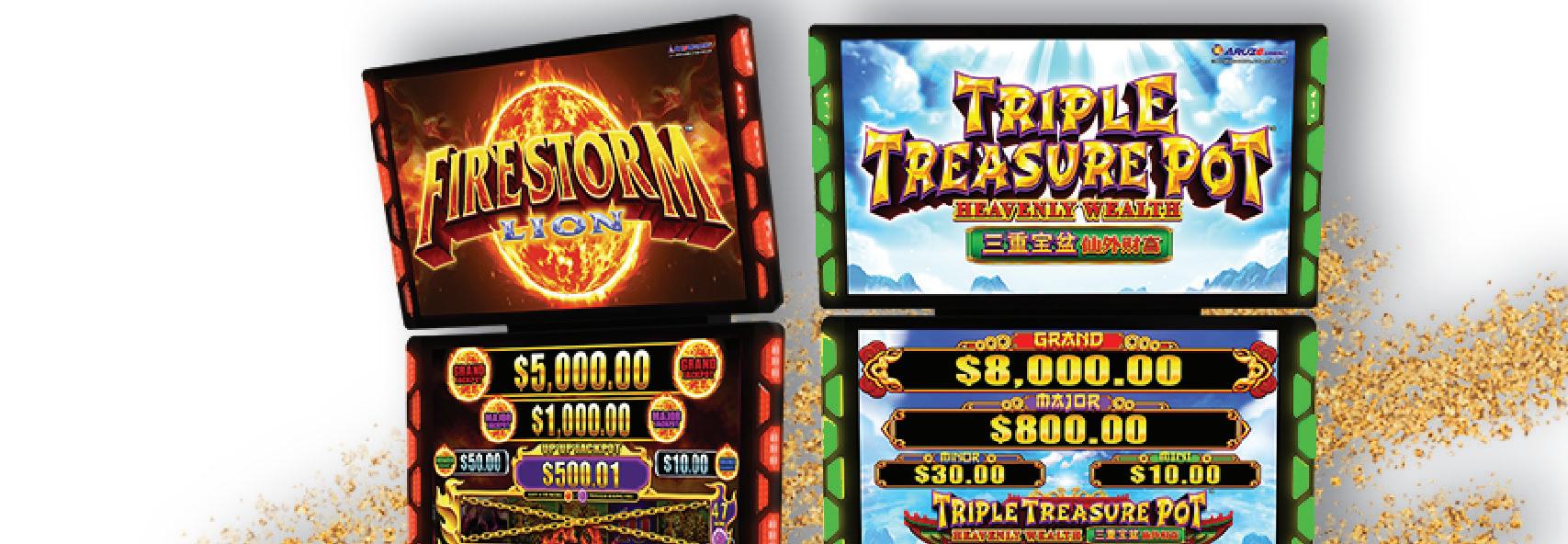
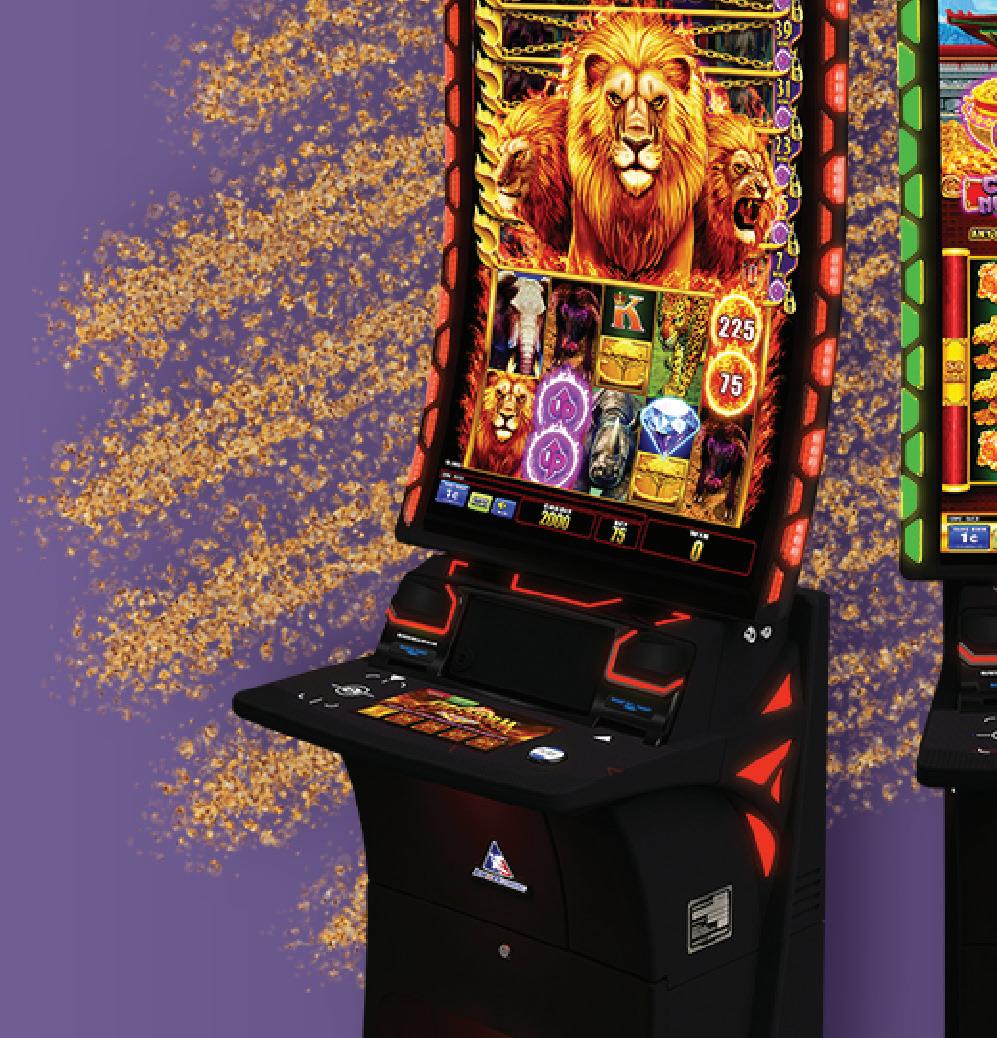






GAMINGAMERICA 61



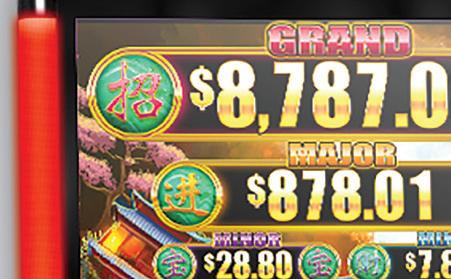




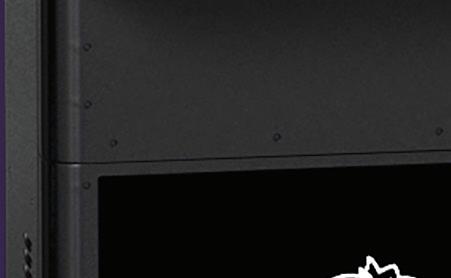




LET PROSPERITY AND GOOD FORTUNE REIGN UPON YOU WITH BLUBERI’S NEWEST RELEASE, FU FRENZY™
chasing a plethora of waterfall prizes and a chance to win instant credit awards, symbol replacements and more frequent jackpots.






game, Fu Frenzy™.
Embrace the tranquility of beautiful waterfalls and the excitement of multiple coin frenzies in Bluberi’s first frenzy-based game, Fu Frenzy™.








For the real gamblers at heart, Fu Frenzy’s Gamble the Mini bonus gives players the opportunity to bet on themselves by risking any mini jackpot for a chance to double or even quadruple the prize, in a true odds mini game. This player-tested feature will entice players into coming back for more by giving them a game within a game, and allowing the player to put their fate in their own hands.



fast-paced Frenzy bonus and a Gamble the

Bluberi is excited to introduce this beautifully unique Asian-themed Class II and Class III slot as its first release from Bluberi’s Reno studio, Bluberi Pi. This exciting game features two energizing game modes that players will fall in love with. It offers the rewarding cash waterfall with a fast-paced Frenzy bonus and a Gamble the Mini feature that’s designed for the true risk takers.





The cash waterfall, which is the game centerpiece, generates real excitement when players enter the frenzy bonus. This heart racing frenzy bonus gets players amped up by racing against the clock,
The free games bonus on Fu Frenzy presents gamblers with another compelling choice. Players can choose from a variety of free games options with associated multipliers. The ultimate gamble is available as a single spin with a 10x multiplier!

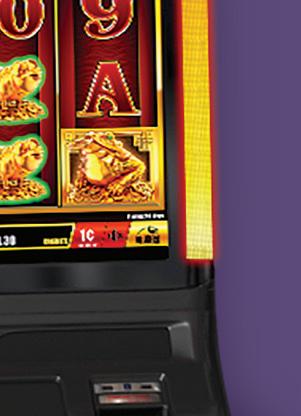
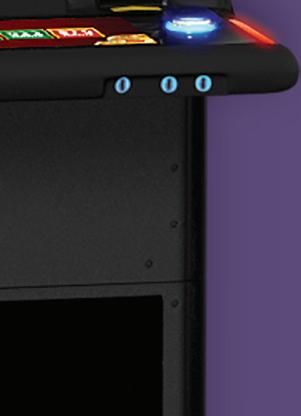
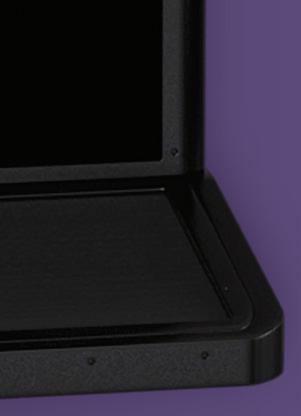

To learn more about Fu Frenzy and other exciting upcoming Bluberi products coming to market, visit www.Bluberi.com to schedule a time with one of our Account Executives.
“THE MINI BONUS GIVES PLAYERS THE OPPORTUNITY TO BET ON THEMSELVES BY RISKING ANY MINI JACKPOT FOR A CHANCE TO DOUBLE OR EVEN QUADRUPLE THE PRIZE.”
62 GAMINGAMERICA
GAMING AMERICA | PRODUCT REVIEWS












ECLIPSE GAMING: BIG SHAKE 2
We are shaking things up ... AGAIN!
Introducing Big Shake 2, the exhilarating new addition to the Cash Arcade Series. Big Shake 2 combines the thrill of traditional slot play with the excitement and nostalgia of an arcade coin pusher. Meet your host, Jackpot! Jackpot is his name, and hosting is his game.Embark on a quest with Jackpot in his search for his lost lucky gem hidden somewhere within a mountain of coins. During game play, coins, mystery prize piggy banks, poker chips, Jackpot coin cards and jackpot gems cascade onto the coin pusher. Once these items are pushed off the lower deck, players are rewarded with Big prizes. Big Shake 2 boasts engaging bonus features such as the Rapid Fire Bonus, Second Chance Re-Spin Bonus and Gold Rush Bonus. During the Rapid Fire Bonus, players can really “gopher” it as Jackpot descends onto the screen with a mechanical hose that floods the screen with coins. Using
REVIEWS
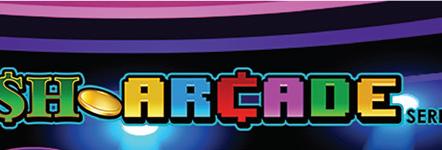





the on-screen slider, players can target areas on the coin pusher to maximize winnings. Jackpot really likes to SHAKE things up and may offer players a Second Chance Re-Spin to win Big! During the Gold Rush Bonus, a mountain of coins will pour out of the gate and onto the lower coin pusher shelf and beyond. Jackpot may add even more excitement by throwing Mini and Major jackpot gems over the lower shelf. Players can also SHAKE up the mood by using the Cash Arcade Radio Feature to customize their soundtrack and playing experience. From the captivating storyline, eye-catching animations, and customized soundtrack to the innovative gameplay mechanics, this game is sure to thrill players and keep them coming back for more!


Get ready to SHAKE things up with Big Shake 2 and your host, Jackpot! this game is sure to thrill keep coming back for more!












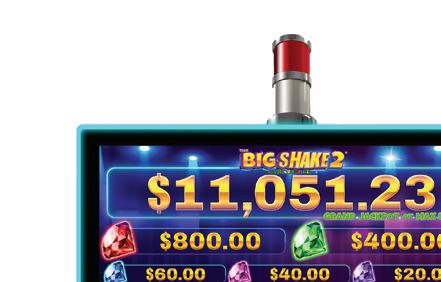
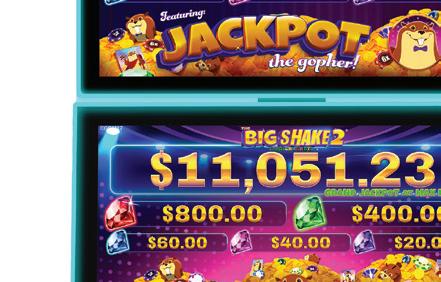





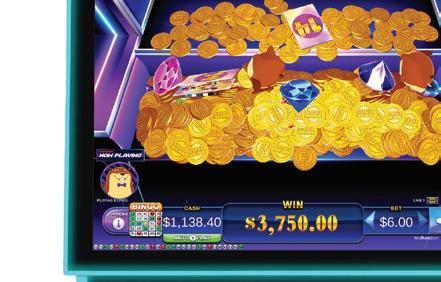












GAMINGAMERICA 63
GAMING
PRODUCT
|
AMERICA

CREATING CONVENIENCE


Lottery Now CEO Kevin Kramer says it is “fantastic” to see DraftKings validate the lottery courier space and invest more money into it – because there’s a “huge” opportunity to help lotteries become more convenient and easier for consumers to access.

In February, DraftKings announced it was spending $750m to acquire Jackpocket, a lottery courier service. For Kevin Kramer, the CEO of a rival courier service Lottery Now, the acquisition validates the sector.
DraftKings recently confirmed it is purchasing Jackpocket for $750m. How significant is that for the sector?

I think it’s a great validation for the overall courier space. Jackpocket has been at this for many years, as has our team. It’s been a long, slow regulatory evolution that’s been moving in our direction with more states being supportive of the model. It’s fantastic to see DraftKings validate the lottery courier space and look to invest more into it; because there’s a huge opportunity to help lotteries become far more convenient, easier for consumers to access and increase good cause donations in each state.

As you indicated, your company, Lottery Now, is also a courier service. Tell us about your company and what you do.

Lottery Now operates the Mido Lotto app. It’s a fun app that’s been in the Apple App Store for eight years and has 35,000 reviews. The name Mido comes from a play on words of Fido, your loyal dog who gets your Lottery tickets and brings them back to you, and also “my dough,” (my money!).
We have customers using the service in nine states. We’ve raised less than




Jackpocket and have a little smaller business than Jackpocket. Despite being smaller, we have a very healthy organization and extremely loyal customers. There are many people who can’t get out of their house, they’re homebound or it’s very inconvenient. They don’t carry cash. They drive electric cars and don’t go to gas stations. They don’t go to convenience stores. They don’t go to places that normally sell Lottery tickets.

And Lottery tickets being a cash at the corner store business, it’s a very inconvenient way to play the Lottery. So it ends up being very difficult for lotteries to reach new customers, because it’s just so inconvenient. So our app allows customers to order a Lottery ticket much the same way they might order groceries or order food for delivery. And we fulfill their orders at licensed retailers.
Tell me about the history of your company. When did you guys start? What was the genesis of it?

The product was actually started around the same time Jackpocket was, around 2013. The app launched in the App Store initially in 2016 and has been used by customers since.
You mentioned you operate in nine states. What are those states?
We’re operating in California, Arizona, Oregon, Ohio, Texas,



Montana, Massachusetts, Connecticut and Delaware.
What are your big states? Where have you been heavily adopted?
They all vary based on size and population. We’ve got material business in all nine states and we continue to really roll the business along. We’re looking at adding new states and we also continue to add new games in existing states, which helps our consumers. For example, we just recently launched “The Pick” as another game in Arizona. We launched “Lotto Texas” down in Texas a few months ago. Those are two state-run games in addition to Powerball and Mega Millions that are available in the app.
How can lottery courier services like Lottery Now and Jackpocket help state Lotteries?

We help state Lotteries very much. We help them reach new consumers. We help them better service consumers, to answer questions on their behalf. It’s an interesting, symbiotic relationship we have with Lotteries in that they are state agencies and they’re not great, necessarily, at individual, one-on-one relationships with customers.
In the DMV world, you see in some states a DMV middle man that helps people interface with the DMV. Companies like AAA do a handful of DMV services and have a better customer relationship with the end consumer. Lottery courier services like ourselves, like Jackpocket, come into a


64 | GAMINGAMERICA GAMING AMERICA | LOTTERIES



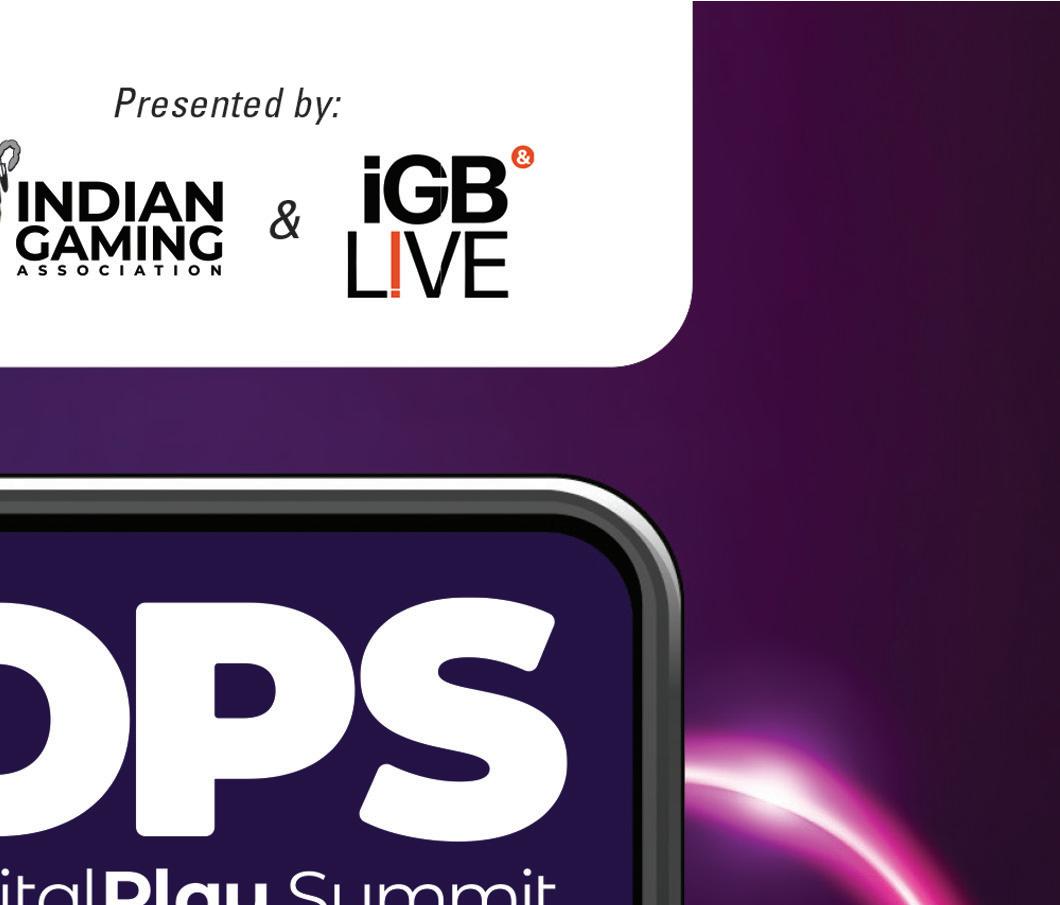

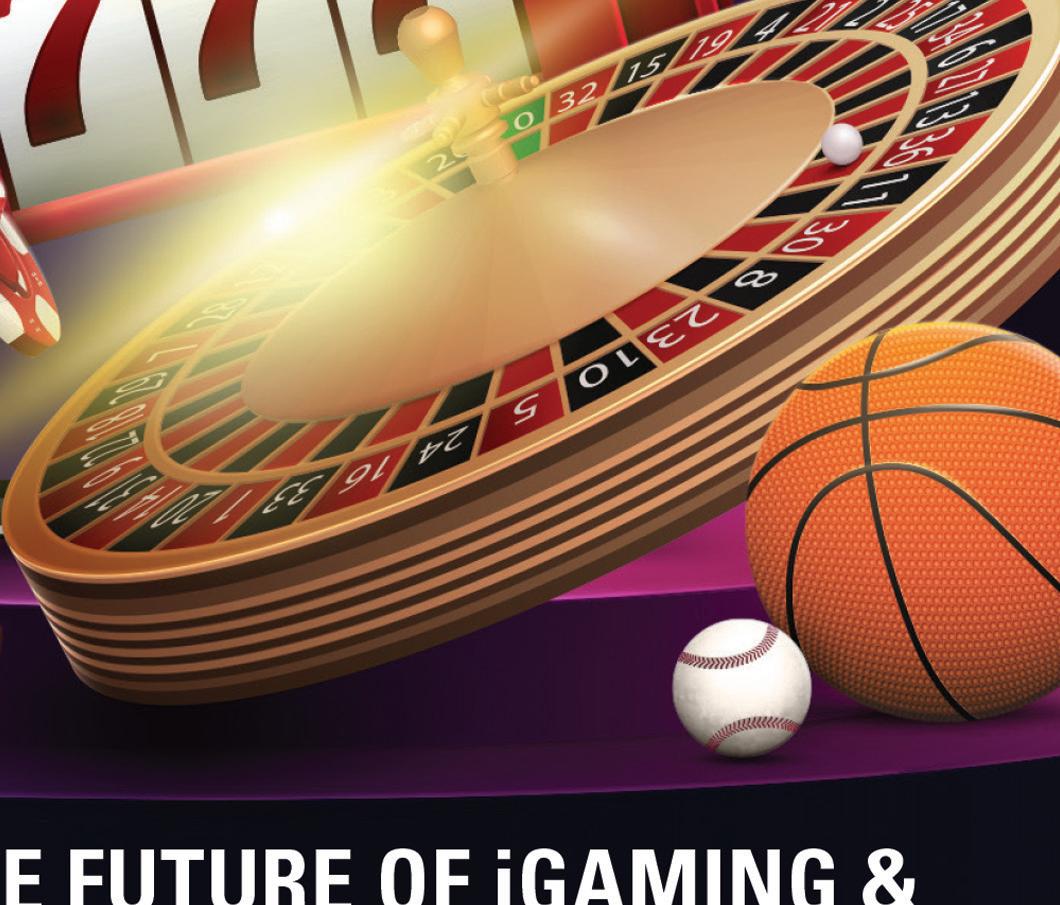



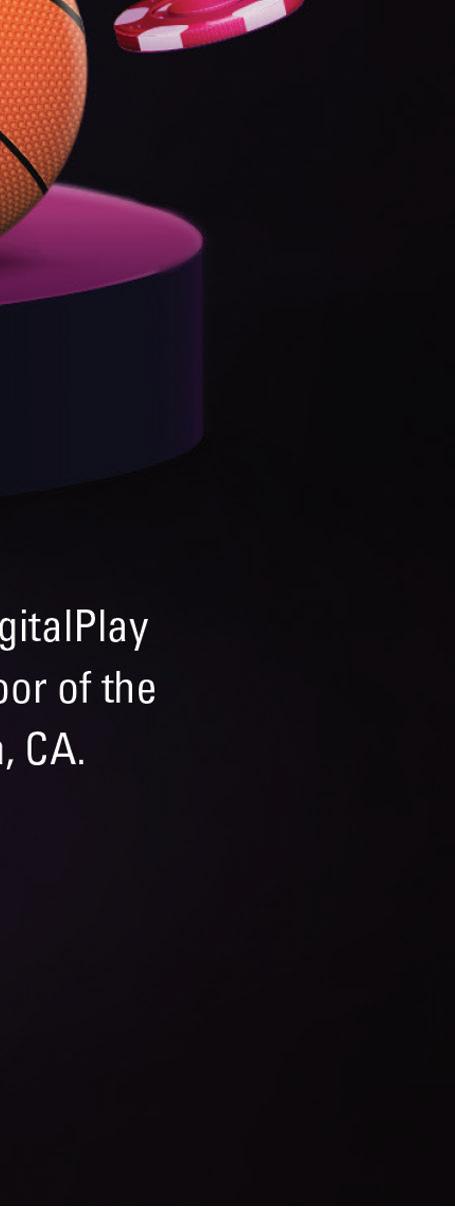



state and invest our own advertising money to acquire customers in that state. And in acquiring customers with our advertising dollars, we’re helping bring in new people to the Lottery and Lotteries don’t have to spend advertising dollars on that. So it’s a combination of attracting new customers, making it more convenient for them, helping those customers play more frequently because it becomes more convenient, and then servicing those customers, answering questions, helping them and educating them. Those are all roles we take on behalf of the Lottery to really help them have a better consumer experience.
Wow, you’re doing the work for the state lotteries! We knew of course about the basic courier function, but hadn’t quite conceptualized the notion that you’re doing for them additional advertising and outreach. That’s got to be a tremendous benefit for the states.

It really is. It’s funny; we went into one of the states a couple of years ago to have a conversation with them about our model. They had an RFP for iLottery. An iLottery lets the state directly sell Lottery tickets to consumers electronically. And in most states, iLottery requires legislation to allow a Lottery to sell direct, which can be challenging depending on the state. It’s always challenging when you have to take a legislative path because everyone has an opinion on the legislation.


We told them we just wanted to operate in their state as a courier service, and we wouldn’t need any kind of agreements or contracts with them to do so. We told them it would make a lot of sense because we can bring our own dollars to advertise on behalf of them to bring in customers, and service and take care of those customers on their behalf.
Everyone in the room from the state Lottery kind of looked around and said, “This makes a ton of sense. This is kind of a no-brainer.” So it really does help









































































the states very much, as we’re really in a symbiotic relationship with them where we’re taking on a lot of the functions that they are incapable of doing themselves at this time.

What other innovations do you see on the horizon for Lotteries and lottery courier services like your own?


There’s a lot of room for innovation in the lottery industry. There haven’t been new games launched in some states – for example, California hasn’t launched a new game since I think late ‘90s/early 2000s. Draw games are fairly hard to launch. It’s a paper process with terminals and paper at the stores. So we’re removing paper as a huge environmental footprint, helping Lotteries reduce the amount of paper they use. You have different distribution trucks, rolling around, dropping off paper at the stores. Over time, we can reduce the paper total and the logistics of delivery. Innovation, more appealing games to younger people. If you look at what sports betting has done: all these parlays and other little bets that are available within apps have become really fun and entertaining for the consumer. There are apps that let you bet onplays in real time as you’re rolling up to the play, before


the play runs, you make a little micro bet on the play as it goes along. That kind of innovation, that real-time type of innovation or innovative play really hasn’t come to Lottery; it hasn’t yet come to draw games. Scratchers has had a little bit of innovation. They brand things differently. They use different logos, different colors, and slightly different mechanics.

But Lottery really is relatively unchanged in how you interface with it and how you play the game since they first came out. It’s a bit stuck in the ‘90s from a technology perspective and from a distribution perspective, being cash at the corner store with essentially the same games that have been there. As a result, you don’t have younger people really flocking to play Lottery. They’re flocking to sports bet. When you make sports bets, in most states there’s no money going to a good cause. It’s going to the gambling operator. Some states have set it up in conjunction with the Lottery where there are some good-cause beneficiaries of sports betting, but in every single state Lottery proceeds go to a good cause.
Thanks for speaking to us on all things Lottery. Do you have any closing thoughts?

It’s really in the best interests of the causes and the states to have Lottery grow; and have Lottery grow responsibly with younger, more affluent customers who can afford to play Lottery. Playing Lottery, getting that enjoyment, getting that entertainment factor, but having some of their spend go to a good cause. We think it’s a very ripe area for innovation because they’ve been challenged to innovate given some regulatory hurdles and the legacy vendors that are out there, and what they’ve been able to do. We think couriers, especially with DraftKings bringing a very innovative approach to sports betting, can apply that same level of innovation and help guide lotteries into some much more fun ways to play.


66 | GAMINGAMERICA GAMING AMERICA | LOTTERIES
KEVIN KRAMER
Lottery Now CEO
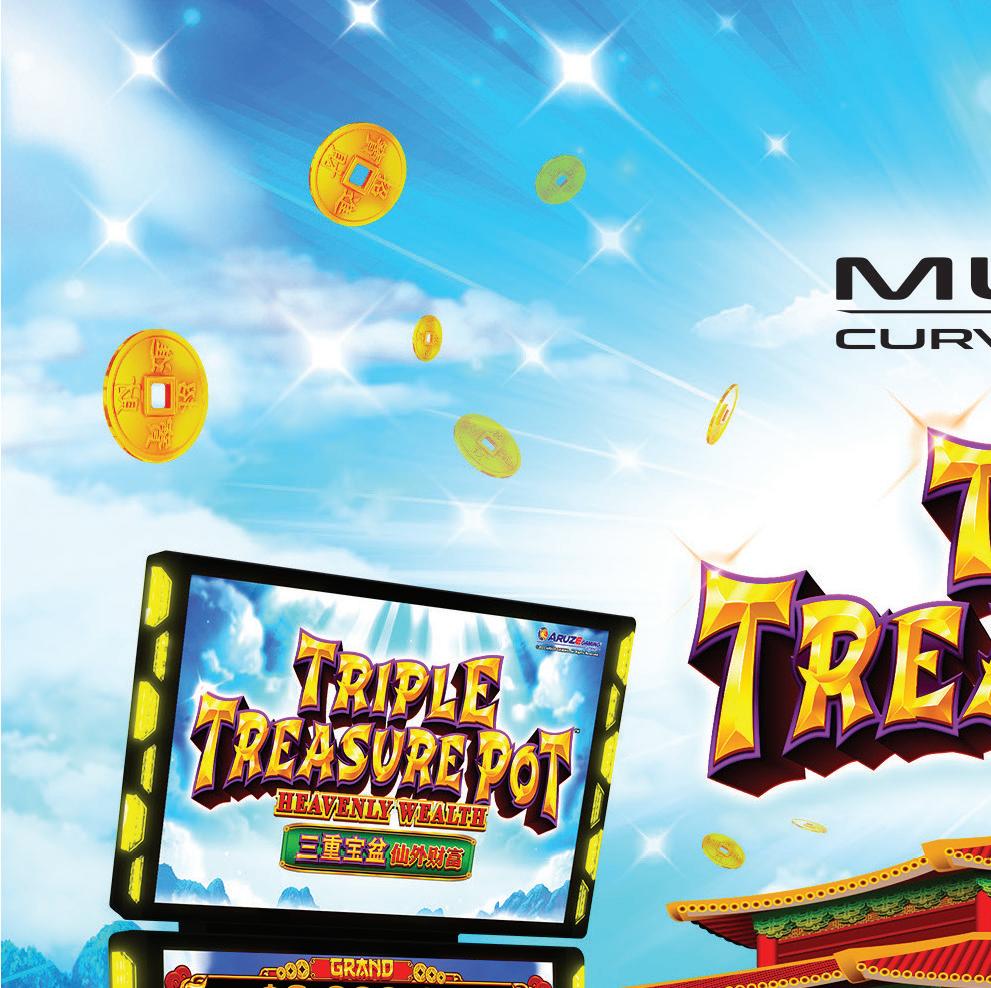
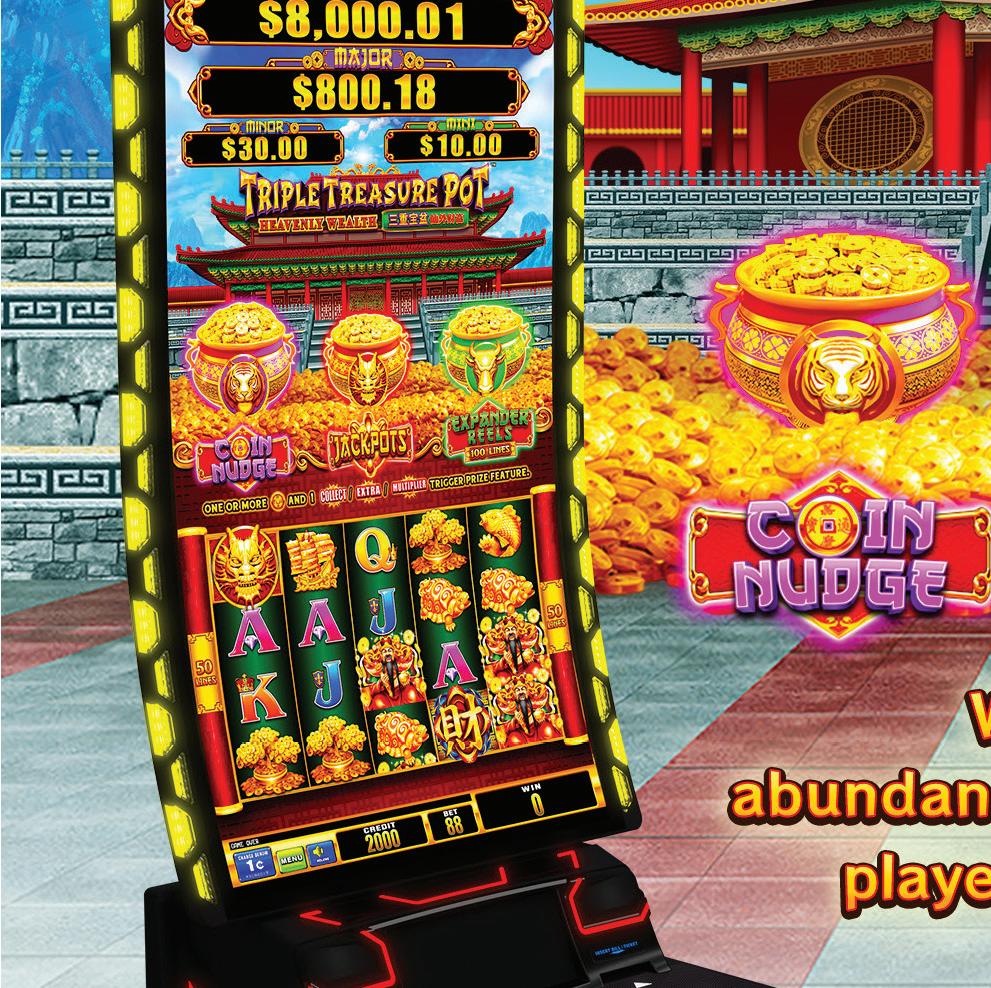
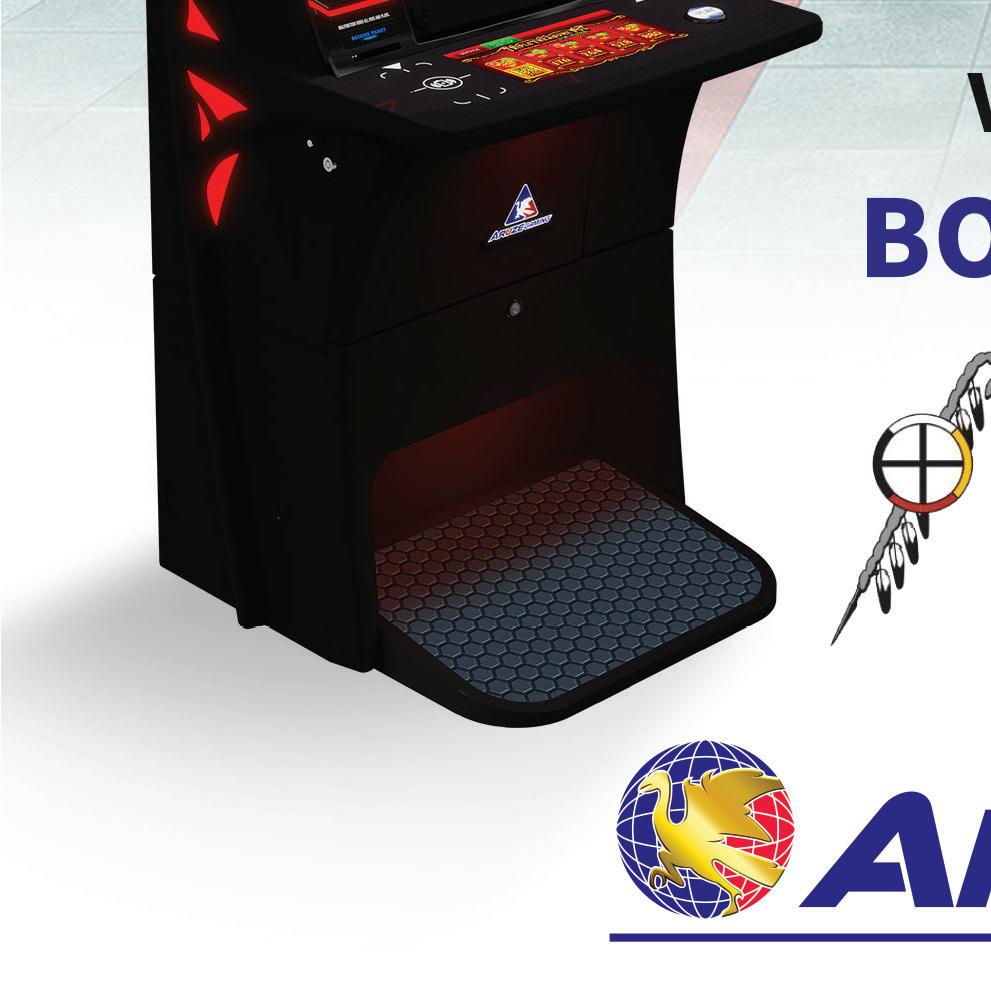
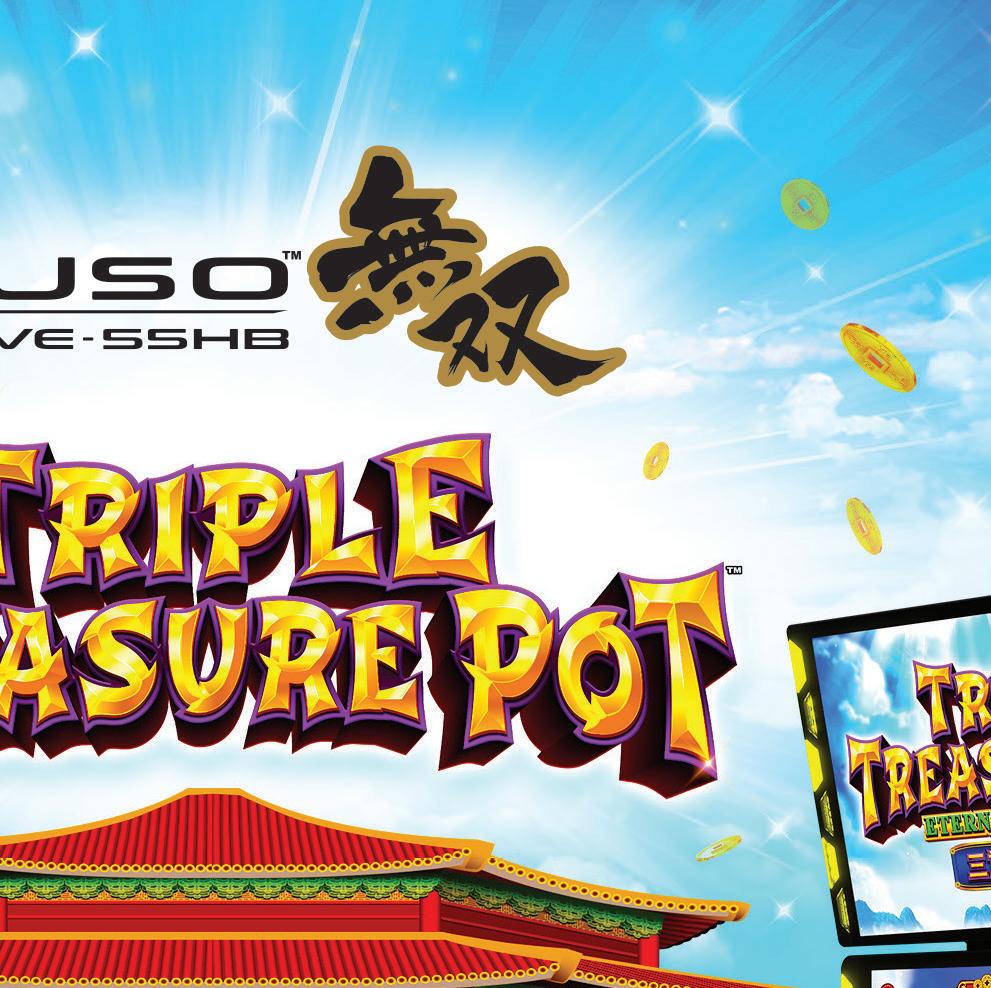










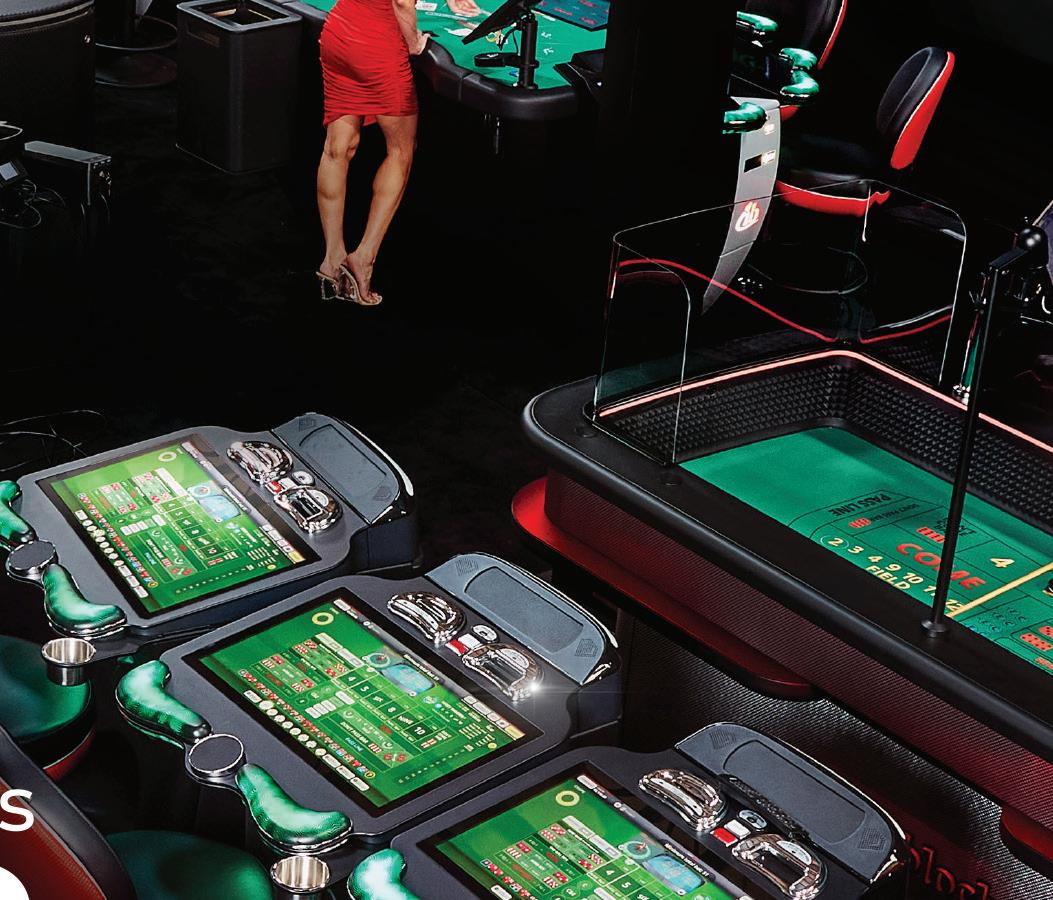

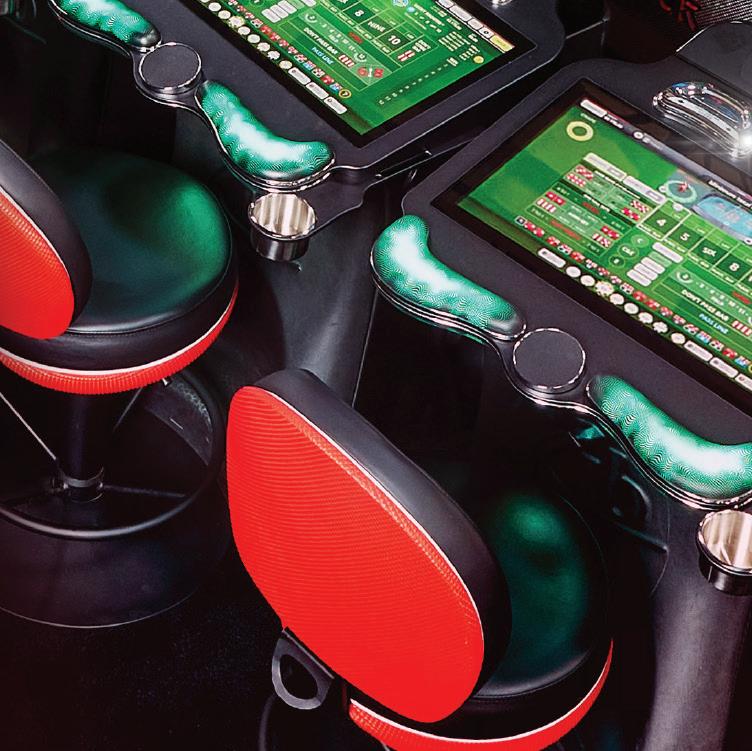


































































































































































































































































































































































 OLIVER LOVAT Denstone Group CEO
OLIVER LOVAT Denstone Group CEO









































































































































































































































































































































































































































































































































































































































































